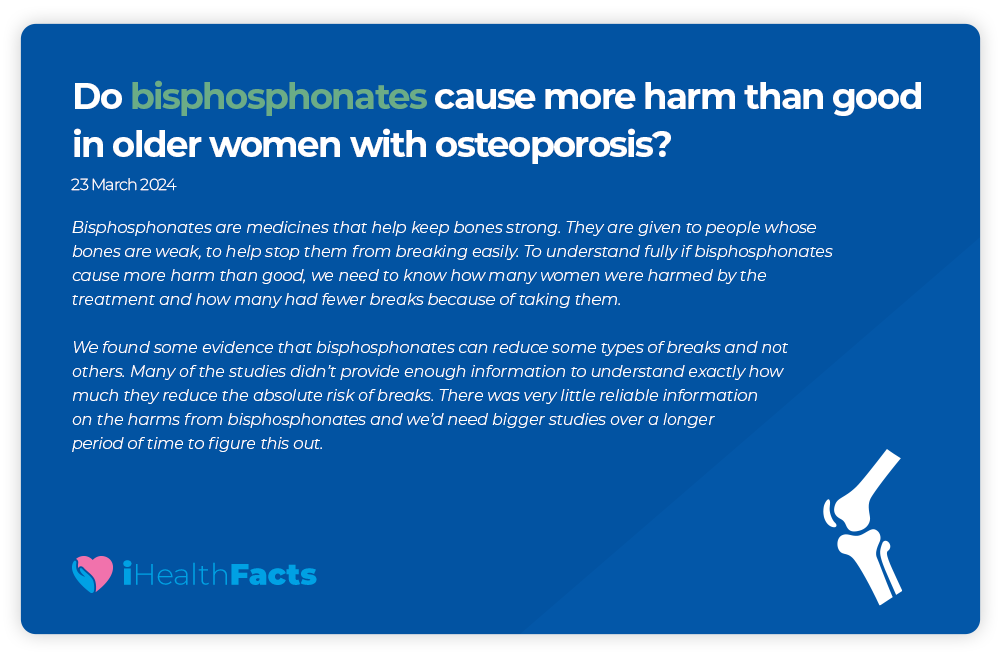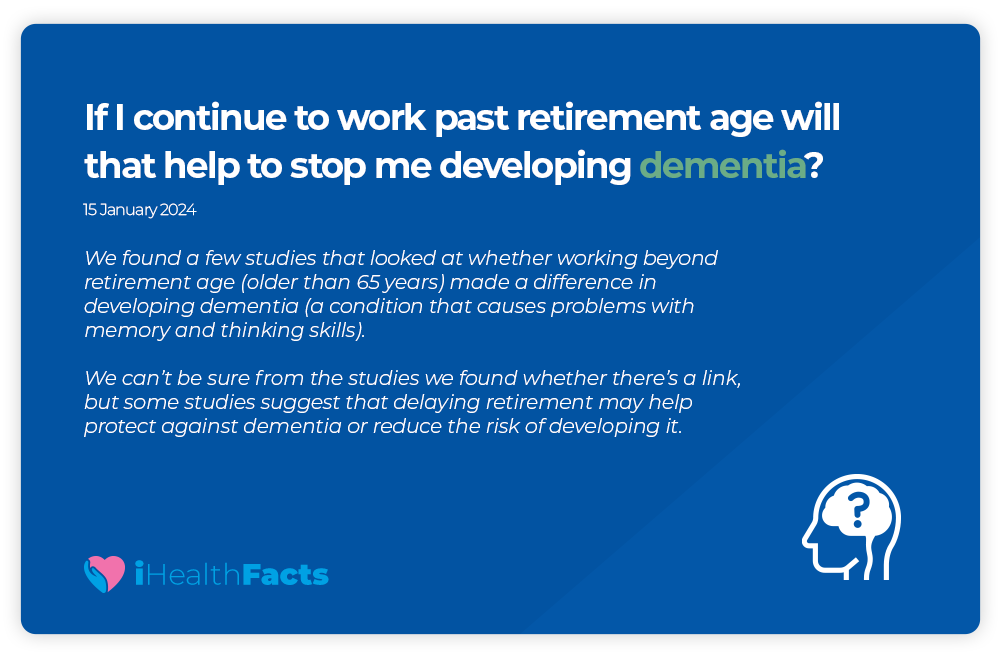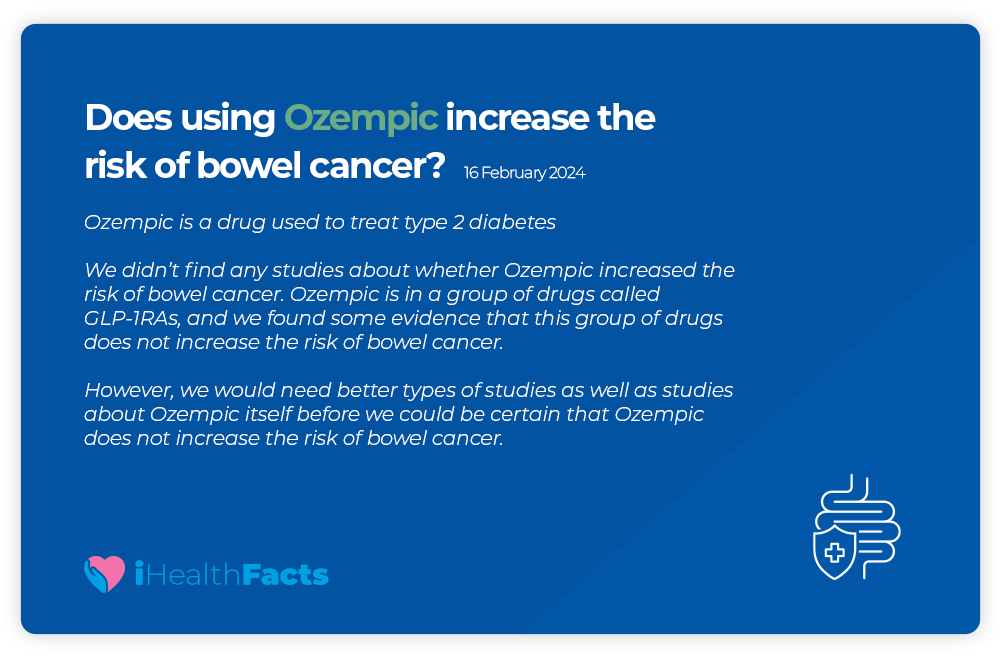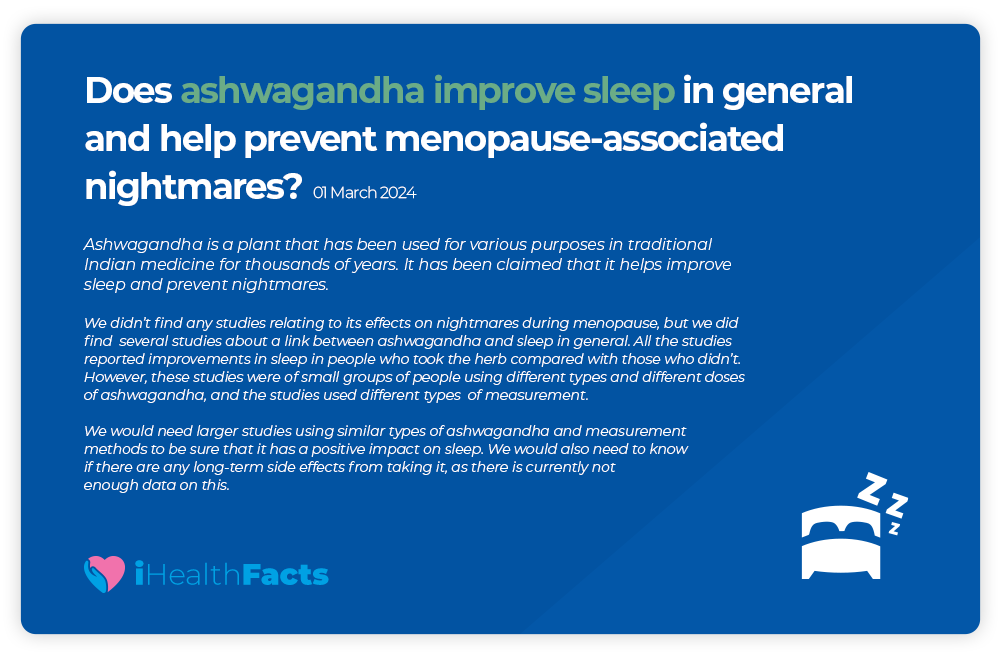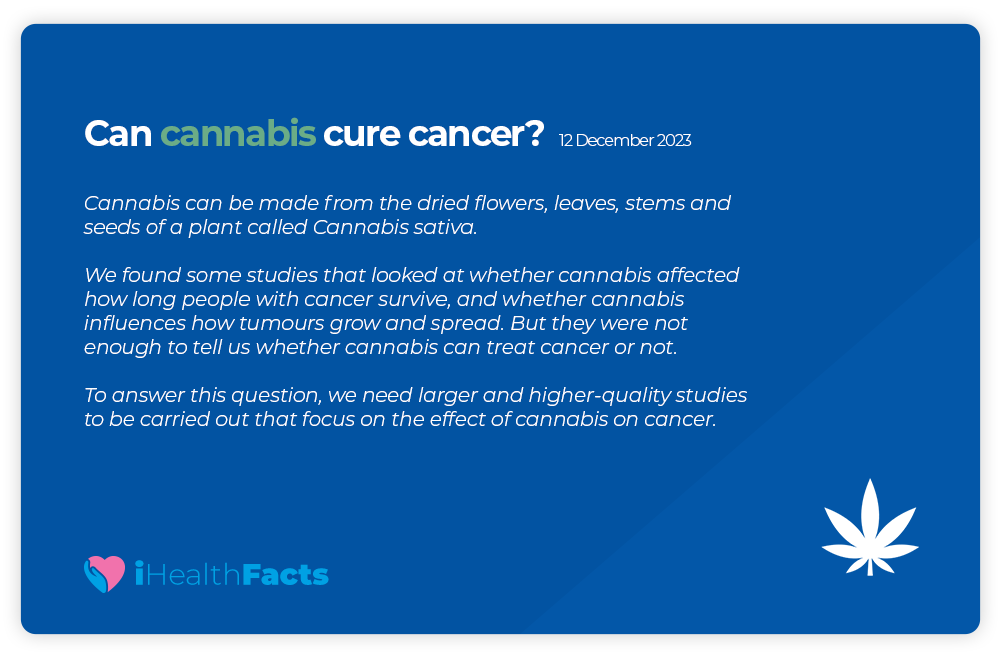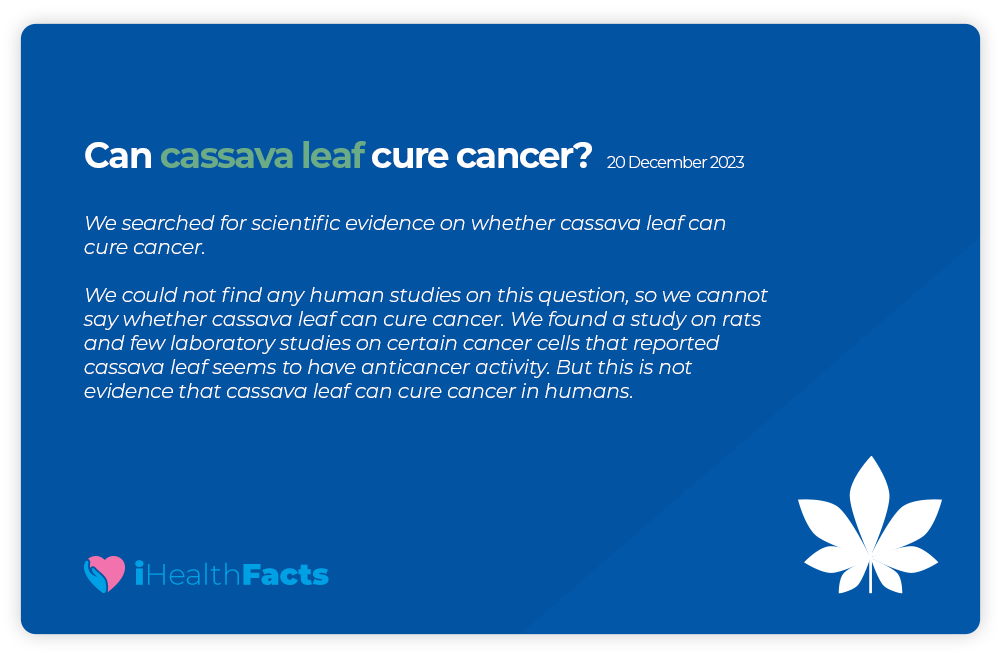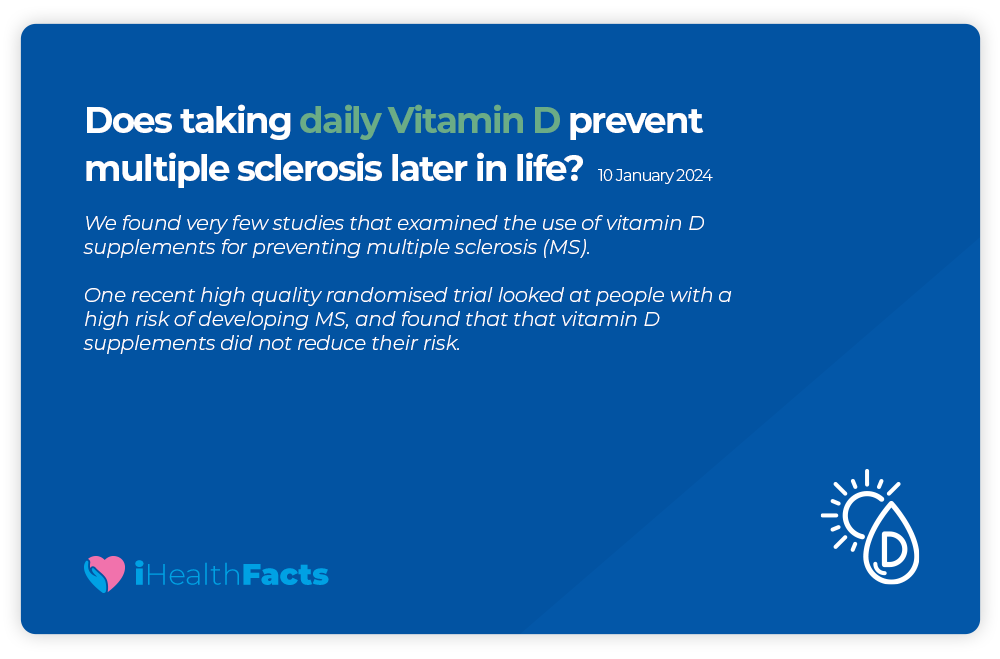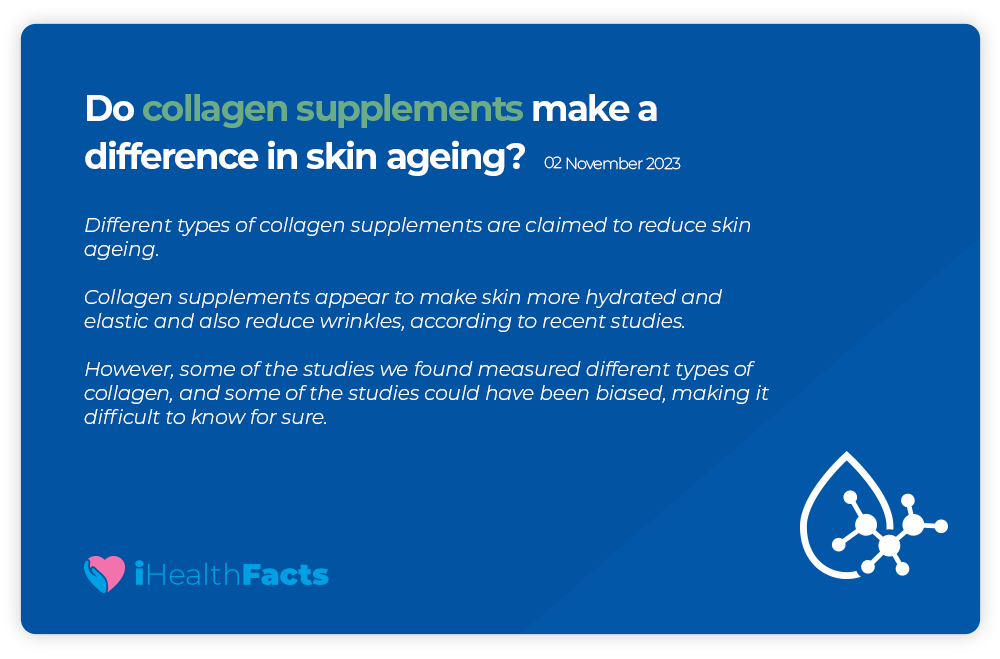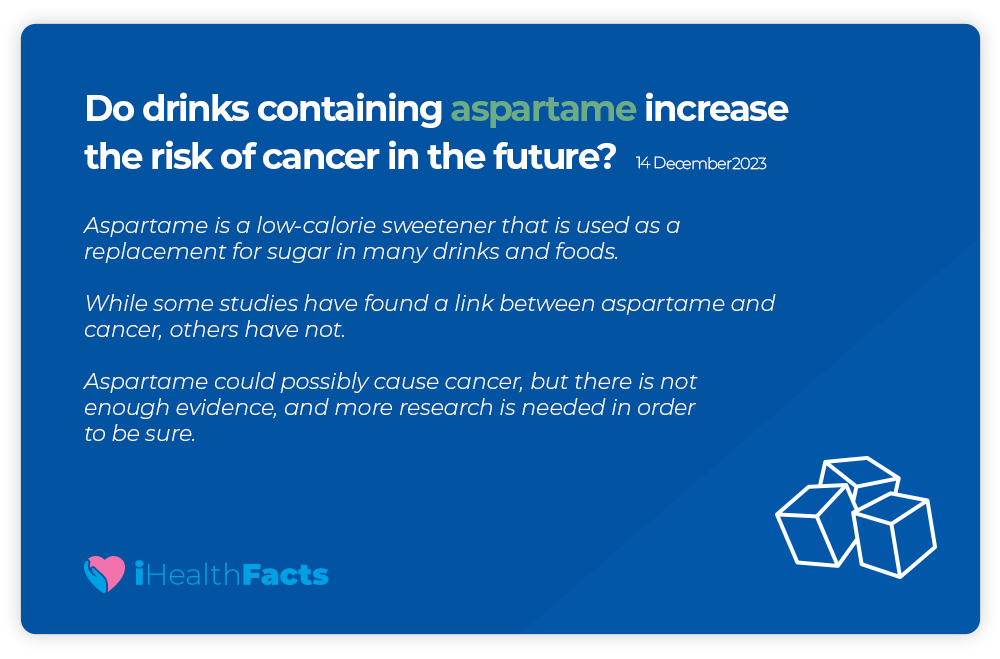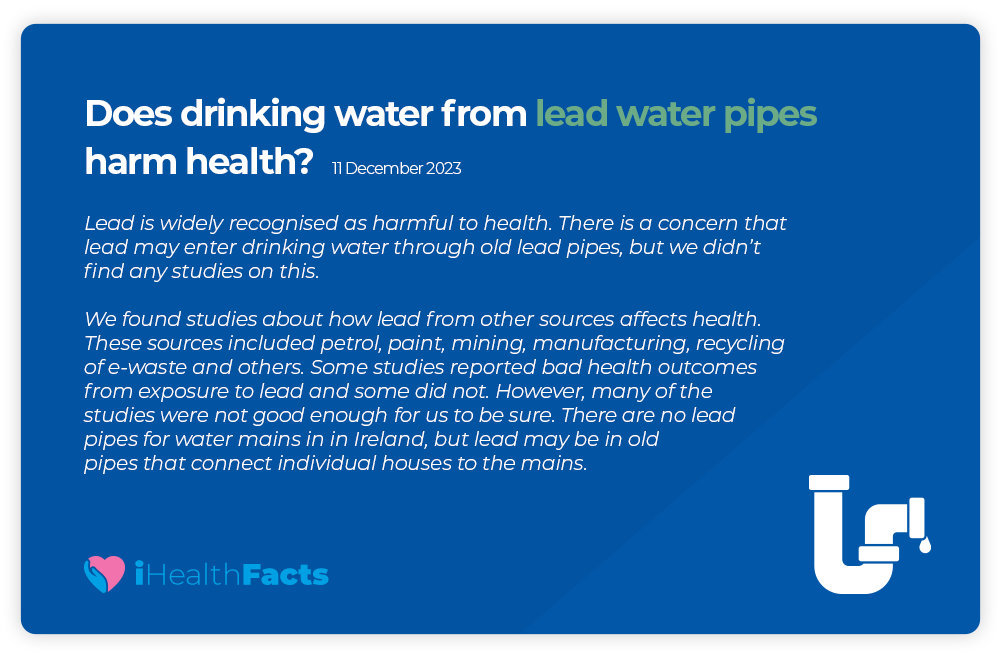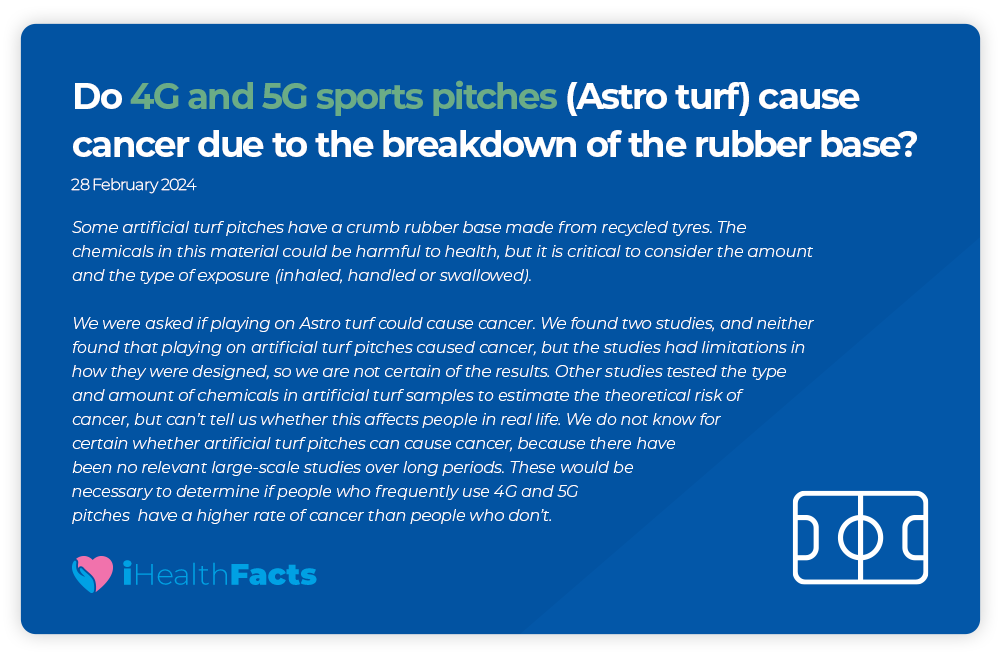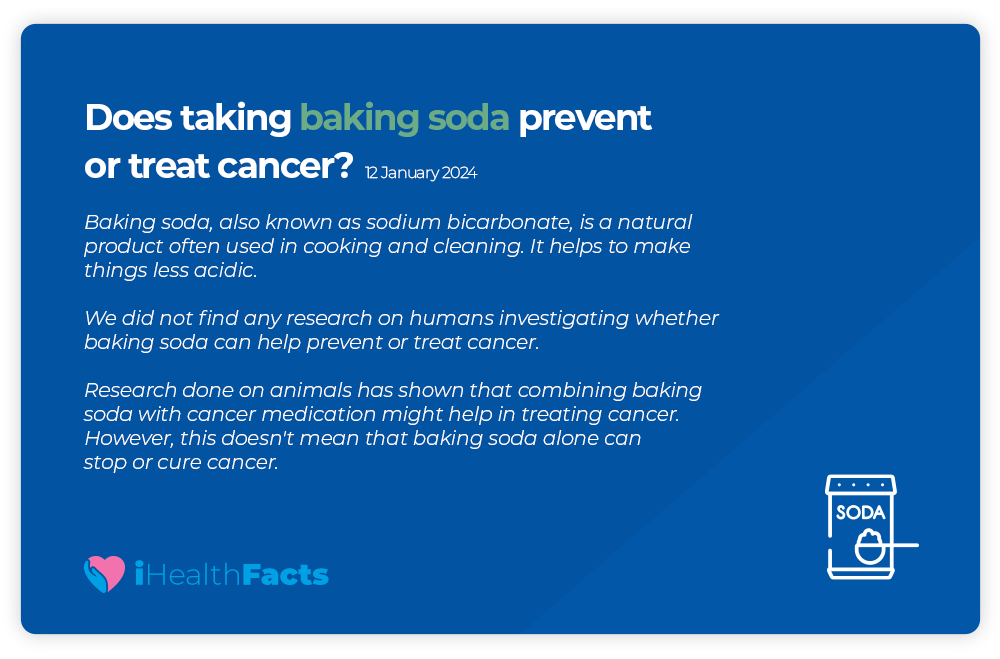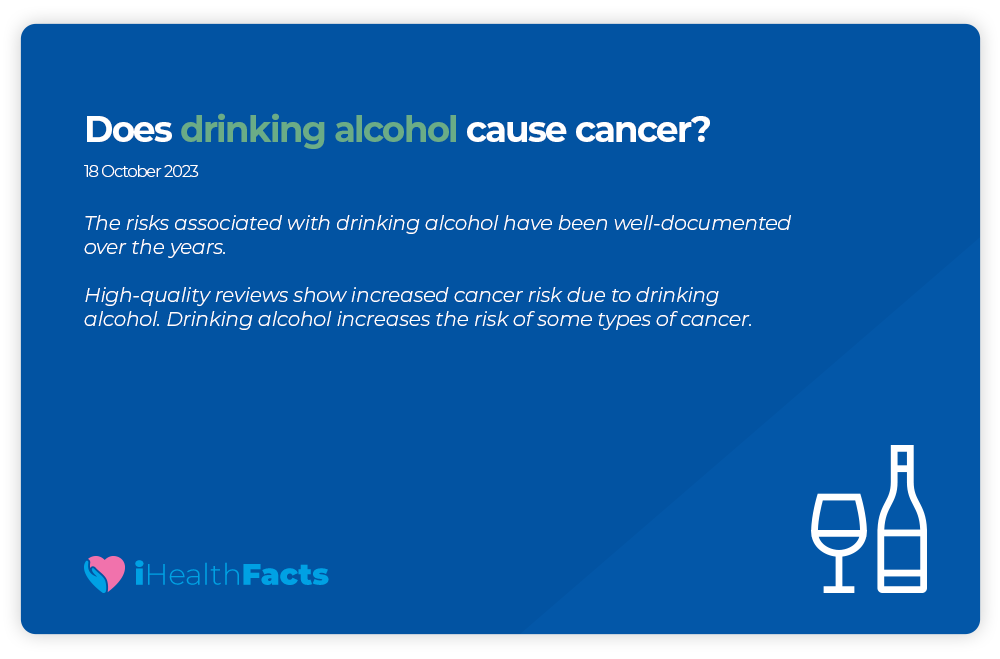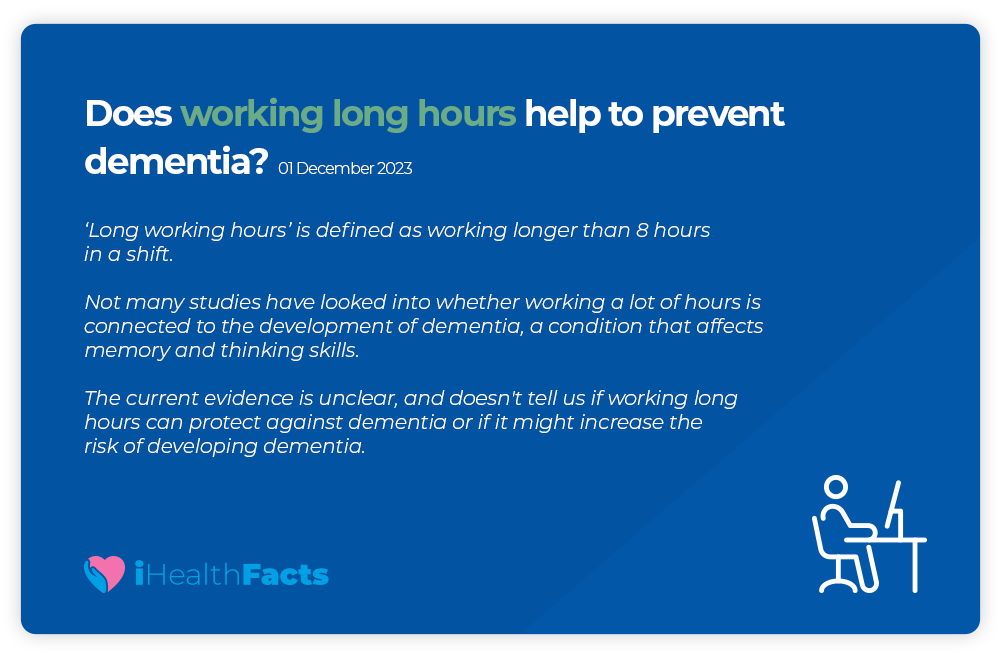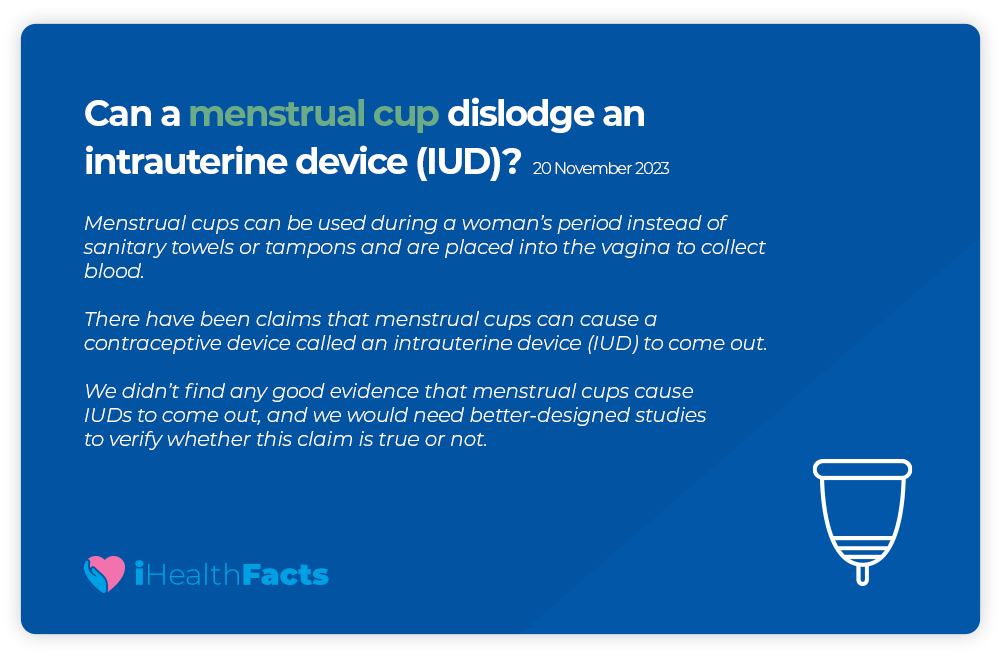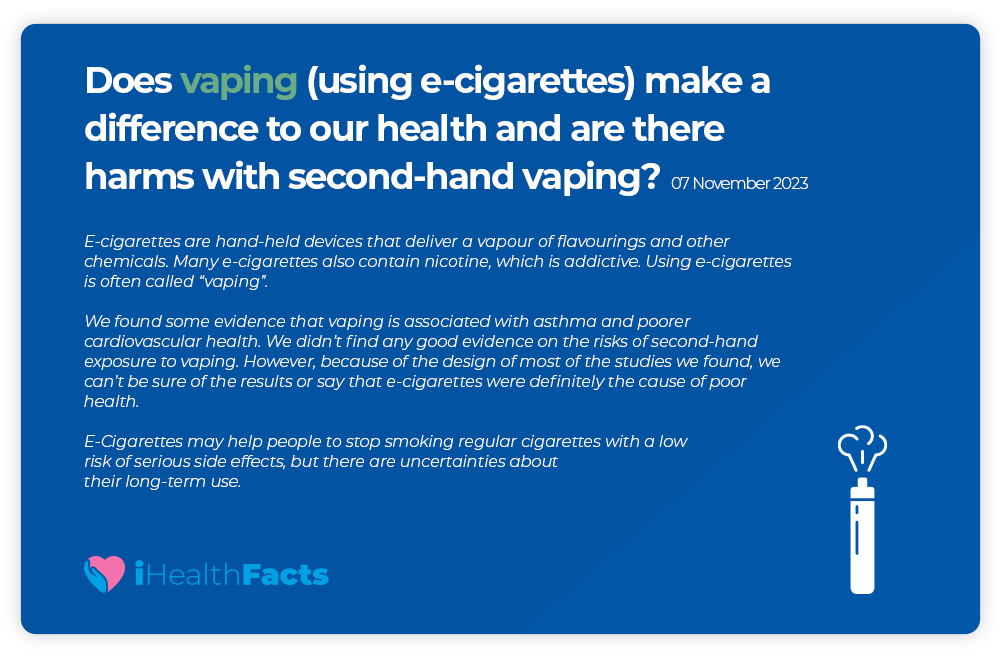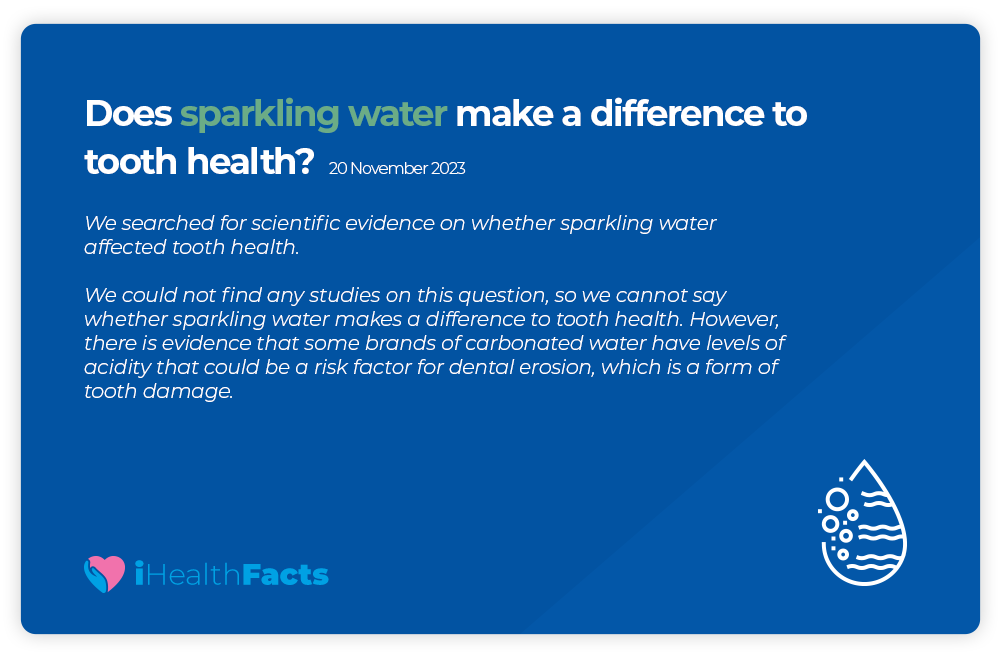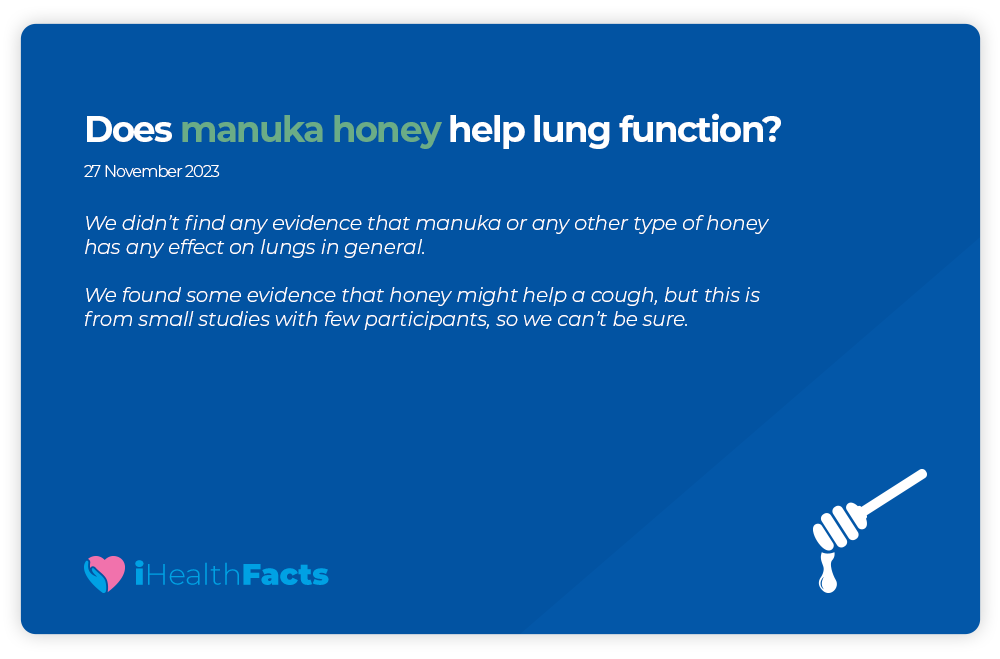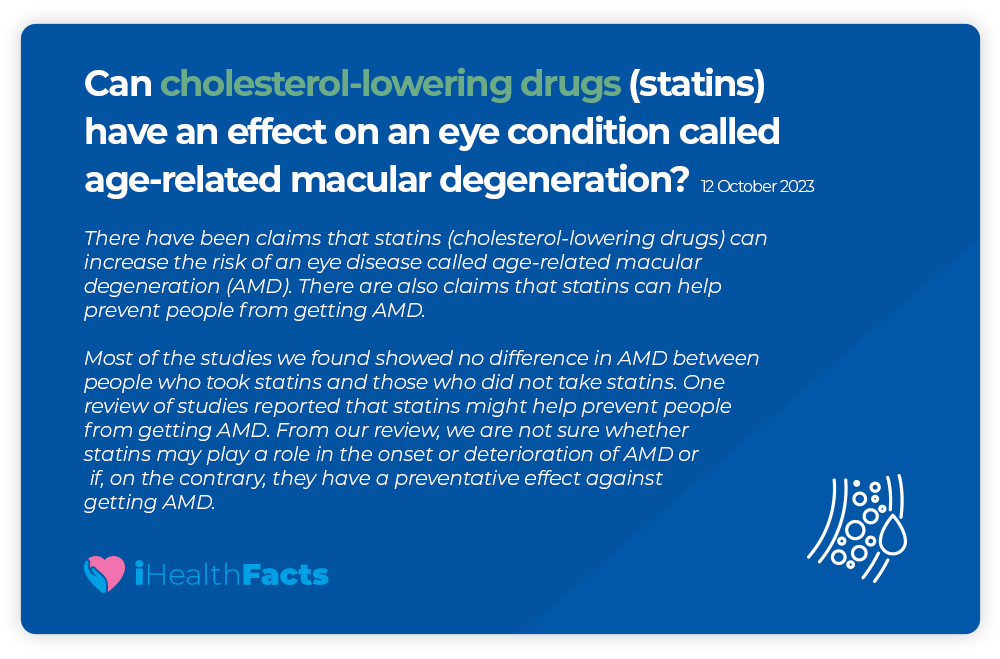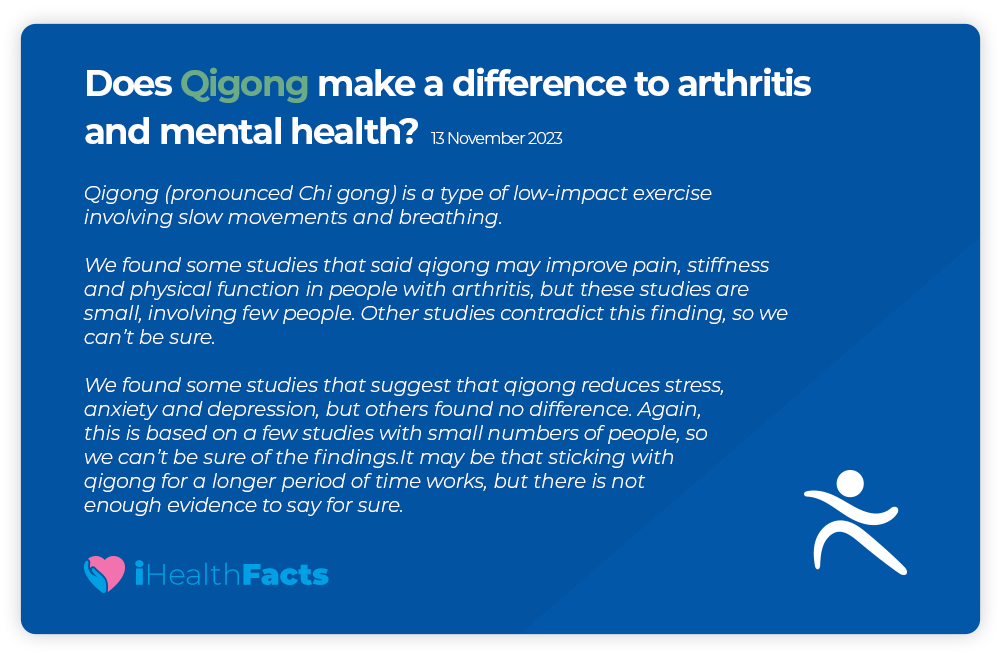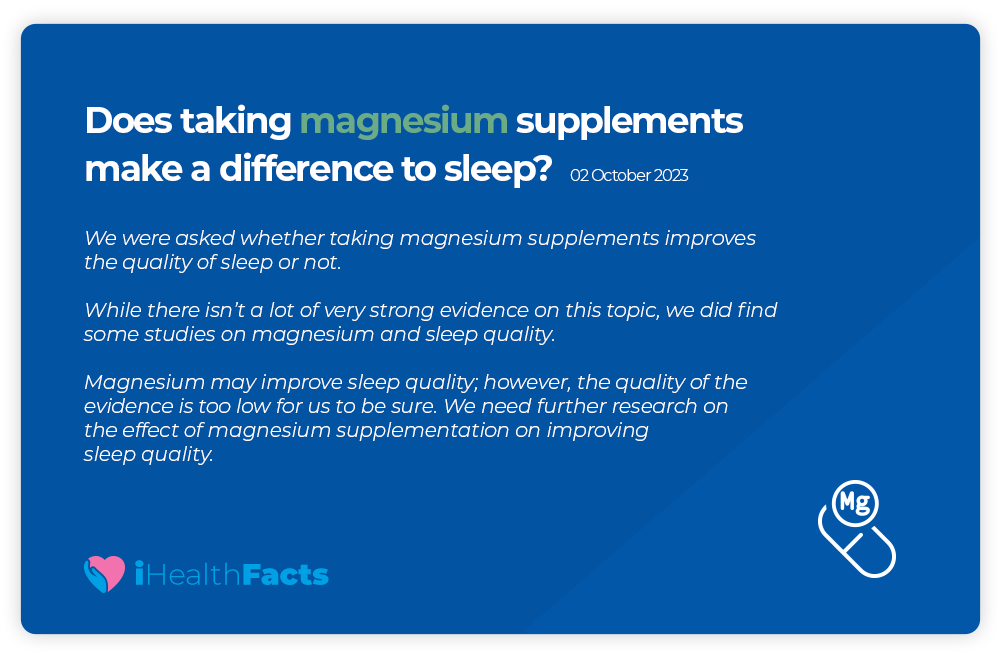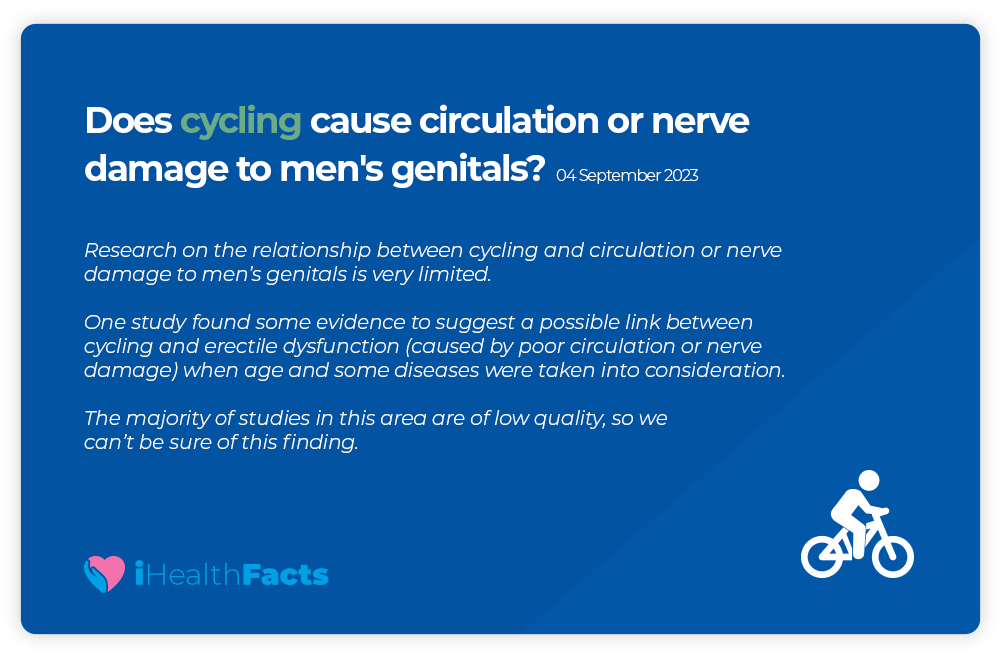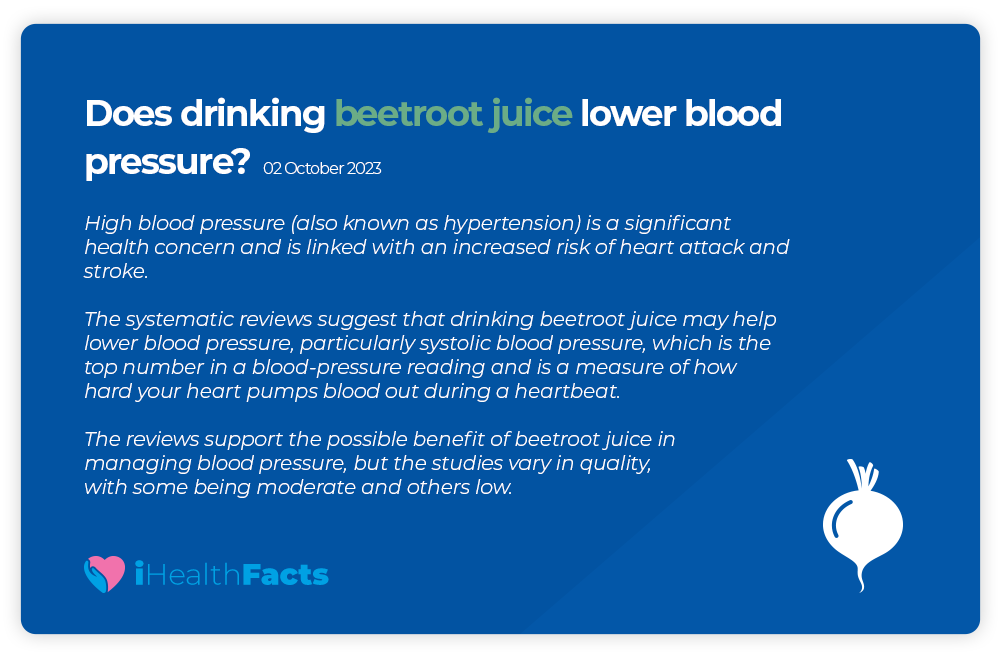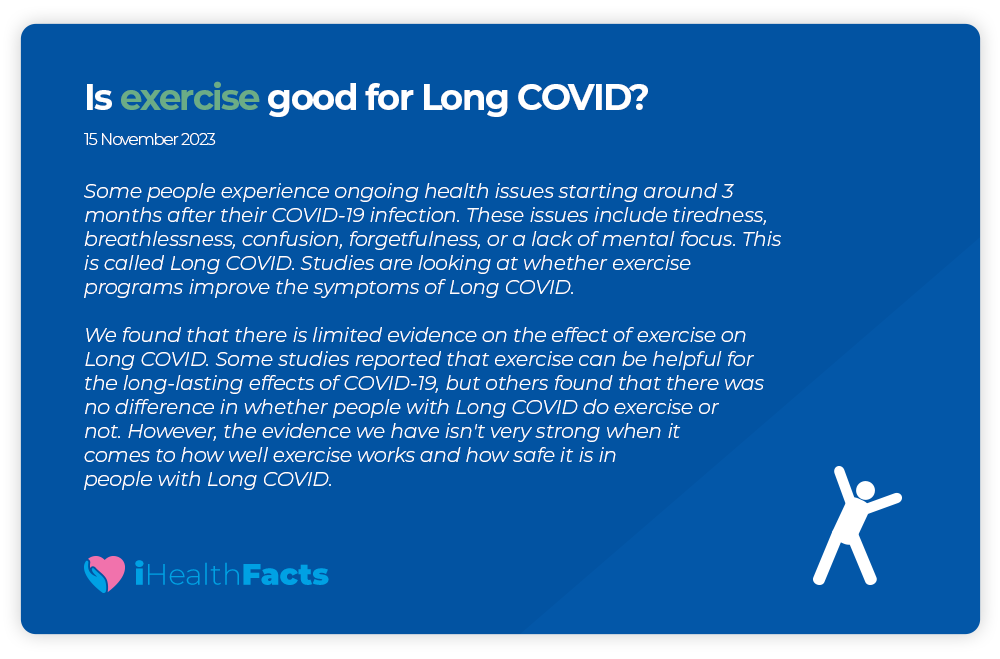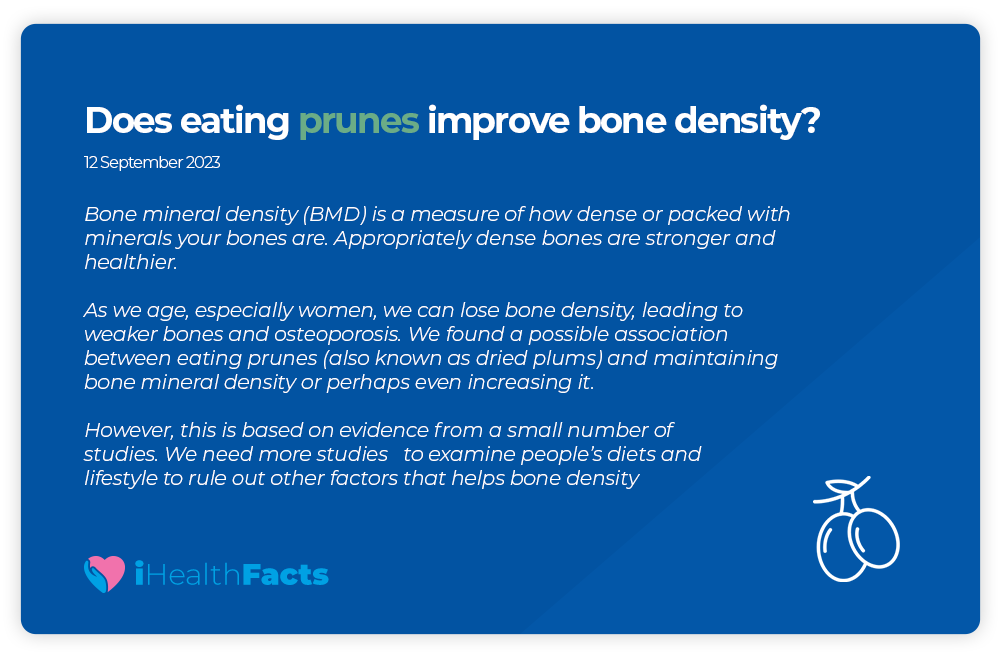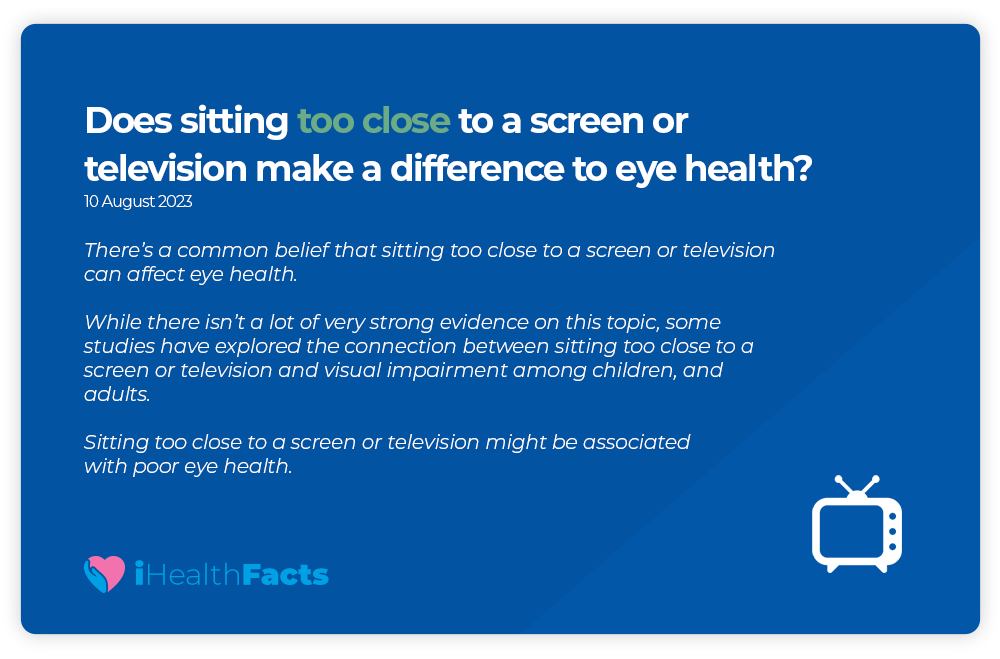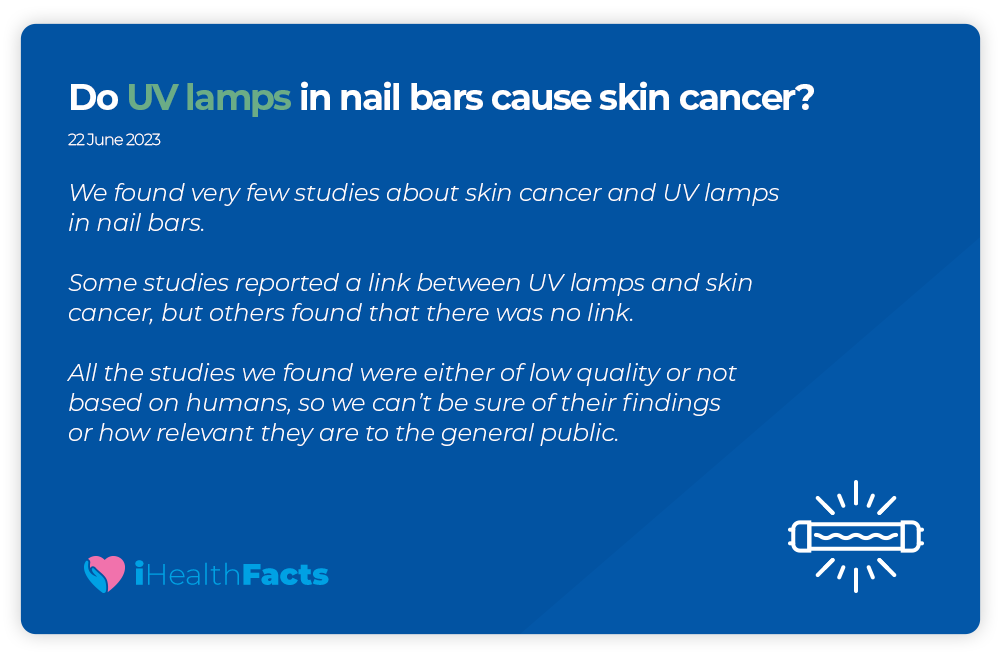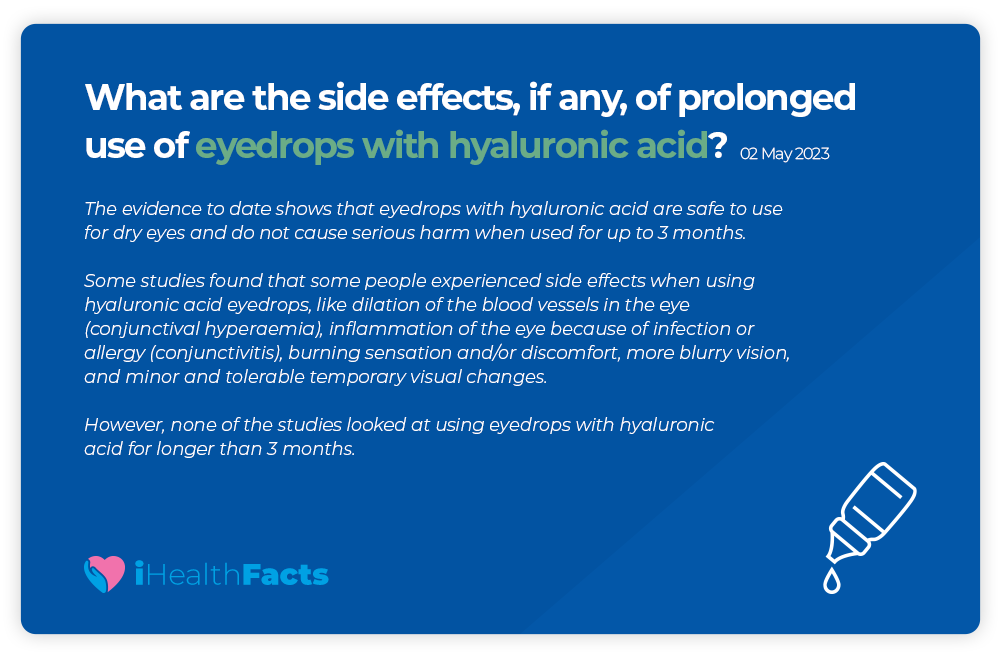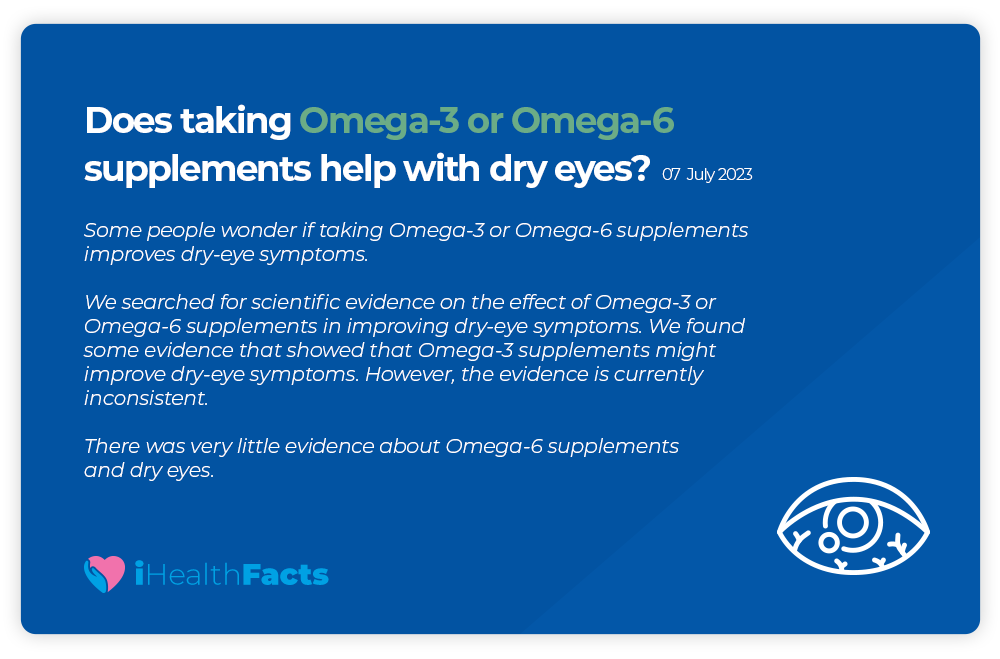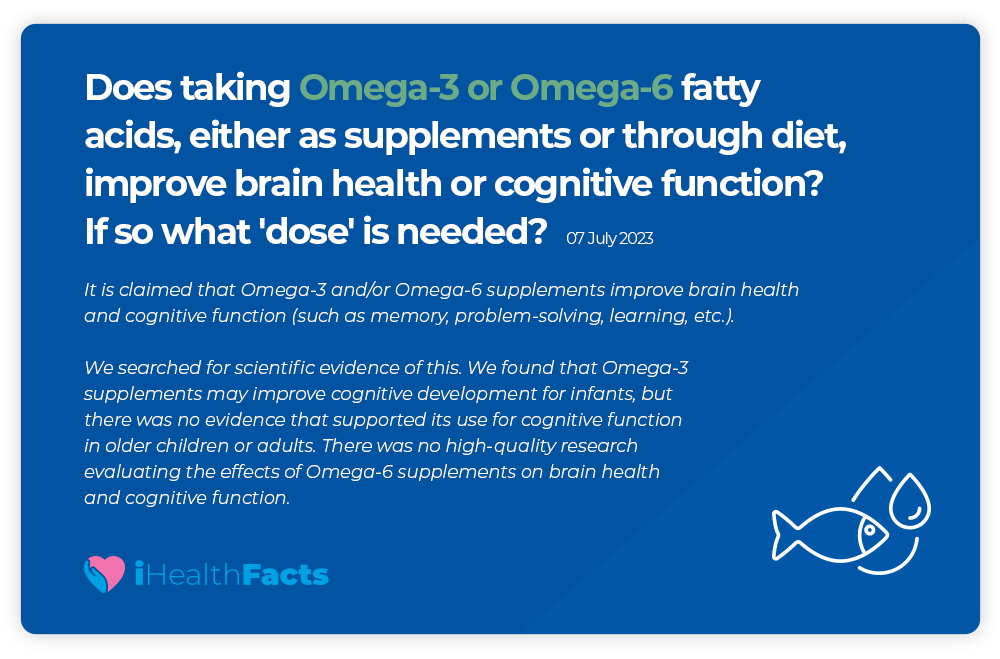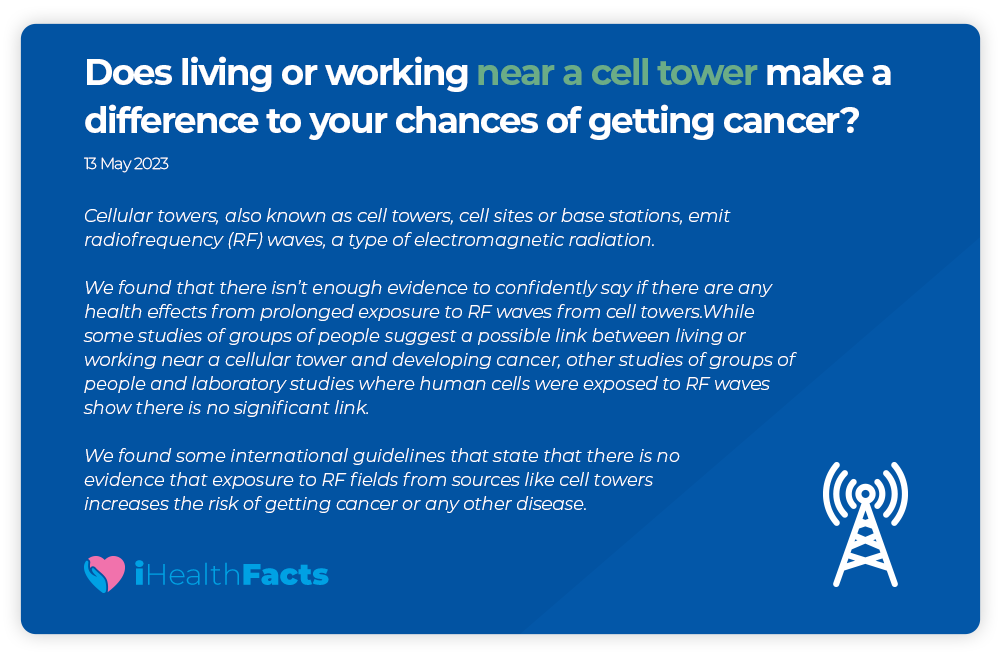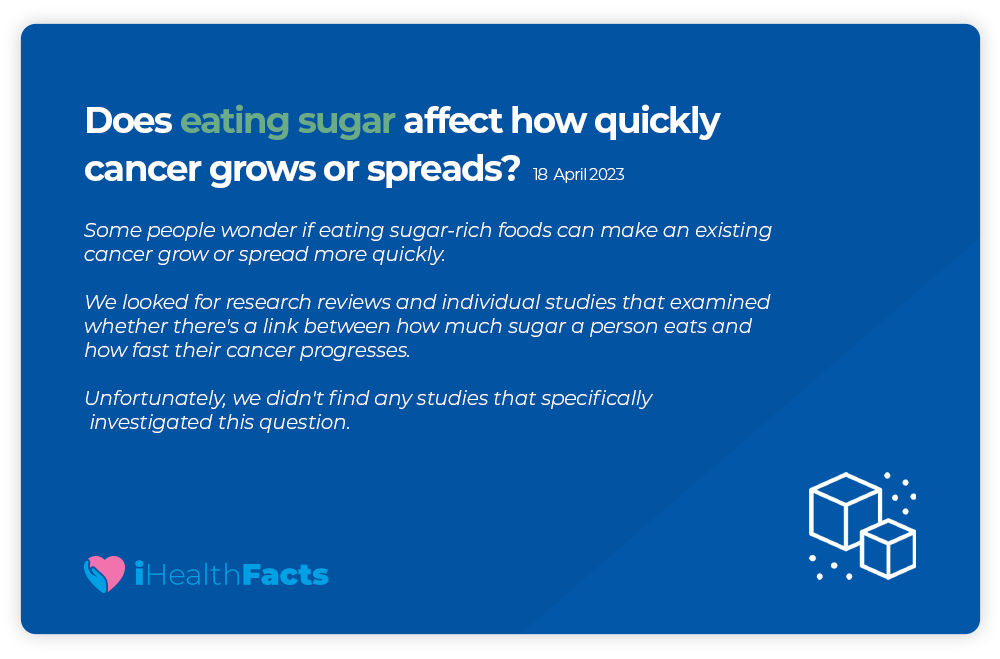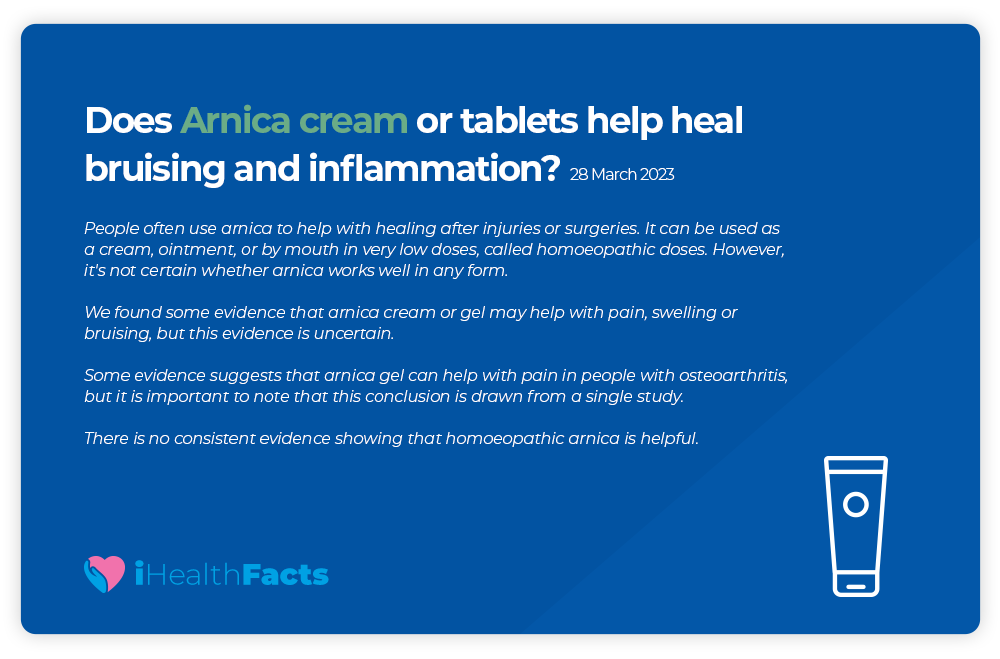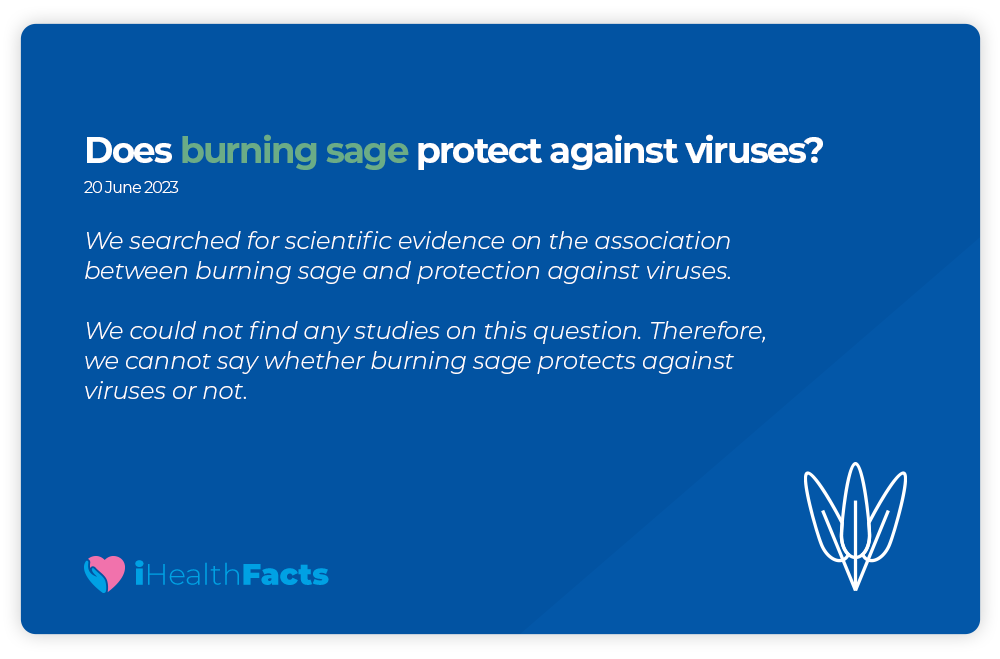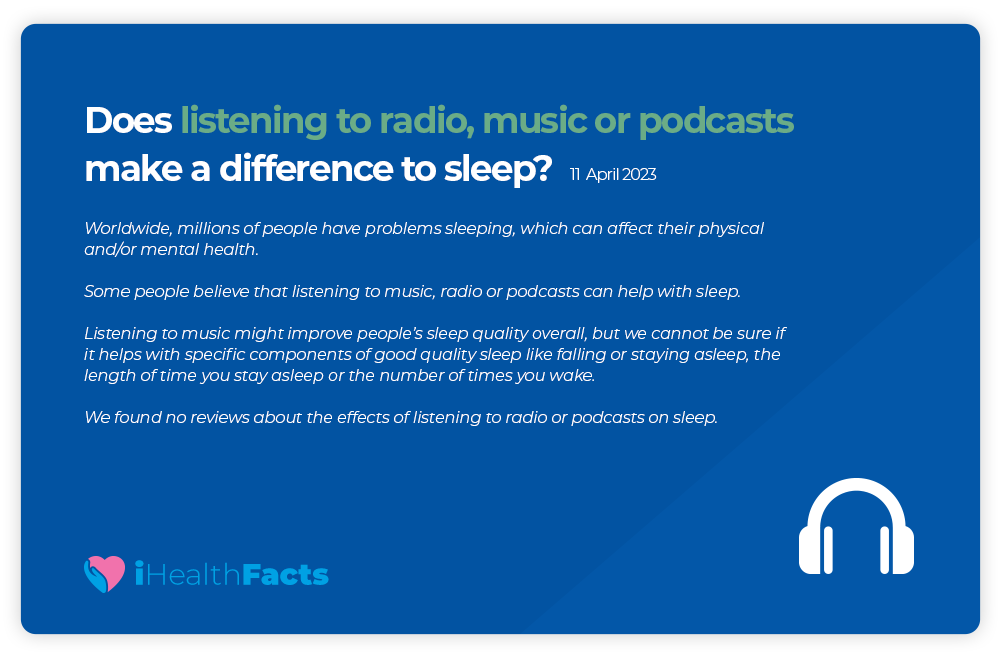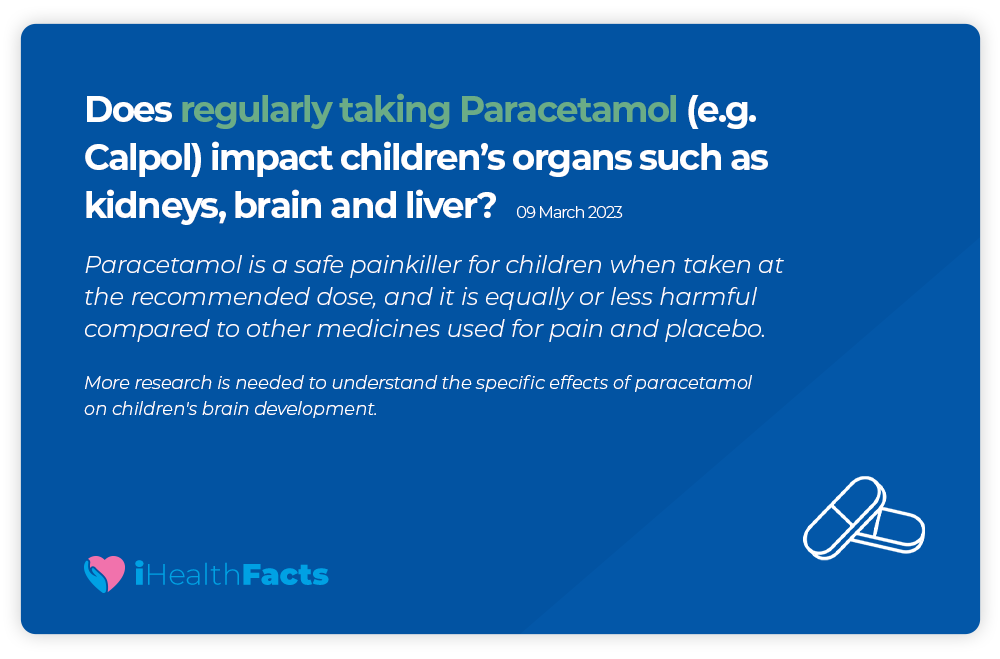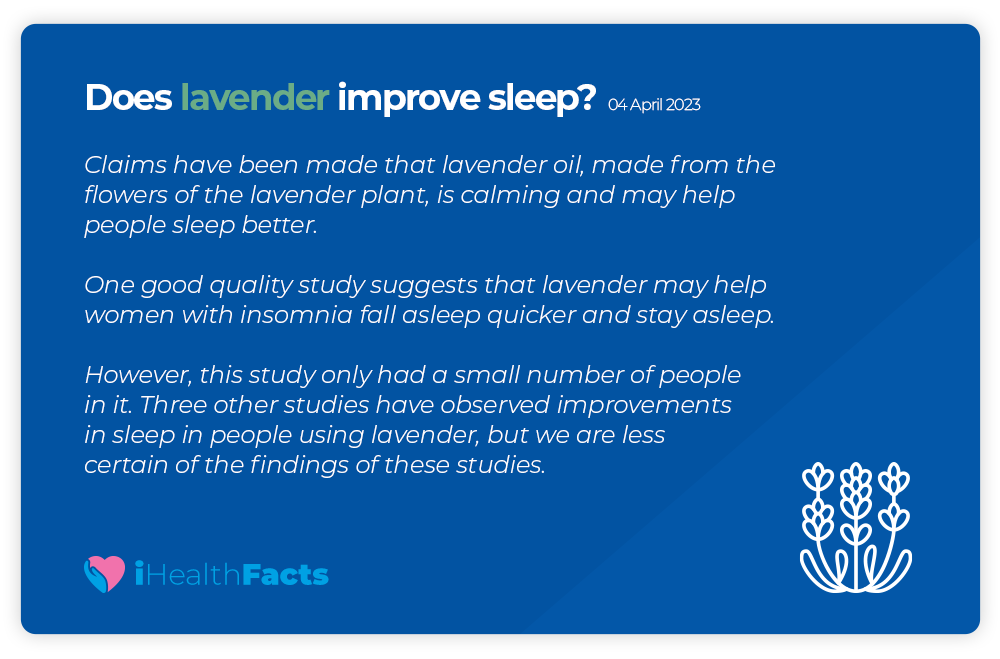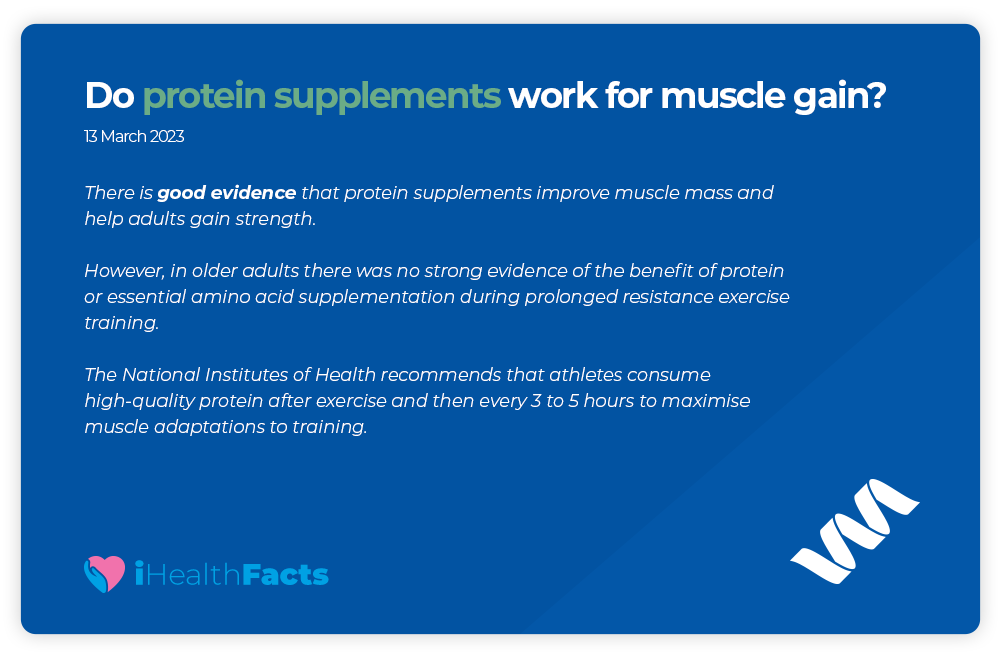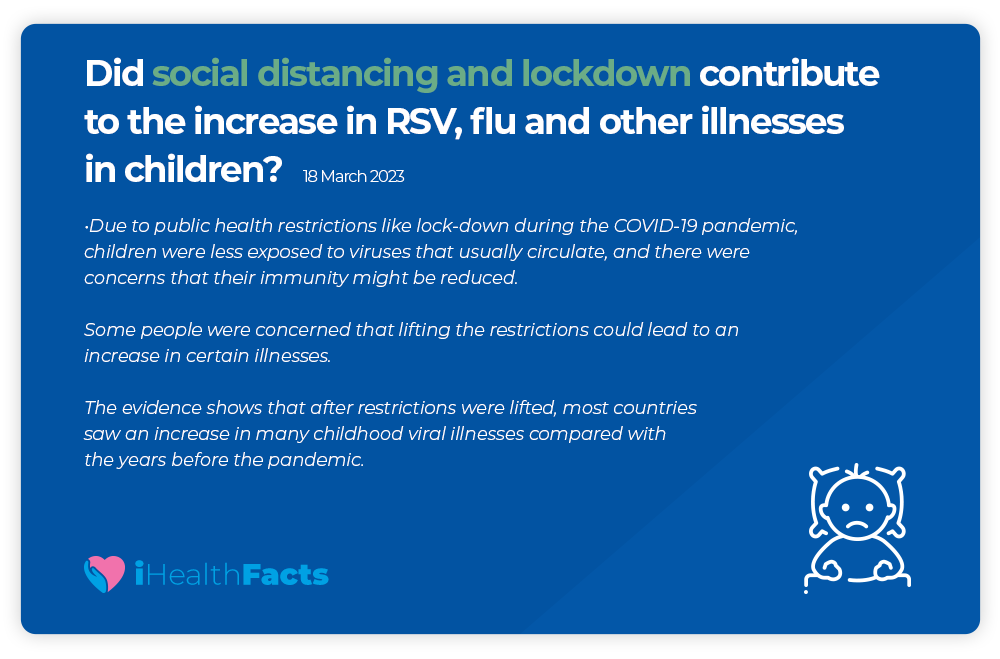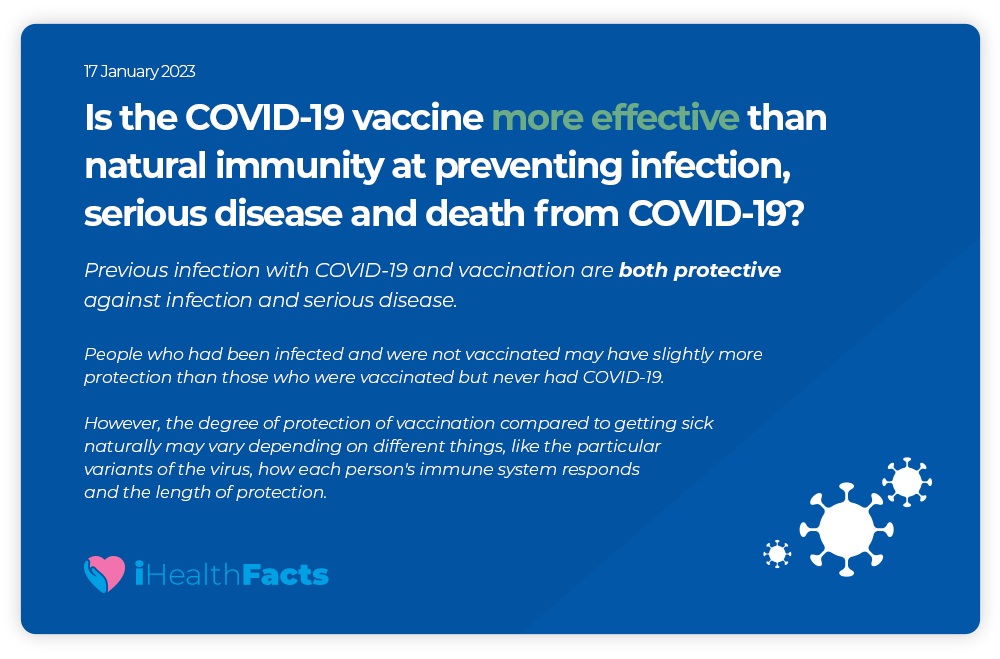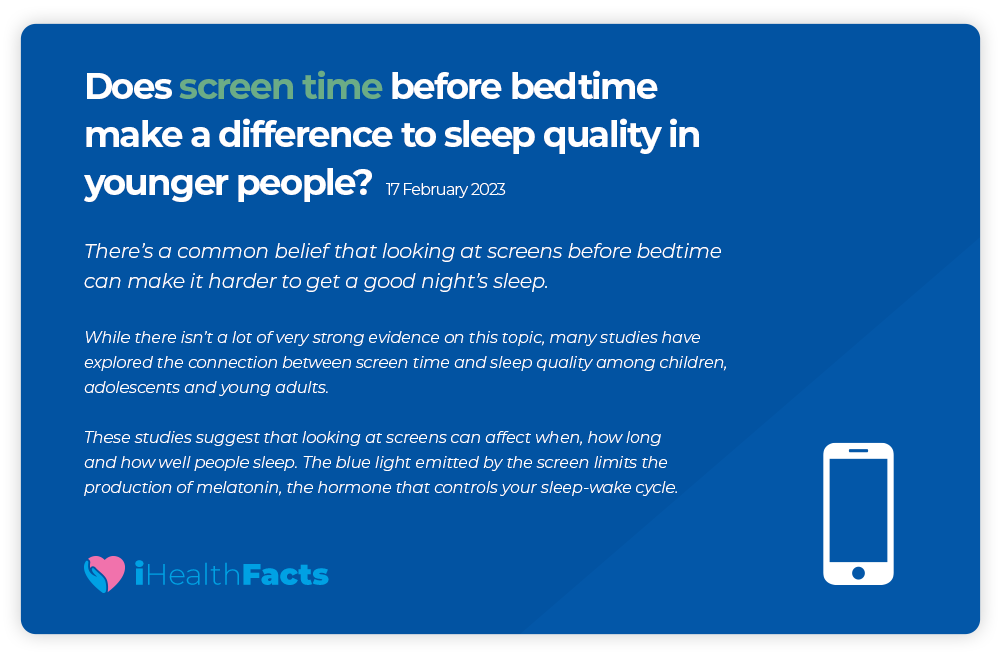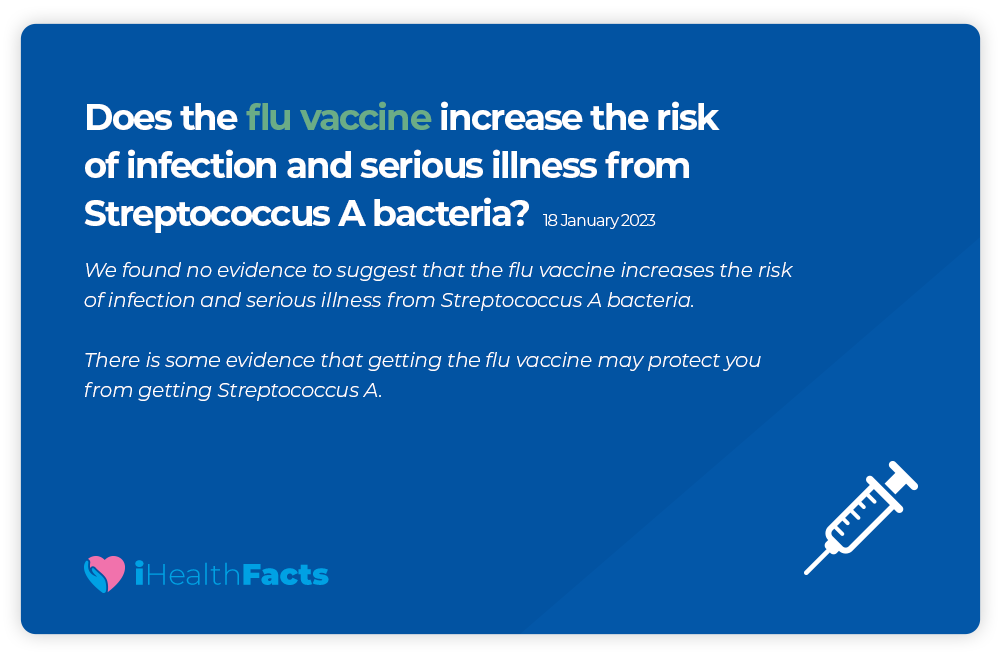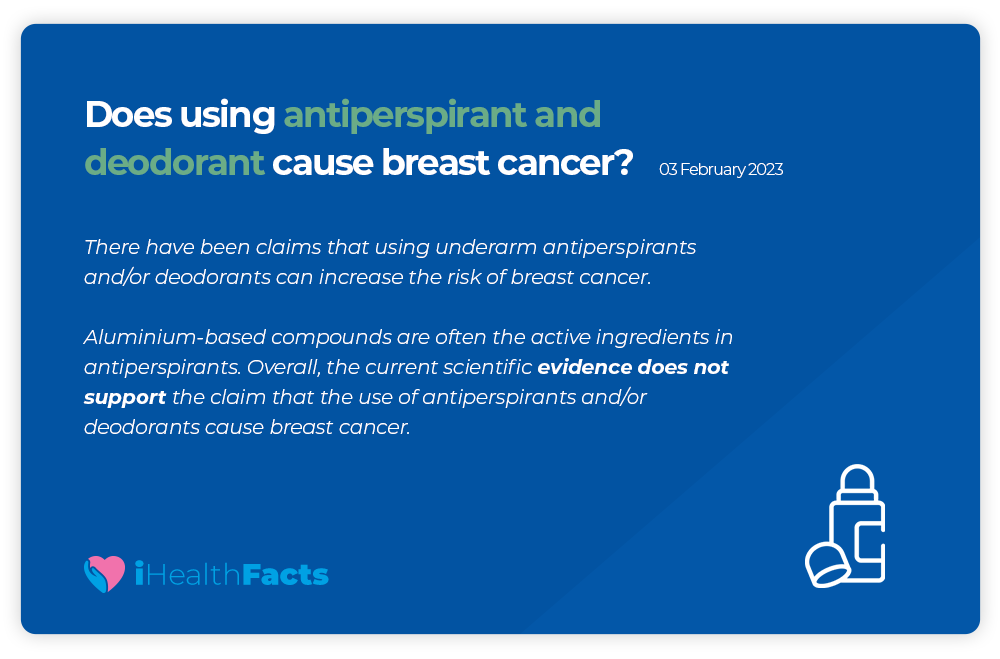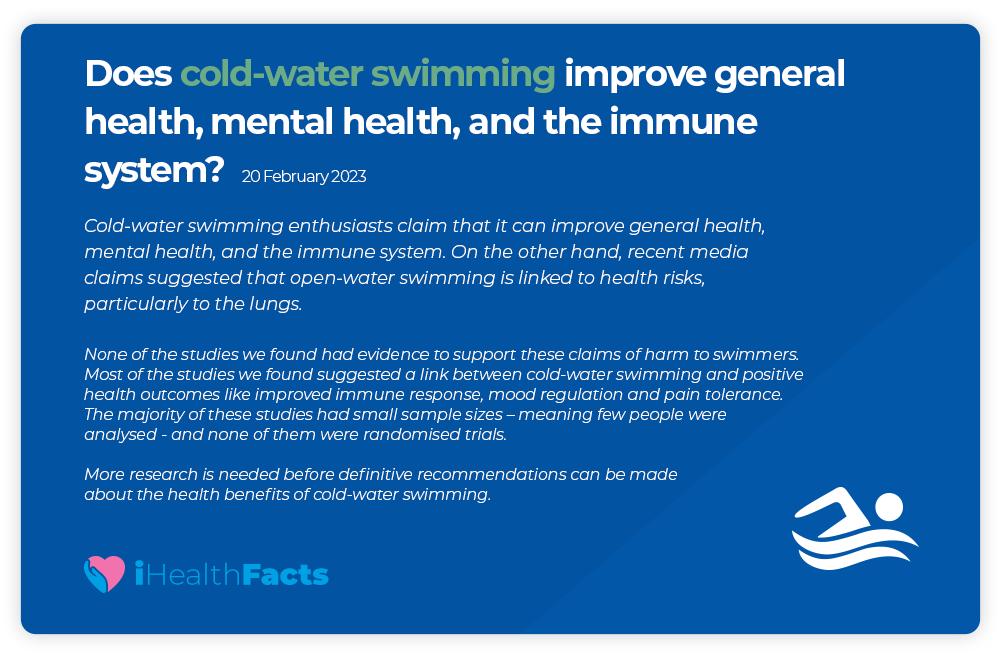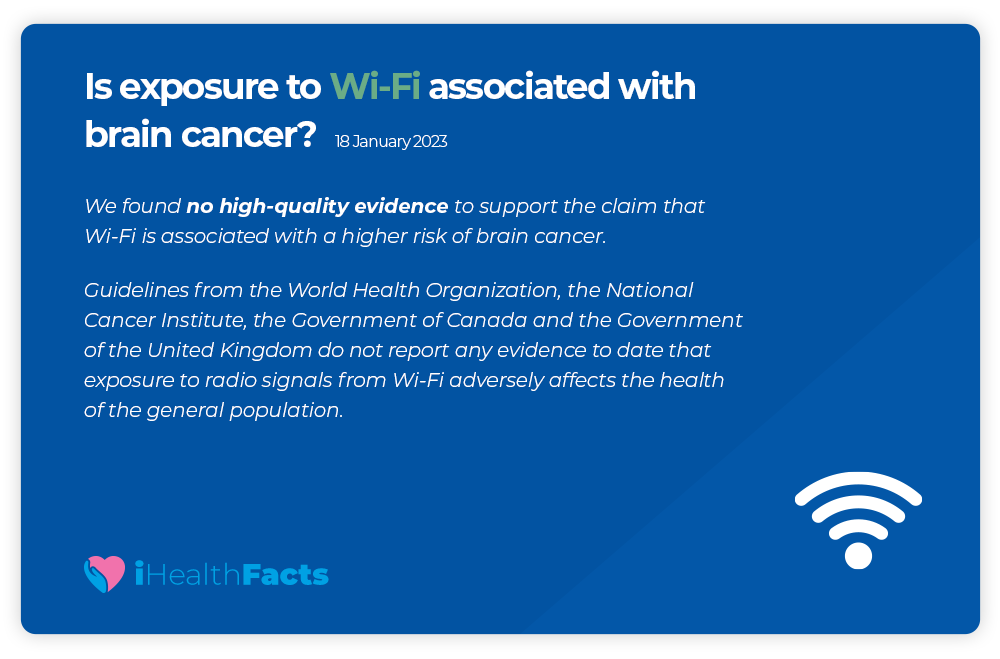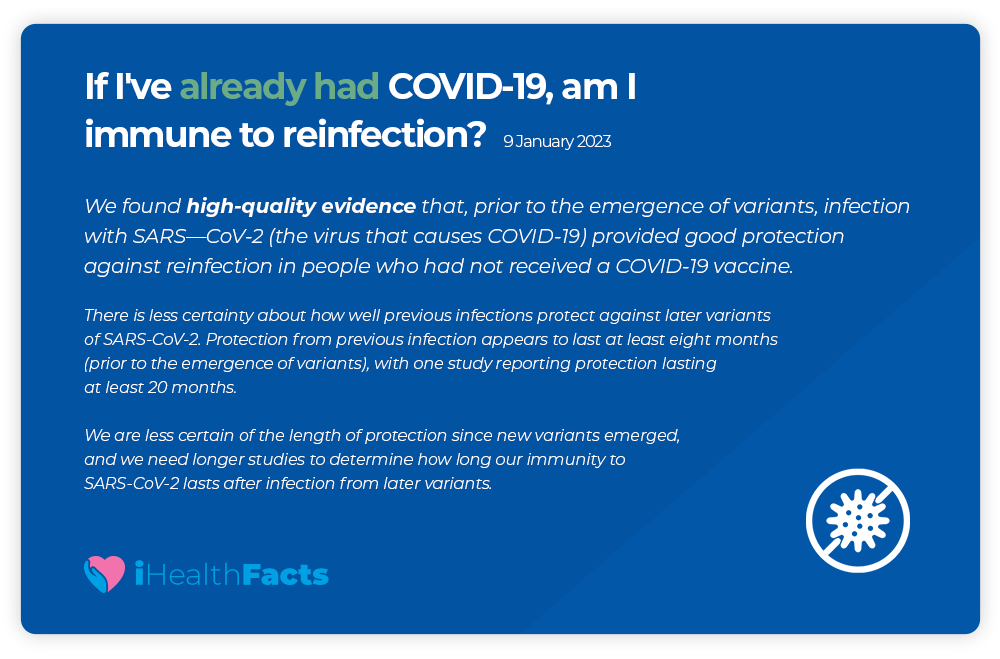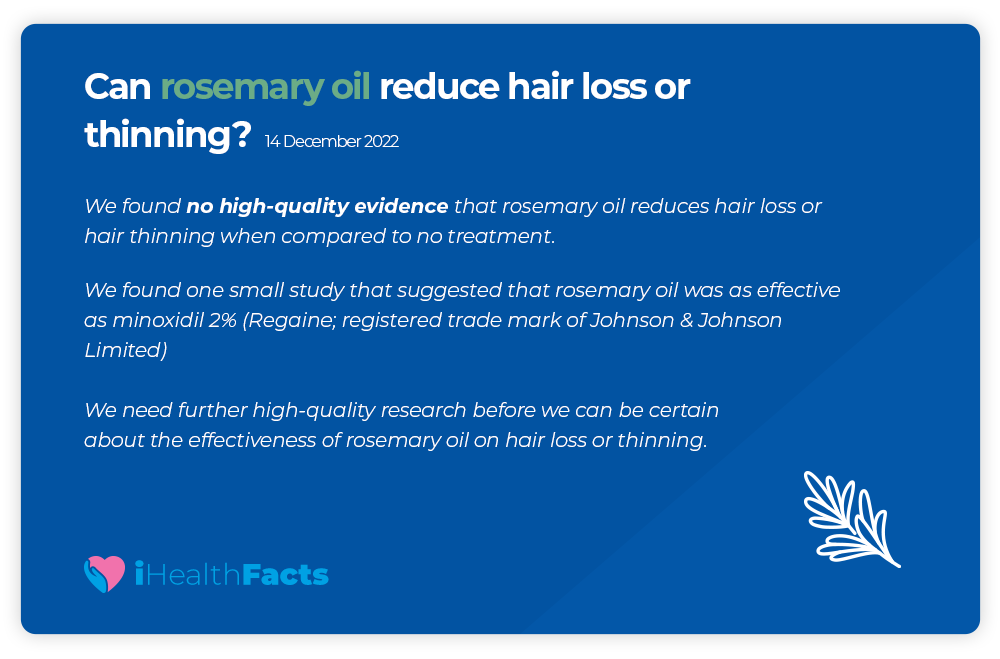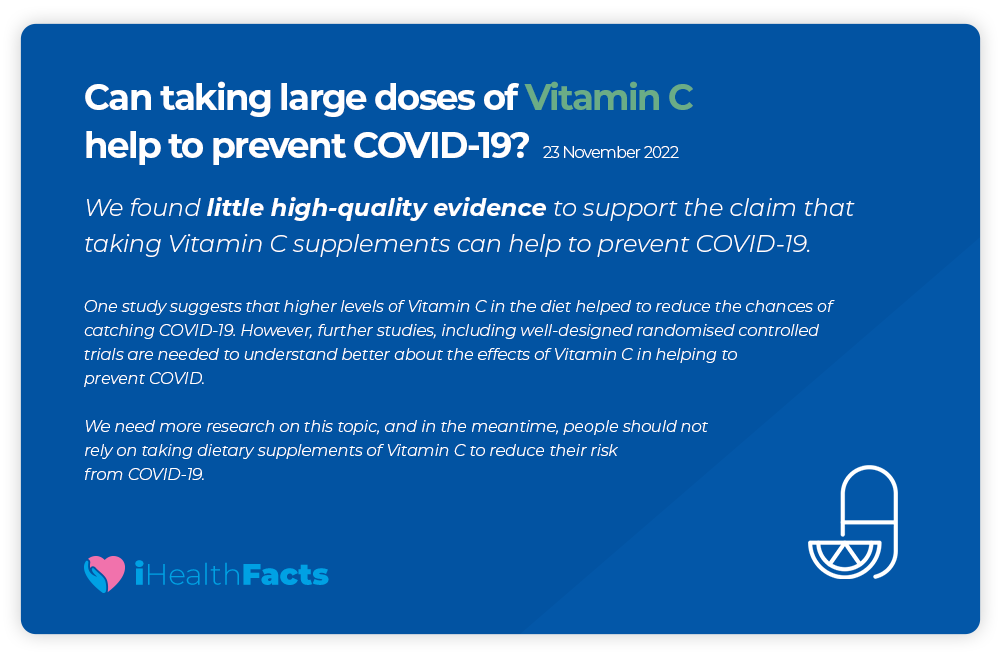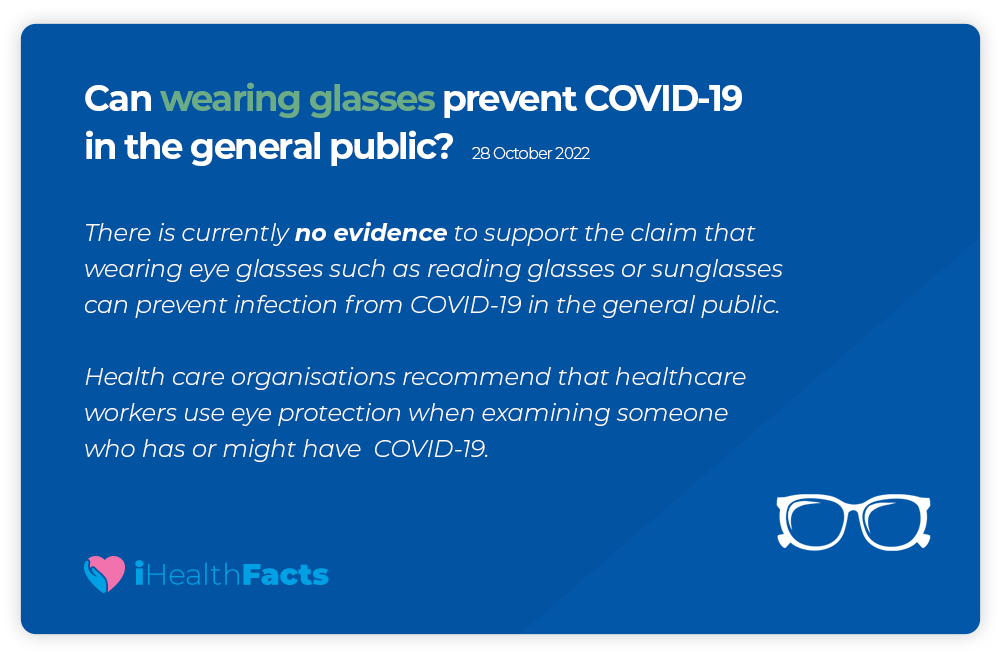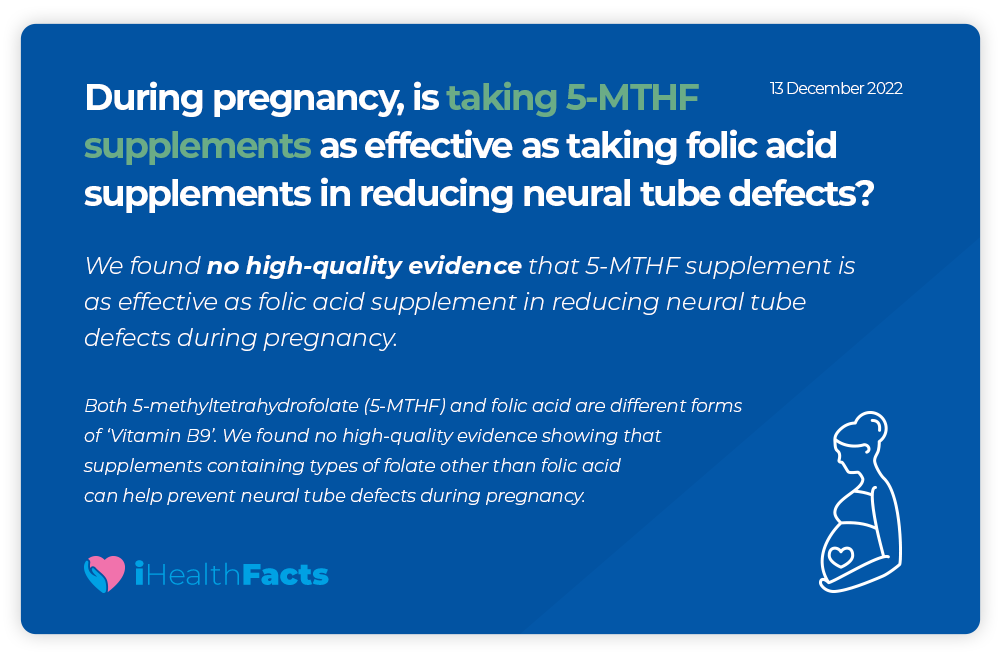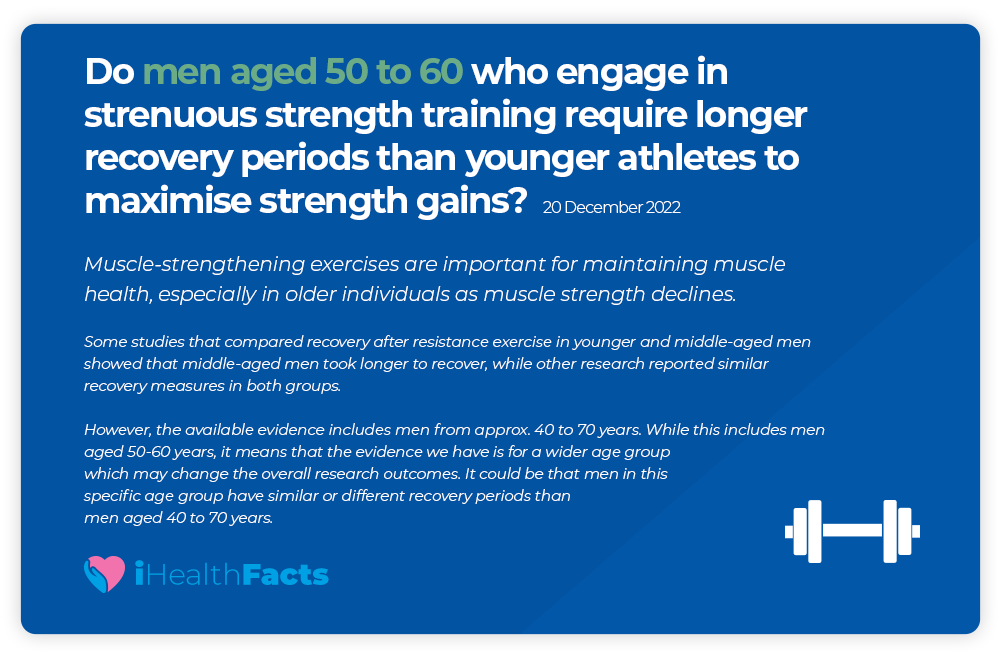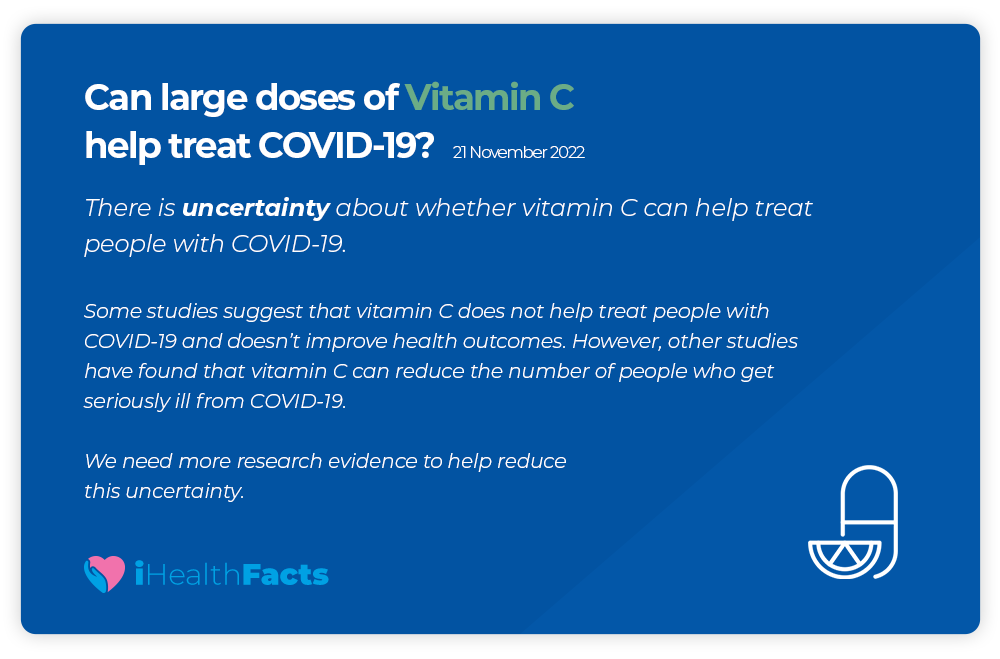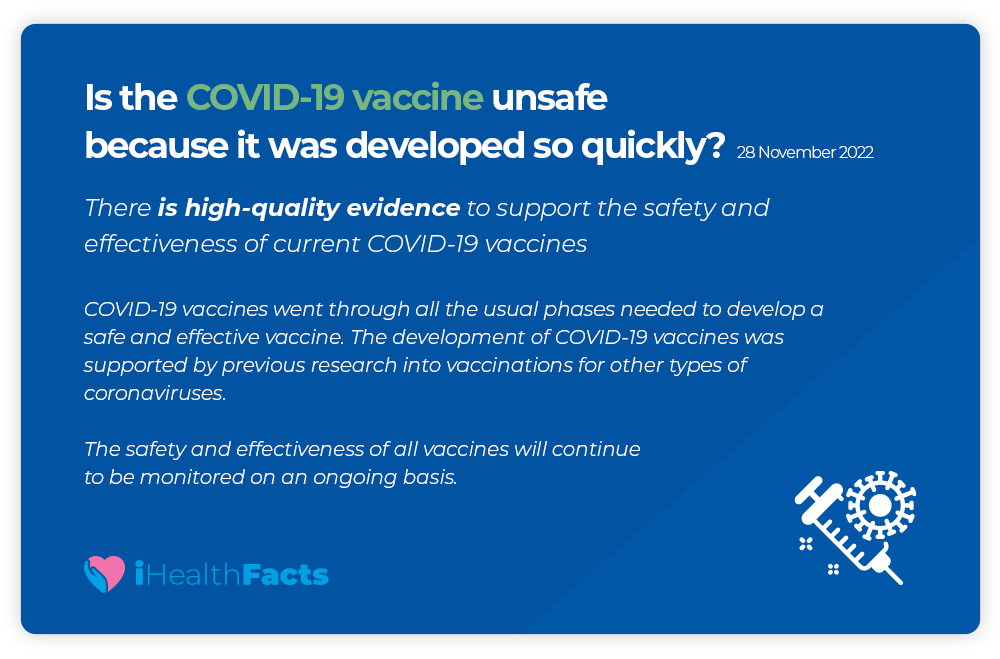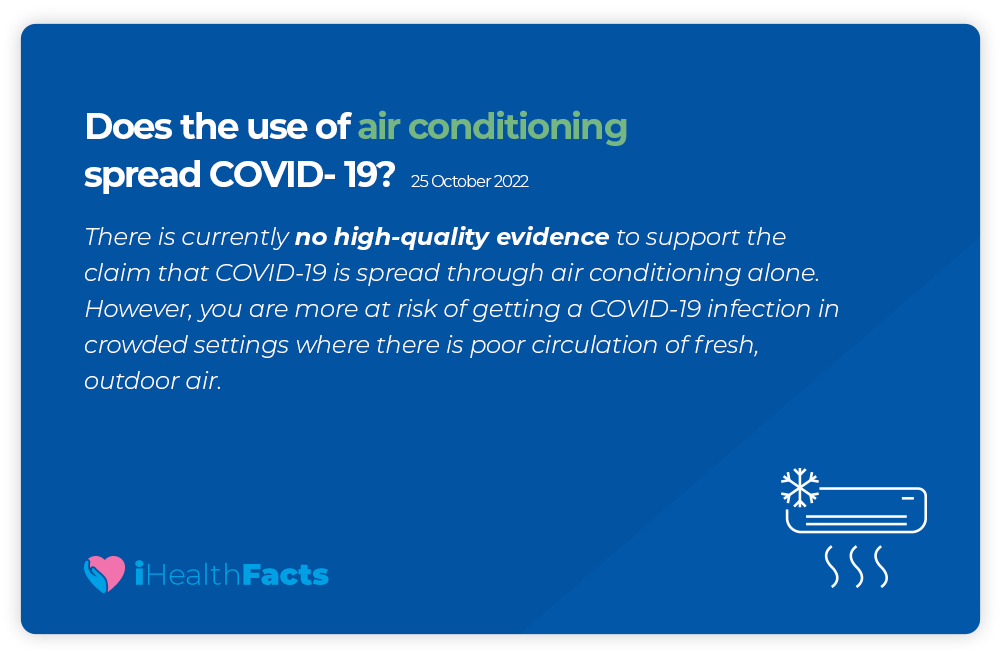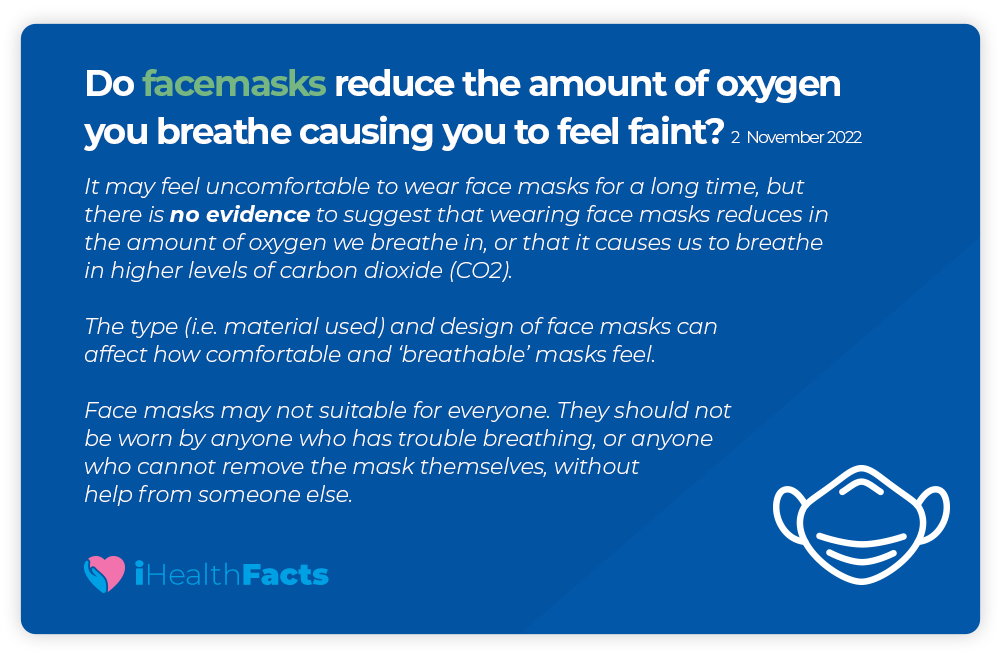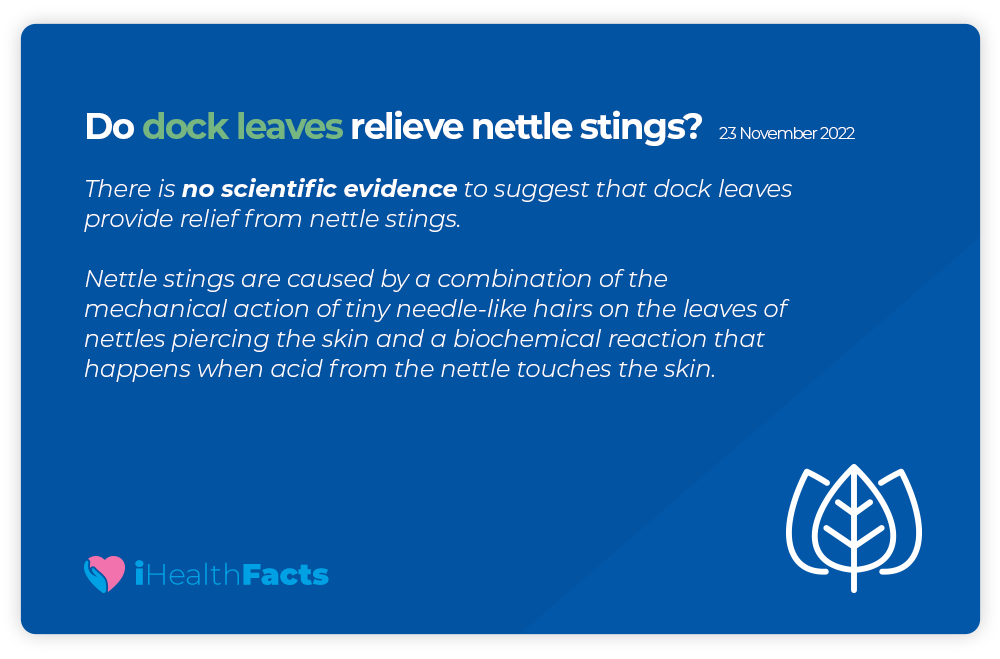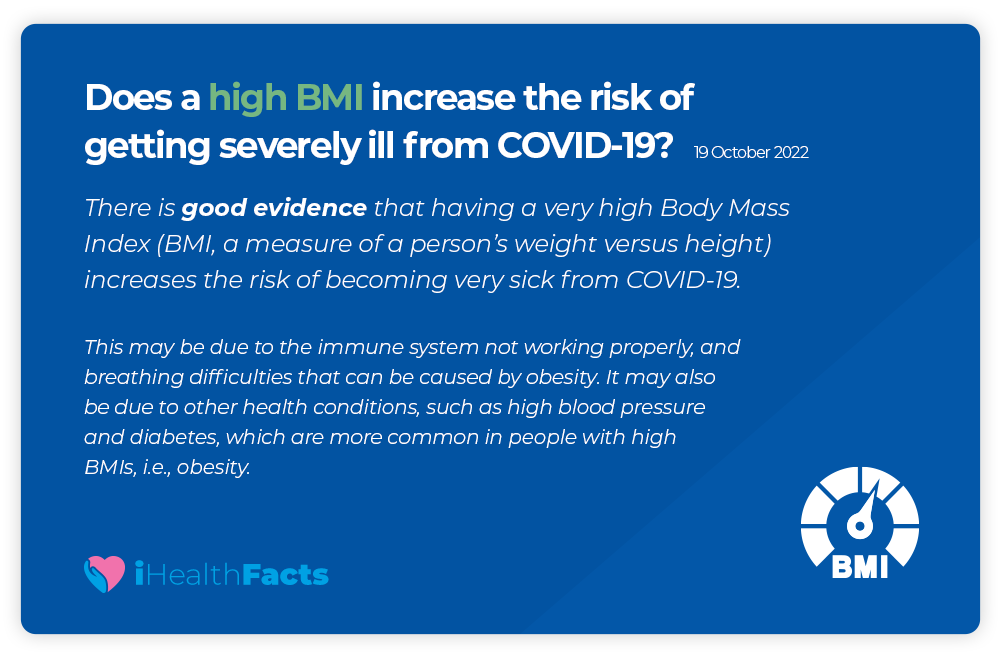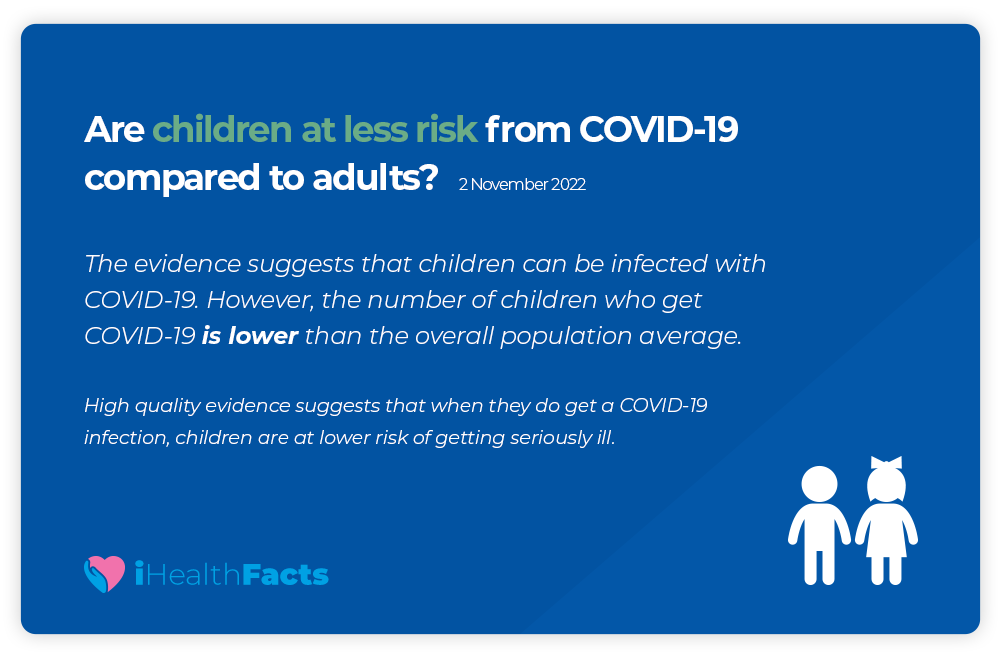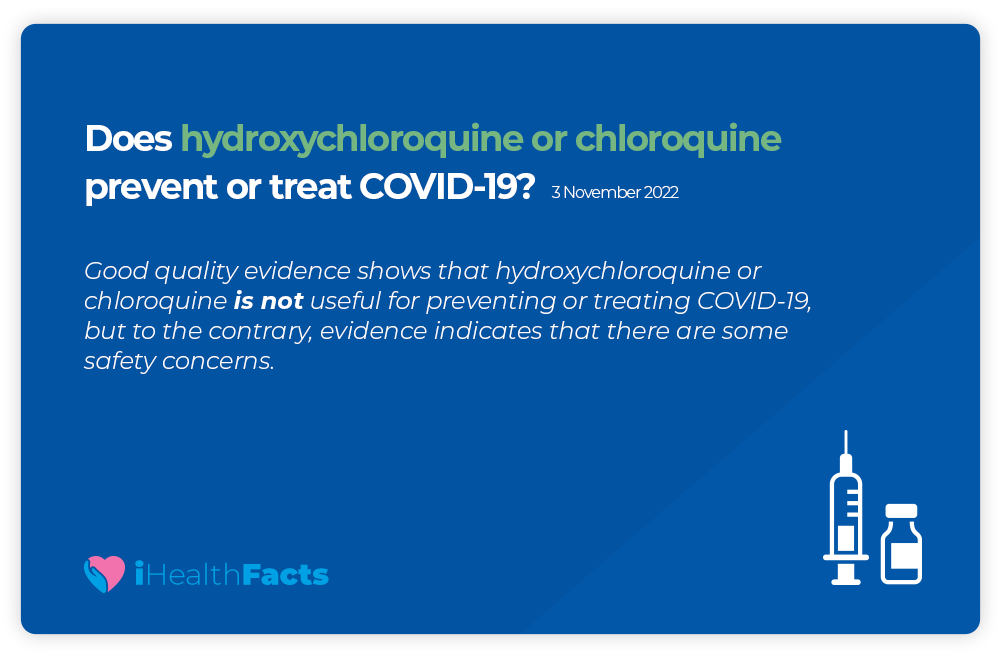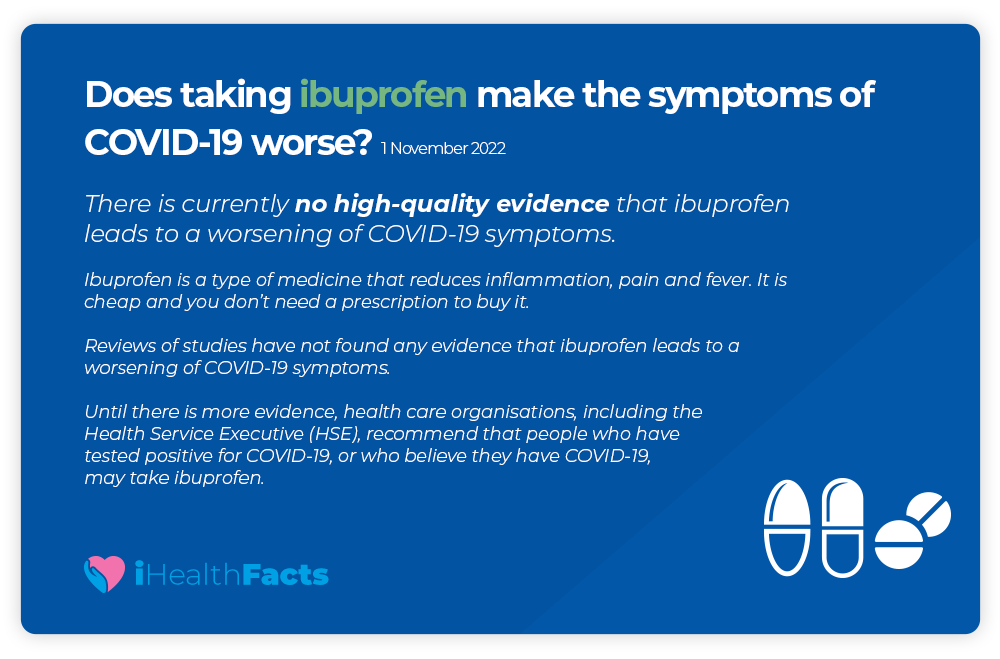Search Results
-
Do bisphosphonates cause more harm than good in older women with osteoporosis?
Click image to downloadThe Evidence
- Osteoporosis is a condition when our bones get weak because of decreased bone mass and a change in the structure of the bones. Osteopenia is the loss of bone mass that is not as severe as osteoporosis. Osteoporosis and osteopenia are diagnosed by measuring bone mass density (BMD)
- The decrease in bone mass is a natural part of aging, especially in women after menopause, and it increases the chance of bones breaking (fractures). Other factors apart from bone mass density increase the risk of fractures, including poor health, age, smoking and lack of exercise.
- Bisphosphonates are medicines that help stop bones from getting weaker and are used for treating osteoporosis and diseases like it. Normal, healthy bone cells in our bodies are constantly being slowly removed and replaced with new bone cells. Bisphosphonates work by reducing the breakdown or removal of bone.
- We were asked if bisphosphonates cause more harm than good in older women with osteoporosis. The best way to know for sure whether the benefits outweigh the harms of this medicine is to know the absolute risk of fractures with and without the treatment and the absolute risk of harms. For example, to figure out how much bisphosphonates reduce the risk of fractures, you need to look at randomised studies that show the number of fractures in women who were taking the medicine compared with the number in women who were not taking the medicine.
- We found seven relevant systematic reviews, conducted on this topic, that were published in the last five years. The quality of the reviews was good even though sometimes even a good quality review can have low quality studies included in it.
- Two of the reviews reported the absolute reduction in risk of fractures from bisphosphonates:
- The first systematic review looked at a bisphosphonate called risedronate. The review looked at post-menopausal women at low risk and high risk of fractures, and compared people taking the medicine with those who took a placebo.
- It wasn’t possible to estimate if risedronate had an effect on the number of fractures in low-risk women and there was very little difference in the number of women who stopped the medicine because of side effects (undesirable treatment effects), but they didn’t know if there was any difference in those taking the medicine and placebo in terms of serious side effects. In high risk women, they couldn’t find any information on vertebral (back) fractures. They found that 10 out of 100 women taking placebo had non-vertebral fractures compared with 8 out of 100 taking risedronate; 3 out of 100 women taking placebo had hip fractures compared with 2 out of 100 taking risedronate; and there wasn’t enough information to see if there was any difference in fractures of the wrist.
- The second systematic review looked at the effect of zoledronate, a type of bisphosphonate, on bone fractures in in women with osteoporosis who have gone through menopause
- In women who already had osteoporosis, they found that 8 out of 100 who were taking placebo had fractures compared with 5 out of 100 taking zoledronate. There were similar numbers of non-serious side effects overall in both groups, but about 3 out of 100 taking placebo compared with 8 out of 100 taking zoledronate had side effects overall.
However, a lot of the information in this review comes from one study, which could be biased.
- Five reviews looked at bisphosphonates, but they did not tell us about the absolute reduction in risks (Review 1, review 2, review 3, review 4, review 5)
- Reviews 1, 3 and 4 reported that there were reductions in the risk of some fractures from some of the bisphosphonates but not in others. Review 2 reported a lower risk in people taking bisphosphonates. Review 5 found a reduction in risk but this could have been down to chance.
- Reviews 1 and 3 did not report anything about side effects. Review 2 reported on side effects but did not estimate the overall chance of bisphosphonates causing harm. Review 4 reported an increase in side effects from one type of bisphosphonate and not from another. Review 5 reported an increase in side effects in people taking bisphosphonates that could have been down to chance.
Guidelines and recommendations
- We searched for national and international organisations, including the World Health Organization (WHO), Centers for Disease Control and Prevention (CDC), and Health Service Executive (HSE), for related guidelines and recommendations.
- We did not find any guidelines or recommendations.
- However, we have identified a technology assessment report by the National Institute for Health and Care Excellence (NICE), UK. The report suggested as follows:
- All bisphosphonates showed beneficial effects compared to a placebo.
The report showed no significant differences between the bisphosphonate group and the placebo group in terms of the number of adverse events, mortality and participants stopping the treatment due to side effects.
Things to Remember
- If one study shows something, it does not mean that it is the final answer.
- Unless a treatment is compared to something else, it is not possible to know what would happen without it.
- We can rarely be 100% certain about any claim.
Reviewers
- Lead Researcher: Dr KM Saif-Ur-Rahman, Senior Research Methodologist, Evidence Synthesis Ireland and Cochrane Ireland, College of Medicine, Nursing and Health Sciences, University of Galway.
- Reviewed by: Dr Paula Byrne, Senior post-doctoral researcher, iHealthFacts, Evidence Synthesis Ireland and Cochrane Ireland, College of Medicine, Nursing and Health Sciences, University of Galway.
- Topic advisor: Dr. Frank Moriarty, Senior Lecturer in Pharmacy at the School of Pharmacy and Biomolecular Sciences, Royal College of Surgeons in Ireland and visiting research fellow at The Irish Longitudinal Study on Ageing (TILDA).
- Public and Patient advisor: Deirdre Mac loughlin, Public and Patient Involvement in research (PPI) advisor, PPI Ignite Network, University of Galway.
- Journalist Advisor: Dr. Claire O’Connell, PhD in cell biology, Masters in Science Communication. Contributor to The Irish Times, writing about health, science and innovation.
Conflict of Interest Statement: The authors have no financial or other conflicts of interest for this health claim summary.
-
If I continue to work past retirement age will that help to stop me developing dementia?
Click image to downloadThe Evidence
- Dementia is a condition when someone has trouble with their memory and thinking skills, to the point that it negatively affects their daily life.
- It has been claimed that working past retirement age might help to prevent dementia.
- We looked for studies to find out whether or not working past retirement age helps to prevent dementia.
- We found five individual studies on working past retirement age and dementia. All five studies were cohort studies. In this type of study, researchers follow a group of people who haven’t experienced a particular event or condition (like dementia) over a period of time. They observe what happens to those individuals, and compare the characteristics of those who eventually experience the event (like developing dementia) with those who don’t. This helps researchers to understand what factors might be linked with that event happening, but, a cohort study can’t tell us that something definitely caused a condition.
- The first study reported that the men who retired at 68 years or older were at lower risk of mild cognitive impairment than those who retired age 67. Mild Cognitive Impairment is a condition when someone has some trouble with their memory and thinking that’s more than usual for their age, but it is not as severe as dementia.
- The second study found that the participants who retired at 66 years and over had less chance of developing dementia than those who retired at 65.
- The third study found that the chance of developing dementia was lower among those who retired aged over 60 compared to those who retired at 60 years of age.
- The fourth study found that there is a lower chance of developing dementia if the retirement is at an older age (at least 1 year after the usual age of retirement).
- In contrast, the fifth study found that those who retire on an early retirement scheme are less likely to develop cognitive decline. Cognitive decline is a condition when a person’s ability to think, remember and learn gets weaker over time.
Guidelines and recommendations
- We searched several national and international organisations, including the World Health Organization (WHO), Centers for Disease Control and Prevention (CDC), and Health Service Executive (HSE), for related guidelines and recommendations.
- We did not find any guidelines or recommendations relating to working past retirement age and dementia.
Things to Remember
- If one study shows something, it does not mean that it is the final answer.
- Just because a claim is made by an expert or authority, you cannot be sure that it is trustworthy.
- We can rarely be 100% certain about any claim.
Reviewers
- Lead Researcher: Dr. KM Saif-Ur-Rahman, Senior Research Methodologist, Evidence Synthesis Ireland and Cochrane Ireland, College of Medicine, Nursing and Health Sciences, University of Galway.
- Reviewed by: Dr. Paula Byrne, Senior post-doctoral researcher, iHealthFacts, Evidence Synthesis Ireland and Cochrane Ireland, College of Medicine, Nursing and Health Sciences, University of Galway.
- Topic advisor: Dr. Darren Dahly, Principal Statistician, HRB Clinical Research Facility, Cork, Ireland, and Senior Lecturer in Research Methods in the UCC School of Public Health.
- Public and Patient advisor: Deirdre Mac Loughlin, Public and Patient Involvement in research (PPI) advisor, PPI Ignite, University of Galway.
- Journalist Advisor: Dr. Claire O’Connell, PhD in cell biology, Masters in Science Communication. Contributor to The Irish Times, writing about health, science and innovation.
Conflict of Interest Statement: The authors have no financial or other conflicts of interest for this health claim summary.
-
Does using Ozempic increase the risk of bowel cancer?
Click image to downloadThe Evidence
- Ozempic is a diabetes medicine. It is used along with diet and exercise to treat adults whose type 2 diabetes is not satisfactorily controlled. More recently, it has been used to help people manage their weight, but, in Ireland, this is an off-label use. This means that the medicine is being used in a way that is different to what it has been officially approved for.
- We found one study that looked at people aged over 66 in the US. It found no evidence of an increased risk of bowel cancer compared to other treatments for type 2 diabetes.
- Another study looked at people taking anti-diabetic medicines in the US and found that people taking GLP-1Ras (the group of drugs that includes Ozempic) had a lower risk of developing bowel cancer compared with those taking another type 2 diabetes drug, metformin. This study also found that when patients were on GLP-1RAs for a longer time, the risk fell further.
- Another study of people taking anti-diabetic medicine, this time conducted in the UK, found that GLP-1RAs were not associated with an increased risk of colorectal cancer
- Ozempic was not among the GLP1-RAs studied in any of the above research studies.
- The studies we found are real-world database cohort studies. These are not considered to provide very strong evidence. We would need better-quality studies before we can be certain about whether using Ozempic increases the risk of bowel cancer.
Things to Remember
- Ask whether the treatments available to you are sufficiently different from those in the research studies that the results may not apply to you.
- Always ask yourself whether the possible advantages of a treatment outweigh the disadvantages of the treatment.
- It is important that the evidence is specifically relevant to you and in particular, it is important to check if the treatments are different from those available to you.
Reviewers
- Lead Researcher: Dr Marie Tierney, Post-doctoral researcher, Evidence Synthesis Ireland and Cochrane Ireland, College of Medicine, Nursing and Health Sciences, University of Galway.
- Reviewed by: Dr. Paula Byrne, Senior post-doctoral researcher, iHealthFacts, Evidence Synthesis Ireland and Cochrane Ireland, College of Medicine, Nursing and Health Sciences, University of Galway.
- Topic advisor: Prof. Maureen Kelly, Associate Professor, School of Medicine, Discipline of General Practice, University of Galway.
- Public and Patient advisor: Deirdre Mac Loughlin, Public and Patient Involvement in research (PPI) advisor, PPI Ignite, University of Galway.
- Journalist Advisor: Dr. Claire O’Connell, PhD in cell biology, Masters in Science Communication. Contributor to The Irish Times, writing about health, science and innovation.
Conflict of Interest Statement: The authors have no financial or other conflicts of interest for this health claim summary.
-
Does ashwagandha help sleep and prevent nightmares?
Click image to downloadThe Evidence
- Ashwagandha is a herbal medicine derived from a small, evergreen shrub that grows in parts of India, the Middle East and Africa. It is sometimes called Indian ginseng or Indian winter cherry.
- The root and leaves have been used in Indian traditional medicine for thousands of years for various purposes, including pain, inflammation, brain function, anxiety, stress and male infertility.
- We were asked if it can help people sleep, and if it can prevent nightmares in menopausal women.
- We didn’t find any information about nightmares during menopause or otherwise.
- We found two systematic reviews about ashwagandha and sleep.
- The first review was of moderate quality and included two small trials, one with people with insomnia and one with healthy people. One study was a randomised trial, meaning it compared one group who took the herb to another who did not. The second study followed only one group of people, so the improvements in sleep could have been down to chance. Both studies reported that taking ashwagandha improved sleep.
- The second review was high quality and included five trials; two in people who were described as ‘stressed’; two in people with insomnia and one in healthy adults. They found a small improvement in sleep in those taking ashwagandha, especially in those with insomnia.
- We also found five randomised trials about ashwagandha and sleep. Four of these were included in the reviews above. The fifth trial involved 60 college students. Those taking ashwagandha reported that their sleep improved compared with those not taking it.
- Ashwagandha seems to help improve sleep, but there are a few problems with the research that we found about it.
- Firstly, the studies used different strengths and types of ashwagandha, so it’s hard to compare them. We would need larger randomised trials to be sure.
- Secondly, the studies were quite short in duration and the consideration of potential side effects was limited, so we don’t know the long-term positive or negative effects of taking it.
Guidelines and recommendations
- We didn’t find any guidelines or recommendations about ashwagandha.
Things to Remember
- Look out for treatment effects that are based on small studies with few people.
- If somebody got better after using a treatment, it doesn’t necessarily mean that the treatment made them better, it could have happened by chance.
Reviewers
- Lead Researcher: Dr. Paula Byrne, Senior post-doctoral researcher, iHealthFacts, Evidence Synthesis Ireland and Cochrane Ireland, College of Medicine, Nursing and Health Sciences, University of Galway.
- Reviewed by: Dr. Kayleigh Kew, Freelance researcher in evidence synthesis methods and technology, UK
- Topic advisor: Dr. Sinéad Lydon, Associate Professor, Discipline of General Practice, School of Medicine, University of Galway.
- Public and Patient advisor: Anne Daly, Public and Patient Involvement in research (PPI) advisor, PPI Ignite, University of Galway.
- Journalist Advisor: Dr. Claire O’Connell, PhD in cell biology, Masters in Science Communication. Contributor to The Irish Times, writing about health, science and innovation.
Conflict of Interest Statement: The authors have no financial or other conflicts of interest for this health claim summary.
-
Can cannabis cure cancer?
Click image to downloadThe Evidence
- Cannabis can be made from the dried flowers, leaves, stems and seeds of a plant called Cannabis sativa. The plant contains more than 500 chemical substances.
- Doctors can prescribe cannabis to treat symptoms in people with certain conditions, such as multiple sclerosis and chronic pain.
- We were asked if cannabis can cure cancer.
- We found six systematic reviews on this topic.
- One moderate-quality review looked at three studies of cannabis in combination with other medicines and two studies of cannabis alone:
- Survival – One study reported that people who took cannabis lived longer than those who didn’t, one reported the opposite and one did not find a difference.
- Tumour progression (growth and spread) – One study found that the tumours of people taking cannabis progressed more quickly than in those who did not take cannabis, and two studies found there was no difference. However, the studies in this review did not include many people, and the studies were not high-quality randomised controlled trials(RCTs), so we can’t be sure of these findings.
- The second review looked at using cannabis in people with cancer of the brain and spinal cord and found that there was no difference in the risk of dying after one year between people who took cannabis and those who did not. However, most of the studies were not RCTs.
- The third review looked mostly at case reports or case series, which are not good enough to figure out whether cannabis can work as an anti-cancer treatment or not.
- The fourth review included studies that are already in the reviews above. The only new information was from a single case of a brain tumour which reduced after cannabis but the evidence is not good enough to say if cannabis can cure cancer as it may have happened by chance.
- The fifth and sixth reviews didn’t have any further studies apart from those already included in the reviews above.
Guidelines and recommendations
- We found some information from the World Health Organization, which said that cannabis can help with nausea and vomiting in people with advanced AIDS, cancer and other illnesses. However, they did not say anything about whether cannabis can be used to treat cancer.
Things to Remember
- Watch out for studies based on a small number of people, they can’t really tell us if a treatment works or not.
- If someone tells you they got better after using a treatment, it does not necessarily mean that the treatment made them better.
- Look out for comparisons of treatments between studies that are different.
Reviewers
- Lead Researcher: Dr. Paula Byrne, Senior post-doctoral researcher, iHealthFacts, Evidence Synthesis Ireland and Cochrane Ireland, College of Medicine, Nursing and Health Sciences, University of Galway.
- Reviewed by: Dr. Kayleigh Kew, Freelance researcher in evidence synthesis methods and technology, UK
- Topic advisor: Prof. Emma Wallace, Professor of General Practice, Dept of General Practice, University College Cork & General Practitioner, Parklands Surgery, Commons Road, Cork.
- Public and Patient advisor: Deirdre Mac Loughlin, Public and Patient Involvement in research (PPI) advisor, PPI Ignite, University of Galway.
- Journalist Advisor: Dr. Claire O’Connell, PhD in cell biology, Masters in Science Communication. Contributor to The Irish Times, writing about health, science and innovation.
Conflict of Interest Statement: The authors have no financial or other conflicts of interest for this health claim summary.
-
Can cassava leaf cure cancer?
Click image to downloadThe Evidence
- Cancer is among the leading causes of death worldwide. Some of the treatments for cancer in modern medicine can have severe side effects. Some people are interested in exploring whether treatments known as ‘natural remedies’, for example use of plant extracts, may effectively treat or cure cancer.
- Cassava is one such natural remedy whose roots, stems and leaves are used to treat various illnesses. It is the sixth most important crop in the world. The cassava leaf consists of a palm-shaped leaf blade with 3 to 9 lobes, and it comes in different colours.
- We did not find any human studies on whether cassava leaf can treat cancer, but we found five laboratory-based studies:
- Study one was a study on rats and it found that cassava leaf may have anticancer properties.
- Studies two, three, four and five looked at the effect of cassava leaf on certain human cancer cells and found that in these laboratory settings, cassava leaf may have anti-cancer properties.
- All of these published studies were done as standalone pieces of research, and we found no published reviews of evidence relating to cassava leaf and cancer on cells, animals or humans.
- No matter how promising a treatment seems during tests in a laboratory, it must go through rigorous stages of evaluation to ensure it is both effective and safe for humans, using robust study designs such as a randomised control trial (RCT) before its benefits and risks can really be known.
Guidelines and recommendations
- We searched several national and international organisations including WHO, ECDC, HSE, and HSPC for related guidelines and recommendations.
- We did not find any guidelines or recommendations on the use of cassava leaf for the prevention or treatment of cancer.
Things to Remember
- Do remember that there are uncertainties when laboratory research findings are applied to real-life situations without human experiments.
- One should be aware that even if the laboratory results are positive and it is likely to be helpful, without trial on the humans it is not possible to predict its efficacy and safety.
Reviewers
- Lead Researcher: Dr. Pradnya Kakodkar, Doctoral Researcher, Dentistry & Health Sciences, Symbiosis International (Deemed University), India.
- Reviewed by: Dr. Paula Byrne, Senior post-doctoral researcher, iHealthFacts, Evidence Synthesis Ireland and Cochrane Ireland, College of Medicine, Nursing and Health Sciences, University of Galway.
- Topic advisor: Dr. Sinéad Lydon, Associate Professor, Discipline of General Practice, School of Medicine, University of Galway.
- Public and Patient advisor: Anne Daly, Public and Patient Involvement in Research (PPI) Advisor, PPI Ignite, University of Galway.
- Journalist Advisor: Dr. Claire O’Connell, PhD in Cell Biology, Masters in Science Communication. Contributor to The Irish Times, writing about health, science and innovation.
Conflict of Interest Statement: The authors have no financial or other conflicts of interest for this health claim summary.
-
Does taking daily Vitamin D prevent multiple sclerosis later in life?
Click image to downloadThe Evidence
- A lot of research suggests a link between MS and having low levels of vitamin D. However, it is not clear whether low vitamin D levels play a part in causing MS, or whether low levels might be as a result of MS.
- Most of the studies we found look at either the association between vitamin D levels and developing MS (i.e. whether the two are linked), or they look at effects of people who already have MS taking Vitamin D supplements. These studies do not answer the question of whether vitamin D supplements can stop MS developing in the first place. The reason such studies don’t exist is mostly because it is very difficult to do large-scale prevention trials that would best answer this question.
- We found one high-quality observational study that found that women who used supplemental vitamin D had a 40% lower risk of MS than women who did not use vitamin D supplements. However, this supplemental vitamin D intake was largely from multivitamins which contain other vitamins as well as vitamin D. Also, just because a study finds links or associations between two things, this doesn’t prove that one thing is caused by the other.
- We found two randomised trials that explored the effects of vitamin D supplements in people who have a high risk of developing MS (this is a type of MS called ‘clinically isolated syndrome’ where people who experience it may or may not go on to develop MS).
- One was a very small pilot trial of acceptable quality with 30 people (aged 20-40) that reported supplemental vitamin D can reduce the risk of MS developing in this type of patient; however, the other trial was of high quality with 204 people (aged 18-65) and concluded that vitamin D supplements did not reduce the risk of MS.
- The dosage of vitamin D supplements used in these two trials (50,000 IU vitamin D3 weekly or up to 10,000 IU of vitamin D3 daily by mouth) was shown to be safe.
Guidelines and recommendations
- We found no guidelines specifically on vitamin D supplementation for preventing MS. However, the HSE, the WHO and the CDC recommend vitamin D supplementation for general health.
Things to Remember
- Although the two trials we found showed that the dosage of vitamin D they used was safe, it can be harmful to ‘overdose’ on high levels of vitamin D.
- Be wary of treatment effects and claims that are based on small studies of few people.
- Just because a study finds links or associations between two things, this doesn’t prove that one is caused by the other
- Ask yourself if the advantages outweigh the disadvantages.
Reviewers
- Lead Researcher: Dr Elaine Toomey
- Reviewed by: Dr. Paula Byrne, Senior post-doctoral researcher, iHealthFacts, Evidence Synthesis Ireland and Cochrane Ireland, College of Medicine, Nursing and Health Sciences, University of Galway.
- Topic advisor: Prof. Francis Finucane, Professor of Medicine University of Galway, Consultant Endocrinologist at Galway University Hospital.
- Public and Patient advisor: Anne Daly, Public and Patient Involvement in research (PPI) advisor, PPI Ignite, University of Galway.
- Journalist Advisor: Dr. Claire O’Connell, PhD in cell biology, Masters in Science Communication. Contributor to The Irish Times, writing about health, science and innovation.
Conflict of Interest Statement: The authors have no financial or other conflicts of interest for this health claim summary.
-
Do collagen supplements make a difference in skin ageing?
Click image to downloadThe Evidence
- Collagen is a key component of the body that provides strength and flexibility to the skin. As we age, our bodies produce less collagen, leading to the appearance of wrinkles and a decrease in skin firmness.
- It has been claimed that using collagen supplements may reduce skin ageing.
- We found four systematic reviews about the effect of collagen supplements on the skin:
- The first systematic review found that taking hydrolyzed (broken down) collagen (HC) supplements or collagen peptides can help reduce signs of ageing in the skin, such as wrinkles, and improve skin hydration and elasticity by a small amount. However, this effect was only seen if the supplements were taken regularly. The studies included in this review compared different types of supplements, and the methods used to measure the effects varied, making it hard to compare them directly. The study also noted that people with healthy lifestyles, including a good diet and drinking enough water, might see better and quicker improvements in their skin when taking collagen supplements compared to those with less healthy habits.
- The second systematic review reported that collagen supplements consistently improved skin ageing signs in all types of people, whether they had healthy skin or not. The studies included in this review were generally run well but there is a risk of bias because either the participants or the scientists involved in the study knew what the participants were taking.
- The third systematic review suggests that collagen supplements for short-term and long-term use seem to improve skin elasticity, moisture and collagen density, and haven’t shown any side effects yet.
- Lastly, another systematic review showed that taking hydrolyzed collagen (HC) supplements can improve skin hydration and elasticity. Longer use of these supplements tends to have better effects on skin moisture and flexibility compared with short-term use. However, more extensive and higher-quality studies are needed to fully understand the benefits of these supplements, as there might have been problems with how the studies in this review were run.
- In conclusion, several systematic reviews reported that collagen supplements may have a positive effect on skin ageing, especially when used long-term. However, these findings often come from small clinical trials, so we can’t draw exact conclusions. We need larger and higher quality studies to be sure.
Guidelines and recommendations
- We did not find any guidelines regarding the effect of collagen supplements on skin ageing published by the World Health Organization (WHO), Centers for Disease Control and Prevention (CDC), Health Protection Surveillance Centre (HPSC), or Health Service Executive (HSE).
Things to Remember
Reviewers
-
Do drinks containing aspartame increase the risk of cancer in the future?
Click image to downloadThe Evidence
- Aspartame is an artificial sweetener that is low in calories. It is added to many foods and drinks. Because it is about 200 times sweeter than sugar, a much smaller amount of aspartame is needed to achieve a taste like sugar. It is therefore a popular replacement for sugar in low-calorie foods, including table-top sweeteners, chewing gum and food supplements. However, over 90% of exposure to aspartame by humans is through artificially sweetened drinks.
- Since aspartame first began to be added to drinks in the 1980s, there has been a concern that it may have adverse health effects, in particular that aspartame may be linked with cancer.
- We looked for studies and recommendations to see if consuming drinks containing aspartame is associated with cancer.
- We found some information from both the International Agency for Research on Cancer (IARC) and the Joint FAO/WHO Expert Committee on Food Additives (JECFA).
- The IARC said that aspartame could possibly cause cancer in humans but said that there is limited evidence about it.
- The World Health Organisation published a systematic review in 2022 that looked at the health effects of the use of non-sugar sweeteners (NSS), which included aspartame. This review included 283 studies, but only 5 studies looked at the link between aspartame in drinks and cancer. Overall, these 5 studies did not find an association between aspartame-containing drinks and cancer, but the evidence is weak.
- A cohort study published later in 2022, presents an update on the findings of The NutriNet-Santé study in France. This study found an association between the consumption of aspartame in foods and drinks and overall cancer, breast cancer and obesity-related cancers.
- While three other studies found an association between artificially sweetened beverages and liver cancer, these studies do not specifically look at aspartame. Also, we can’t rely on these findings as they could be due to chance or other reasons not captured by the studies.
- Overall, the evidence that consuming aspartame containing drinks causes cancer in humans is limited, and more research is needed.
Guidelines and recommendations
- JECFA advised that there should be no change to the current acceptable daily aspartame intake of 40 mg/kg body weight. An adult weighing 70kg would need to consume more than 9–14 cans of soda per day to exceed the acceptable daily intake, assuming no other intake from other food sources.
- The IARC said that aspartame could possibly cause cancer in humans but said that there is limited evidence about it.
Things to Remember
- Look out for “lack of evidence” being described as evidence of “no difference”.
- Look out for outcomes that were not assessed reliably in treatment
Reviewers
- Lead Researcher: Dr Thérèse McDonnell, Research Fellow, UCD IRIS Centre, School of Nursing, Midwifery & Health Systems, University College Dublin
- Reviewed by: Dr. Paula Byrne, Senior post-doctoral researcher, iHealthFacts, Evidence Synthesis Ireland and Cochrane Ireland, College of Medicine, Nursing and Health Sciences, University of Galway.
- Topic advisor: Prof Emma Wallace, Professor of General Practice, Dept of General Practice, University College Cork & General Practitioner, Parklands Surgery, Commons Road, Cork.
- Public and Patient advisor: Deirdre Mac Loughlin , Public and Patient Involvement in research (PPI) advisor, PPI Ignite, University of Galway.
- Journalist Advisor: Dr. Claire O’Connell, PhD in cell biology, Masters in Science Communication. Contributor to The Irish Times, writing about health, science and innovation.
Conflict of Interest Statement: The authors have no financial or other conflicts of interest for this health claim summary.
-
Do lead waterpipes harm health?
Click image to downloadThe Evidence
- We were asked if water pipes that contain lead harm people’s health, but didn’t find any studies specifically about lead pipes. We mainly found studies on lead from various sources. This includes lead from traffic, paint, mining, battery manufacture and e-recycling plants as well as other sources.
- We found four systematic reviews about lead and health in general.
- The first review looked at whether exposure to lead causes anaemia in children and did not find an association between lead and anaemia.
- The second review was about lead and blood pressure. This review found that there might be a small association between lead exposure and blood pressure. However, this review is of low quality and dates from 1995.
- The third review looked at a lot of studies on how lead affects babies and young children’s brain development. It found that children exposed to lead, either directly or through their mother before they were born, can have problems with brain development compared with children who were not exposed. However, we couldn’t be sure of how good these included studies were.
- We found a fourth moderate-quality review about women of child-bearing age in Sub-Saharan Africa, including pregnant women and how different levels of lead affected them or their babies. Some studies followed these babies until they were older children or adults. There were mixed findings; some studies reported bad outcomes for mothers or babies when they were exposed to lead, and some did not find any bad outcomes.
- Many of the studies in these reviews are what is called cross-sectional. That means that the scientists just looked at a group of people who are exposed to something (like lead), but there might have been other reasons for the bad outcomes they found (like smoking or age). Other studies in these reviews had few people in them so we can’t depend on their findings.
- A report from the World Health Organization (WHO) included studies on lead from lots of sources. They reported that exposure to lead was associated with neurological, physical and development problems in children, hearing loss, lower IQ (intelligence), mental health problem, reduction in being able to think and reason in old age and cardiovascular disease. It also reported that children who are exposed to lead are more likely to be aggressive or anti-social later in their teenage years. However, this report doesn’t tell us about how good these included studies are, and how much we can rely on them.
Guidelines and recommendations
- The WHO says that over a million people die from lead poisoning every year.
- The WHO fact sheet says that lead can affect many parts of the body and that can be stored in the bones. Lead that is stored in the bones of a pregnant women can cause her baby to be exposed, which can cause harm. They say that there is no safe level of lead for human health.
- The HSE also says that lead is harmful to health and notes that lead can get into drinking water from old lead pipes.
- Uisce Éireann, who are in charge of the majority of water supplies in Ireland, say that there are no lead water mains in Ireland. However, they say that there are still some old lead pipes connecting public water pipes to private supplies.
Things to Remember
- We need to compare two similar groups of people (one who was exposed to something and one who were not) to find out if that exposure caused harm or if something else caused it.
- When we say we have no evidence about something, people often think we mean that there’s no difference between people who were exposed to (or treated by) something. This is not right. We mean we cannot be sure if there was a difference or not.
Reviewers
- Lead Researcher: Dr. Paula Byrne, Senior post-doctoral researcher, iHealthFacts, Evidence Synthesis Ireland and Cochrane Ireland, College of Medicine, Nursing and Health Sciences, University of Galway.
- Reviewed by: Dr. Kayleigh Kew, Freelance researcher in evidence synthesis methods and technology, UK
- Topic advisor: Prof. Dearbhaile Morris, Personal Professor of Antimicrobial Resistance and One Health, and Head of the Discipline of Bacteriology at the School of Medicine, and Director of the Centre for One Health, University of Galway.
- Public and Patient advisor: Anne Daly, Public and Patient Involvement in research (PPI) advisor, PPI Ignite, University of Galway.
- Journalist Advisor: Dr. Claire O’Connell, PhD in cell biology, Masters in Science Communication. Contributor to The Irish Times, writing about health, science and innovation.
Conflict of Interest Statement: The authors have no financial or other conflicts of interest for this health claim summary.
-
Do 4G and 5G sports pitches (Astro turf) cause cancer due to the breakdown of the rubber base?
Click image to downloadThe Evidence
- The bases of some artificial turf pitches for indoor and outdoor sports are made from ‘crumb rubber’. Crumb rubber or ‘infill’ can be made from recycled tyres that contain a variety of substances that can be dangerous to health. These include chemicals known as PAHs (polycyclic aromatic hydrocarbons), microplastics and heavy metals such as lead.
- We found 2 studies from the USA that looked at whether people who regularly play sports on artificial turf pitches with crumb rubber get cancer more than people who don’t.
- The first was based on a group of soccer players in Washington State, USA who had developed cancers after playing on artificial turf pitches. The study was based on a list of soccer players made by a soccer coach. The Washington State Department of Health examined the data to compare rates of cancer in soccer players exposed to astroturf to rates of cancer that would be expected in people of a similar age in the state. The researchers said the results do not suggest that artificial turf is a risk to the public, but the study was limited as it could not be known whether the coach’s list included all cancers in soccer players exposed to astroturf in that age group and State.
- The second study looked at whether a type of cancer called lymphoma was associated with the amount of artificial turf pitches in different parts of California, USA. The study found no evidence that the pitches caused cancer in adolescents and young adults.
- We also found 8 studies known as ‘risk assessments’ (study 1, study 2, study 3, study 4, study 5, study 6, study 7, study 8) that tested artificial turf samples for chemicals that are known to cause cancer. The aim was to examine whether the type and amount of chemicals found would be dangerous to health if they were inhaled, touched or swallowed. Most of these studies found that there were chemicals in artificial turf that can cause harm. Some of the studies found that the amounts of these chemicals were not high enough to cause harm, but some found that they were above safe levels. However, we can’t be sure how applicable these studies are because they did not look at what happened in people exposed to artificial turf.
- We don’t know for certain whether artificial turf pitches could cause cancer because there have not been sufficiently large-scale studies over long periods to see if people who use them frequently have a higher rate of cancer than people who do not.
- There is no information about the safe levels of some chemicals in crumb rubber infill, so researchers can’t say if the levels found in samples are dangerous.
Guidelines and recommendations
- We found official reports from national agencies of investigations into possible harms to health from artificial turf pitches in the EU and USA.
- The European Chemicals Agency (EU) reported that there is no clear evidence of a potential harm to human health but given this uncertainty they reduced the safe level for eight high-risk chemicals called ‘polycyclic aromatic hydrocarbons’ (PAHs) in 2023 to minimise the risk of cancer and other health concerns. They are doing further tests on certain chemicals that could be harmful to people or the environment.
- The US Environmental Protection Agency is doing research to check the possible health risks of artificial turf pitches. So far, they have found that chemicals are present in the crumb rubber but they judge that risk to human health is low.
Things to Remember
- Just because something is associated with something else doesn’t mean it caused it. It could have just happened by chance.
- We would need very large studies with lots of people in them to figure out whether something causes disease, particularly rare disease.
Reviewers
- Lead Researcher: Kayleigh Kew, Freelance researcher in evidence synthesis methods and technology, UK
- Reviewed by: Dr. Paula Byrne, Senior post-doctoral researcher, iHealthFacts, Evidence Synthesis Ireland and Cochrane Ireland, College of Medicine, Nursing and Health Sciences, University of Galway.
- Topic advisor: Prof. Susan M. Smith, Professor of General Practice, Discipline of Public Health and Primary Care, Trinity College Dublin and General Practitioner in Inchicore Family Doctors, Dublin 8.
- Public and Patient advisor: Deirdre Mac Loughlin, Public and Patient Involvement in research (PPI) advisor, PPI Ignite, University of Galway.
- Journalist Advisor: Dr. Claire O’Connell, PhD in cell biology, Masters in Science Communication. Contributor to The Irish Times, writing about health, science and innovation.
Conflict of Interest Statement: The authors have no financial or other conflicts of interest for this health claim summary.
-
Does baking soda prevent or treat cancer?
Click image to downloadThe Evidence
- Cancer is one of the leading causes of death worldwide.
- The claim that baking soda may prevent or treat cancer may have arisen because of the idea that cancer cells thrive in an acidic environment. Some people may think that using baking soda to make our bodies less acidic (or more alkaline) could prevent cancer from growing and spreading.
- There have been no research studies in humans testing baking soda as a cancer treatment. This means there’s no high-quality evidence to back up its use for this purpose.
- Studies using animals have indicated that baking soda might be effective when used with cancer treatments, but this doesn’t imply that baking soda by itself can stop or heal cancer.
Guidelines and recommendations
- We searched several national and international organisations, including the World Health Organization (WHO), Centers for Disease Control and Prevention (CDC), and Health Service Executive (HSE), for related guidelines and recommendations.
- We did not find any guidelines or recommendations relating to baking soda and cancer.
Things to Remember
- Remember, personal experiences or anecdotes (stories) are, by themselves, not a reliable basis an unreliable basis for assessing the effects of an intervention.
- Unless a treatment is compared to something else, it is not possible to know what would happen without it.
- We can rarely be 100% certain about any claim.
Reviewers
- Lead Researcher: Dr. KM Saif-Ur-Rahman, Senior Research Methodologist, Evidence Synthesis Ireland and Cochrane Ireland, College of Medicine, Nursing and Health Sciences, University of Galway.
- Reviewed by: Prof Declan Devane, Professor of Health Research Methodology, Deputy Dean, College of Medicine, Nursing and Health Sciences, University of Galway, Scientific Director, HRB-Trials Methodology Research Network Director, Evidence Synthesis Ireland. Director, Cochrane Ireland.
- Topic advisor: Prof. Sinéád Lydon, Associate Professor, Discipline of General Practice, School of Medicine, University of Galway.
- Public and Patient Advisor: Anne Daly, Public and Patient Involvement in research (PPI) advisor, PPI Ignite, University of Galway.
- Journalist Advisor: Dr. Claire O’Connell, PhD in cell biology, Masters in Science Communication. Contributor to The Irish Times, writing about health, science and innovation.
Conflict of Interest Statement: The authors have no financial or other conflicts of interest for this health claim summary.
-
Does drinking alcohol cause cancer?
Click image to downloadThe Evidence
- We looked for studies to find out whether or not drinking alcohol causes cancer.
- We found several relevant systematic reviews carried out in the last five years. Some were high quality, and some were medium-to-low quality reviews. However, it is important to note that sometimes even a high quality review can have low quality studies in it.
- One systematic review explored the link between light alcohol drinking and the risk of cancer. The systematic review looked at a type of study that follows people over time called a cohort study. These studies reported that very light or light alcohol drinking can cause breast cancer in women and cancer of the colon/large intestine in men.
- We identified three systematic reviews on cancer of the colon/ large intestine.
- The first systematic review looked at cohort studies and case-control studies. The studies reported that drinking alcohol is an important risk factor for developing cancer of the colon/ large intestine.
- The second systematic review looked at cohort studies. These studies found that drinking alcohol is linked to a higher risk of dying from colon or large intestine cancer.
- The third systematic review looked at three different types of studies, including ones that tracked groups over time (cohort studies), studies comparing people with and without a condition (case-control studies), and studies that looked at one point in time (cross-sectional studies). However, cross-sectional studies can’t show that one thing causes another because they don’t compare two similar groups — one that drinks alcohol and one that doesn’t. Despite this limitation, this review also found that alcohol has a strong link to colon or large intestine cancer.
- Another systematic review looked at case-control studies in African population. The studies reported a relationship between drinking alcohol and cancer of the throat.
- We identified two systematic reviews on liver cancer.
- The first systematic review looked at cohort studies and case-control studies. The studies reported that drinking alcohol regularly is linked to liver cancer.
- The second systematic review looked at case-control studies conducted in China. The studies reported that drinking alcohol increased the risks of liver, throat and stomach cancers.
- There was one systematic review on breast cancer. This review looked at cohort studies, case-control studies, and cross-sectional studies. The studies reported that drinking alcohol has no link to developing breast cancer. The review authors felt that underreporting of alcohol consumption or absence of alcohol in some countries could help explain the absence of the link between alcohol consumption and breast cancer risk.
- There was one systematic review on urinary bladder cancer. The studies reported that drinking alcohol increases the risk of men getting urinary bladder.
- One systematic review found no link between wine drinking and the risk of developing any type of cancer. However, this review focused only on wine drinking, not other types of alcohol.
Guidelines and recommendations
- We searched several national and international organisations, including WHO, CDC, and HSE, for related guidelines and recommendations.
- The World Health Organization (WHO) states that even light or moderate alcohol consumption can lead to the development of cancer.
- The Centers for Disease Control and Prevention (CDC) has indicated that consuming alcohol increases the risk of various types of cancer.
- The Health Service Executive (HSE) states that drinking alcohol is linked to several kinds of cancer.
Things to Remember
- Just because one study shows that people who got a treatment did better or worse than those who did not, does not mean it’s the final answer.
- If someone gets better after a treatment, it does not necessarily or always mean that the treatment made them better.
- We can rarely be 100% certain about any claim.
Reviewers
- Lead Researcher: Dr. KM Saif-Ur-Rahman, Senior Research Methodologist, Evidence Synthesis Ireland and Cochrane Ireland, College of Medicine, Nursing and Health Sciences, University of Galway.
- Reviewed by: Prof Declan Devane, Professor of Health Research Methodology, Deputy Dean, College of Medicine, Nursing and Health Sciences, University of Galway, Scientific Director, HRB-Trials Methodology Research Network Director, Evidence Synthesis Ireland. Director, Cochrane Ireland.
- Topic advisor: Ananya Gupta, Director of Exercise Physiology, Exercise and Cancer Rehabilitation Researcher, School of Medicine, University of Galway , University of Galway.
- Public and Patient advisor: Anne Daly, Public and Patient Involvement in research (PPI) advisor, PPI Ignite, University of Galway.
- Journalist Advisor: Dr. Claire O’Connell, PhD in cell biology, Masters in Science Communication. Contributor to The Irish Times, writing about health, science and innovation.
Conflict of Interest Statement: The authors have no financial or other conflicts of interest for this health claim summary.
-
Does working long hours help to prevent dementia?
Click image to downloadThe Evidence
- Dementia is a condition when someone has trouble with their memory and thinking skills, to the point that it affects their daily life.
- It has been claimed that long working hours might help to prevent dementia.
- We looked for studies to find out whether or not long working hours help to prevent dementia.
- We found one relevant systematic review conducted on this topic. The quality of the review was good, but it included only one study that was relevant to our research question.
- The systematic review explored the link between long working hours (working longer than 8 hours in a shift) and cognitive performance. Cognitive performance refers to how well our brain works and how we think, learn, and remember things. The systematic review considered a type of study that looked at long working hours on worker’s cognitive functions at one point in time (cross-sectional study). The study found that people who work longer hours are more likely to experience a decrease in their ability to think and remember things or affect how well the brain functions. However, many things could account for this, and it is not possible to say for sure if this finding was due to chance, or if the decrease in the ability to think and remember things was due to something other than how long someone works.
- We identified three individual studies on long working hours and dementia. All three studies were cohort studies. In this type of study, researchers follow a group of people who haven’t experienced a particular event or condition (like dementia) over a period of time. They observe what happens to those individuals and compare the characteristics of those who eventually experience the event (like developing dementia) with those who don’t. This helps researchers to understand what factors might be associated with the occurrence of that event.
- The first study reported that people who worked long hours (defined as working more than 37 hours in a week) had a greater chance of developing dementia.
- The second study found that working long hours (more than 9 hours per day) in midlife lowers the chances of experiencing mild cognitive impairment later in life. Mild Cognitive Impairment is a condition when someone has some trouble with their memory and thinking that’s more than usual for their age, but not as severe as dementia.
- The third study found that there is no link between working long hours (defined as more than 45 hours per week) and the development of dementia.
Guidelines and recommendations
- We searched several national and international organisations, including the World Health Organization (WHO), Centers for Disease Control and Prevention (CDC), and Health Service Executive (HSE), for related guidelines and recommendations.
- We did not find any guidelines or recommendations relating to long working hours and dementia.
Things to Remember
- If one study shows something, it does not mean that it is the final answer.
- Just because a claim is made by an expert or authority, you cannot be sure that it is trustworthy.
- We can rarely be 100% certain about any claim.
Reviewers
- Lead Researcher: Dr. KM Saif-Ur-Rahman, Senior Research Methodologist, Evidence Synthesis Ireland and Cochrane Ireland, College of Medicine, Nursing and Health Sciences, University of Galway.
- Reviewed by: Prof Declan Devane, Professor of Health Research Methodology, Deputy Dean, College of Medicine, Nursing and Health Sciences, University of Galway, Scientific Director, HRB-Trials Methodology Research Network Director, Evidence Synthesis Ireland. Director, Cochrane Ireland.
- Topic advisor: Dr. Darren Dahly, Principal Statistician, HRB Clinical Research Facility, Cork, Ireland, and Senior Lecturer in Research Methods in the UCC School of Public Health.
- Public and Patient advisor: Deirdre Mac Loughlin, Public and Patient Involvement in research (PPI) advisor, PPI Ignite, University of Galway.
- Journalist Advisor: Dr. Claire O’Connell, PhD in cell biology, Masters in Science Communication. Contributor to The Irish Times, writing about health, science and innovation.
Conflict of Interest Statement: The authors have no financial or other conflicts of interest for this health claim summary.
-
Can a menstrual cup dislodge an intrauterine device (IUD)?
Click image to downloadThe Evidence
- Menstrual cups are an alternative to tampons and sanitary towels. The cup is made from silicone and is placed inside the vagina during a woman’s period. The cup collects blood and can be washed and used again.
- An intrauterine device is a form of contraception where a device is placed inside the womb. There have been claims that people who have an intrauterine device (IUD) fitted and who use menstrual cups are more likely to experience dislodgement of the IUD from the body, compared to those who use sanitary towels or tampons.
- We looked for studies to see if using a menstrual cup was associated with IUDs being dislodged, and we found two systematic reviews.
- One of these looked at a review of hospital charts, an internet survey and some case series and case reports of women whose IUDs had dislodged while using a menstrual cup.
- The review of 743 hospital charts didn’t find any difference in rates of IUD dislodgement between menstrual cup, sanitary towel or tampon users.
- The internet survey found an increased risk of IUD dislodgement and use of a menstrual cup. However, women who have had a problem with menstrual cups are more likely to volunteer to take part in a survey like this. Therefore, the survey is more prone to bias because it isn’t representative of all women using menstrual cups, and we can’t depend on its findings.
- It is not advisable to rely solely on case reports or case series as evidence for a particular health care treatment or other intervention, because they only consider people who have experienced a certain problem, and do not account for those who have not. Therefore, such information is not as helpful in finding out if the expulsion of IUDs was due to menstrual cups or it would have happened anyway.
- The second systematic review included the studies mentioned above and didn’t provide any further information.
- We would need some well-designed randomised studies to figure out whether menstrual cups are more likely to lead to dislodgement of IUDs compared to, say, sanitary towels or tampons.
- Dislodgement of IUDs is rare, which means we would need studies with large numbers of women in them to even see a few dislodgements. As a result very large studies would be needed in order for us to say with confidence whether there really is a difference between women who use a menstrual cup and those who don’t.
Guidelines and recommendations
- We did not find any guidelines or recommendations on the topic.
Things to Remember
- Just because something is associated with getting worse (or better) doesn’t mean it caused it. It may have happened by chance or because of something else.
- Look out for claims based on studies that include few people or events. We cannot be sure of results from these kinds of studies.
Reviewers
- Lead Researcher: Dr. Paula Byrne, Senior post-doctoral researcher, iHealthFacts, Evidence Synthesis Ireland and Cochrane Ireland, College of Medicine, Nursing and Health Sciences, University of Galway.
- Reviewed by: Prof Declan Devane, Professor of Health Research Methodology, Deputy Dean, College of Medicine, Nursing and Health Sciences, University of Galway,
- Scientific Director, HRB-Trials Methodology Research Network Director, Evidence Synthesis Ireland. Director, Cochrane Ireland
- Topic advisor: Prof. Susan M Smith, Professor of General Practice, Discipline of Public Health and Primary Care, Trinity College Dublin and General Practitioner in Inchicore Family Doctors, Dublin 8.
- Public and Patient advisor: Deirdre Mac Loughlin, Public and Patient Involvement in research (PPI) advisor, PPI Ignite, University of Galway.
- Journalist Advisor: Dr. Claire O’Connell, PhD in cell biology, Masters in Science Communication. Contributor to The Irish Times, writing about health, science and innovation.
Conflict of Interest Statement: The authors have no financial or other conflicts of interest for this health claim summary.
-
Does vaping or e-cigarettes make a difference to health?
Click image to downloadThe Evidence
- Vaping has become very popular with smokers to help them quit, and with non-smokers – including young people. Given the popularity of e-cigarettes, there are many questions about the way they are regulated and their impacts on health.
- Many e-cigarettes contain nicotine, and people who smoke regular cigarettes often use them to help them stop because they are seen as a safer alternative.
- We found 23 relevant systematic reviews. Some compared the health of e-cigarette users to people who smoke regular cigarettes or people who use both. Others compared them with non-smokers. Reviews comparing them to both found that e-cigarettes may be worse for you than not smoking, but do less harm than smoking regular cigarettes.
- Most of the studies included in the reviews are observational. This means we can’t be sure it’s a fair comparison or say that e-cigarettes were the cause of any associations with poor health. The authors of most reviews concluded that e-cigarettes haven’t yet been on the market long enough to know their long-term impacts on health and that better quality studies are needed.
- The reviews looked at how e-cigarettes affect different aspects of health:
- General health: One high-quality review and another of low-quality looked at the impact of e-cigarettes on various aspects of health (inflammation, immune response, oral health, lung function, lung health, and cardiovascular disease). Some of the studies found negative impacts of using e-cigarettes, some didn’t, and many were uncertain.
- Second-hand vaping: We found very little information about the risks of being around others who vape (second-hand exposure). Only one low-quality review specifically mentioned it and reported that one study found it may be associated with asthma symptoms in young people.
- Lung health: Six systematic reviews focused on the link between e-cigarettes and lung health. Two high-quality reviews, one in smokers and another in non-smokers, found that most studies have not shown a difference in lung function between those who vape and those who don’t. However, two high-quality reviews (one in teenagers and one other) and two moderate-quality reviews found that people who used e-cigarettes were more likely to be diagnosed with lung disease, mostly asthma. The included studies had limitations, so it is difficult to be certain about the results.
- Cardiovascular health: Eight systematic reviews, three that were high quality, looked at cardiovascular health. Overall people using e-cigarettes tended to have worse cardiovascular health than people who didn’t smoke (e.g. higher blood pressure), and either similar or better outcomes to people who smoke regular cigarettes. One high-quality review found that people who use e-cigarettes were more likely to have a heart attack than people who don’t, but the risk was still half that of those who smoke regular cigarettes.
- Quitting smoking: Four high-quality systematic reviews looked at the safety of e-cigarettes compared with other ways of quitting smoking, such as nicotine replacement therapy or counselling. None of the reviews found evidence of serious harm from e-cigarettes, with or without nicotine, compared with other options. The reviews included randomized controlled trials and other types of study, but few were good-quality studies. They did not include many people, and none were longer than 2 years.
- Cancer: One high-quality review found only low-quality evidence about the impact of e-cigarettes on head and neck cancers and highlighted that they have not been on the market long enough for reliable studies to have been done.
Guidelines and recommendations
- The World Health Organization considers e-cigarettes harmful to health. In a 2020 statement, they highlighted that evidence about their impact on health is mounting, but devices have not been on the market long enough to fully understand their long-term effects. Their position is that e-cigarettes containing nicotine are “undoubtedly harmful, should be strictly regulated and, most importantly, must be kept away from children”, due to increased risks of cardiovascular diseases, lung disorders, and starting to smoke regular cigarettes.
- NICE and Public Health England include e-cigarettes within their recommended options for quitting smoking and do not have guidance about their use by non-smokers.
- HSE says they “are not confident that vaping is a safe or effective way to stop smoking and recommends other options”. They say “the best thing you can do for your health is not to smoke or vape” and that using e-cigarettes “may be less harmful” compared to cigarettes, but it “is not harm free”.
Things to Remember
- Just because something is associated with people getting better or worse, doesn’t mean the treatment made them better or worse.
- If one study shows that people who got one treatment did better or worse than people who got something else, it does not mean that is the final answer.
Reviewers
- Lead Researcher: Dr. Kayleigh Kew, freelance evidence synthesis specialist with interests in technology, methods and innovation.
- Reviewed by: Dr. Paula Byrne, Senior post-doctoral researcher, iHealthFacts, Evidence Synthesis Ireland and Cochrane Ireland, College of Medicine, Nursing and Health Sciences, University of Galway.
- Topic advisor: Dr. Frank Moriarty, Senior Lecturer in Pharmacy at the School of Pharmacy and Biomolecular Sciences, Royal College of Surgeons in Ireland and visiting research fellow at The Irish Longitudinal Study on Ageing (TILDA).
- Public and Patient advisor: Anne Daly, Public and Patient Involvement in research (PPI) advisor, PPI Ignite, University of Galway.
- Journalist Advisor: Dr. Claire O’Connell, PhD in cell biology, Masters in Science Communication. Contributor to The Irish Times, writing about health, science and innovation.
Conflict of Interest Statement: The authors have no financial or other conflicts of interest for this health claim summary.
-
Does sparkling water make a difference to tooth health?
Click image to downloadThe Evidence
- Sparkling water (carbonated water) contains carbon dioxide but no added sugar. Carbonation can occur naturally in water, such as water from mineral springs, or it can be added artificially by adding carbon dioxide into still water under pressure. The acid content in carbonated water depends on the amount of carbon dioxide present.
- Tooth enamel (the outermost layer of the tooth) is the hardest substance in the body. But, the acid in carbonated water and beverages can harm it.
- The harm is in the form of dental erosion where there is continuous loss of enamel, leading to sensitivity and pain.
- We looked for studies assessing the effect of sparkling water on tooth health. We did not find any studies or systematic reviews on this topic.
- However, we found a study that looked at the level of acidity by performing the pH analysis of still and carbonated bottled water. The study found that the pH of some brands of carbonated water is slightly acidic (pH below 5.2 to 5.5) , while others are above 5.5 to 6.5.
- Harm to dental enamel is expected to occur at a pH value of below 5.5. Consumption of carbonated water with a pH lower than 5.5 could potentially affect the tooth enamel.
Guidelines and recommendations
- We searched several national and international organisations including WHO, ECDC, HSE, and HSPC for related guidelines and recommendations.
- We did not find any guidelines or recommendations on the use of sparkling water.
Centres for Disease Control and Prevention (CDC) has mentioned Sparkling water as a beverage option besides water as low or no calorie beverage but there is no mention about its effect on teeth.
Things to Remember
- People often think about the benefits of things and ignore possible harms
- Unless there is a comparison between people who use sparkling water and those who don’t, we can’t really be sure of its effect on teeth.
Reviewers
- Lead Researcher: Dr. Pradnya Kakodkar, Doctoral Researcher, Dentistry & Health Sciences, Symbiosis International (Deemed University), India.
- Reviewed by: Dr. Paula Byrne, Senior post-doctoral researcher, iHealthFacts, Evidence Synthesis Ireland and Cochrane Ireland, College of Medicine, Nursing and Health Sciences, University of Galway.
- Topic advisor: Dr. Sinéad Lydon, Associate Professor, Discipline of General Practice, School of Medicine, University of Galway.
- Public and Patient advisor: Anne Daly, Public and Patient Involvement in Research (PPI) Advisor, PPI Ignite, University of Galway.
- Journalist Advisor: Dr. Claire O’Connell, PhD in Cell Biology, Masters in Science Communication. Contributor to The Irish Times, writing about health, science and innovation.
Conflict of Interest Statement: The authors have no financial or other conflicts of interest for this health claim summary.
-
Does manuka honey help lung function?
Click image to downloadThe Evidence
- It is claimed that manuka honey is good for your lungs. We didn’t find any evidence specifically on this question.
- We found two systematic reviews about honey and cough.
- The first review looked at children with acute cough (a cough that tends to last less than three weeks). The studies looked at whether children coughed less often when using honey compared with other treatments. They reported that:
- Honey is probably better than no treatment or dummy pills (placebo).
- Honey may have a similar effect to taking a medicine called dextromethorphan and may work better than taking a medicine called diphenhydramine but we can’t be certain.
- Giving honey for up to three days might be better than giving a placebo or the medicine salbutamol, but beyond three days, honey might have no advantage.
- There’s probably little or no difference between honey and pineapple extract.
- The second review looked at one study of children aged between 1 and 5 years where different kinds of honey were compared to an extract from dates. They found that honey was better than date extract at relieving symptoms of cough over three days.
- Honey may help with coughs, but the information we have is from small studies with few people, making the results uncertain.
Guidelines and recommendations
- The HSE recommends honey to ease a cough or if you have an infection in your respiratory tract.
Things to Remember
- Just because a treatment is associated with someone getting better, doesn’t mean the treatment made them better.
- Just because a treatment has been used for a long time doesn’t mean it works.
Reviewers
- Lead Researcher: Dr. Paula Byrne, Senior post-doctoral researcher, iHealthFacts, Evidence Synthesis Ireland and Cochrane Ireland, College of Medicine, Nursing and Health Sciences, University of Galway.
- Reviewed by: Prof Declan Devane, Professor of Health Research Methodology, Deputy Dean, College of Medicine, Nursing and Health Sciences, University of Galway,
- Scientific Director, HRB-Trials Methodology Research Network Director, Evidence Synthesis Ireland. Director, Cochrane Ireland
- Topic advisor: Dr. Caroline Mc Carthy, Clinical Lecturer and Research Fellow, Department of General Practice, RCSI University of Medicine and Health Sciences and General Practitioner, Leixlip, Co Kildare.
- Public and Patient advisor: Anne Daly, Public and Patient Involvement in research (PPI) advisor, PPI Ignite, University of Galway.
- Journalist Advisor: Dr. Claire O’Connell, PhD in cell biology, Masters in Science Communication. Contributor to The Irish Times, writing about health, science and innovation.
Conflict of Interest Statement: The authors have no financial or other conflicts of interest for this health claim summary.
-
Can cholesterol-lowering drugs (statins) have an effect on an eye condition called age-related macular degeneration?
Click image to downloadThe Evidence
- Age-related macular degeneration (AMD) is a condition that affects the middle part of your field of vision. It usually begins when people are in their 50s and 60s.
- According to the World Health Organization, AMD is a leading cause of vision problems and blindness.
- Statins are a type of drug that help lower cholesterol.
- It has been suggested that taking statins can cause AMD, or make it worse, but it has also been suggested that statins can slow down or prevent the development of AMD.
- We found four high-quality systematic reviews about AMD and statins.
- The first review looked at people who already had AMD and people who didn’t. It reported that there was no difference in the number of new cases or the worsening of AMD in people who took statins compared with people who did not take them. However, most of the studies they looked at were observational Because of this, we can’t be sure if the people taking statins were similar to those not taking statins. This makes it difficult to be sure about the accuracy of the results.
- The second review reported that statins didn’t increase or decrease the risk of developing AMD but it too was based on observational studies, so we can’t be sure.
- The third review included three randomised studies, which are better at detecting the effects of drugs. This review found some evidence that statins could help prevent AMD and a related condition that affects part of the eye called the retina, but the authors recommended that randomised controlled trials with larger groups of people are needed to provide more solid evidence.
- The fourth review looked at people who already had AMD and also included randomised studies. This review reported that there isn’t enough information to know whether statins prevent or delay AMD.
Guidelines and recommendations
- We did not find any recommendations or guidelines on statins and AMD.
Things to Remember
- Look out for treatment comparisons where the comparison groups are not alike.
- Look out for studies that are based on small studies with few people.
- Just because something is associated with people getting better or worse, doesn’t mean the treatment made them better or worse.
Reviewers
- Lead Researcher: Dr. Paula Byrne, Senior post-doctoral researcher, iHealthFacts, Evidence Synthesis Ireland and Cochrane Ireland, College of Medicine, Nursing and Health Sciences, University of Galway.
- Reviewed by: Prof Declan Devane, Professor of Health Research Methodology, Deputy Dean, College of Medicine, Nursing and Health Sciences, University of Galway,
- Scientific Director, HRB-Trials Methodology Research Network Director, Evidence Synthesis Ireland. Director, Cochrane Ireland
- Topic advisor: Dr. Frank Moriarty, Senior Lecturer in Pharmacy at the School of Pharmacy and Biomolecular Sciences, Royal College of Surgeons in Ireland and visiting research fellow at The Irish Longitudinal Study on Ageing (TILDA).
- Public and Patient advisor: Anne Daly, PPI Ignite, University of Galway.
- Journalist Advisor: Dr. Claire O’Connell, PhD in cell biology, Masters in Science Communication. Contributor to The Irish Times, writing about health, science and innovation.
Conflict of Interest Statement: The authors have no financial or other conflicts of interest for this health claim summary.
-
Does Qi Gong make a difference to arthritis and mental health?
Click image to downloadThe Evidence
- Qigong is a type of free-flowing, low-impact exercise that involves slow movements and breathing. It has been called ‘moving meditation’.
- It has been claimed that qigong can help with arthritis and mental health.
- We found three systematic reviews about qigong and its effect on osteoarthritis (OA), the most common form of arthritis:
- One review reported that a study of older people with OA found improvements in walking in people who did qigong compared with those who did not.
- The second review combined a number of studies and found that compared with exercise, people doing qigong had less pain and stiffness and better physical function, but it was uncertain if qigong was better than pain-killers. This review also found that these improvements were greater if people stayed doing qigong for a year compared with those who only did it for 12 weeks.
- The third looked at middle-aged people with knee OA. This review found that people who did qigong had less pain than those who did not, and that they were better able to manage their daily activities like getting up and sitting down, dressing and going shopping. However, the studies included in this review were of low quality, so we can’t be sure of this finding.
- We found three systematic reviews about anxiety and depression.
- One reported on two studies that found that qigong reduced depression in people who said they were stressed or diagnosed with depression. One of these also found that it reduced stress and anxiety. When researchers measured people’s stress hormones, one of these studies showed no change in stress hormones, whereas the other showed a reduction in stress hormones.
- The second study was of college students and found that those doing qigong had less depression and anxiety. However, students didn’t report being in a better mood from doing qigong.
- The third review looked at adults diagnosed with anxiety or depression and didn’t find any difference in people who did qigong and those who did not. However, the studies in this review were not good enough to be sure of these findings.
- Usually, when we are testing whether something works or not in health, we try to blind the people taking part in the study. This means that they don’t know if they are getting the treatment or not. This is important because knowing we received a treatment can change how we feel or behave. Even if the treatment has no real effect, we might imagine it had. As it is impossible to blind someone to whether they were doing qigong or not, all the studies we looked at should be considered a little biased.
Guidelines and recommendations
- We did not find any relevant guidelines or recommendations on qigong.
Things to Remember
- Look out for treatment effects that are based on small studies with few people.
- Just because a treatment is associated with people getting worse or better, that doesn’t mean that the treatment made them worse or better.
- Look out for treatment comparisons from studies where lots of people dropped out. They may have dropped out because the treatment made them worse.
Reviewers
- Lead Researcher: Lead Researcher: Dr. Paula Byrne, Senior post-doctoral researcher, iHealthFacts, Evidence Synthesis Ireland and Cochrane Ireland, College of Medicine, Nursing and Health Sciences, University of Galway.
- Reviewed by: Prof Declan Devane, Professor of Health Research Methodology, Deputy Dean, College of Medicine, Nursing and Health Sciences, University of Galway,
- Scientific Director, HRB-Trials Methodology Research Network Director, Evidence Synthesis Ireland. Director, Cochrane Ireland
- Topic advisor: Prof. Andrew Murphy, Professor of General Practice, NUI Galway, Director of the Health Research Board Primary Care Clinical Trials Network Ireland and General Practitioner principal in a semi-rural practice.
- Public and Patient advisor: Deirdre Mac Loughlin, Public and Patient Involvement in research (PPI) advisor, PPI Ignite, University of Galway.
- Journalist Advisor: Dr. Claire O’Connell, PhD in cell biology, Masters in Science Communication. Contributor to The Irish Times, writing about health, science and innovation.
Conflict of Interest Statement: The authors have no financial or other conflicts of interest for this health claim summary.
-
Does taking magnesium supplements make a difference to sleep?
Click image to downloadThe Evidence
- It has been claimed that taking magnesium supplements improves the quality of sleep.
- We looked for studies to find out whether or not magnesium supplements improve the quality of sleep.
- We found three relevant, high-quality systematic reviews. However, while a systematic review might be of high quality (that is, it’s been done correctly), sometime the studies included in the review are of low quality. This is why, sometimes, as you’ll see below, you can have a high-quality review of low-quality studies.
- The first systematic review reported that magnesium supplements improve sleep onset and improve insomnia symptoms. However, the results came from low or very low-quality studies.
- The second systematic review looked at randomised controlled trials (5 RCTs) and observational studies (1 cohort study and 3 cross-sectional studies). The RCTs reported that magnesium supplements have an uncertain effect on sleep. The observational studies denoted that magnesium may improve sleep quality. However, observational studies cannot prove that something caused something else. This is because this type of study doesn’t compare two similar groups of people; one which takes magnesium and one which does not, making sure you’ve a fair comparison.
- The third systematic review included two RCTs, which found no beneficial effect of magnesium supplements on sleep quality.
- Overall, none of the systematic reviews we found could be certain that magnesium supplements improve sleep quality.
- Further research is needed to figure this out.
Guidelines and recommendations
- We searched several national and international organisations including WHO, CDC, ECDC, HSE, and HSPC for related guidelines and recommendations. We did not get any recommendations on the use of Magnesium supplements in relation to sleep quality.
Things to Remember
- Just because one study shows that people who got a treatment did better or worse than those who did not, does not mean it’s the final answer.
- If someone gets better after a treatment, it does not necessarily or always mean that the treatment made them better.
- We can rarely be 100% certain about any claim.
Reviewers
- Lead Researcher: Dr KM Saif-Ur-Rahman, Senior Research Methodologist, Evidence Synthesis Ireland and Cochrane Ireland, College of Medicine, Nursing and Health Sciences, University of Galway.
- Reviewed by: Dr Paula Byrne, Senior post-doctoral researcher, iHealthFacts, Evidence Synthesis Ireland and Cochrane Ireland, College of Medicine, Nursing and Health Sciences, University of Galway.
- Topic advisor: Prof Andrew Murphy, College of Medicine, Nursing and Health Sciences, University of Galway, Health Research Board Primary Care Clinical Trials Network Ireland and General Practitioner principal in a semi-rural setting.
- Public and Patient advisor: Anne Daly, Public and Patient Involvement in research (PPI) advisor, PPI Ignite, University of Galway.
- Journalist Advisor: Dr Claire O’Connell, PhD in cell biology, Masters in Science Communication. Contributor to The Irish Times, writing about health, science and innovation.
Conflict of Interest Statement: The authors have no financial or other conflicts of interest for this health claim summary.
-
Does cycling cause circulation or nerve damage to men's genitals?
Click image to downloadThe Evidence
- We did not find any systematic reviews that looked at whether cycling causes circulation or nerve damage to men’s genitals.
- We found one systematic review of moderate quality that found some evidence that cycling might be linked to erectile dysfunction (caused by circulation or nerve damage) when age and various health factors were taken into consideration.
- However, the authors of this review found that the studies they included were of fair to poor quality.
Guidelines and recommendations
- The Centers for Disease Control and Prevention (CDC) National Institute for Occupational Safety and Health (NIOSH) recommends certain things to minimise risk, such as using a ‘no-nose’ saddle, making sure that bicycles are properly fitted for use, and dismounting a bicycle when at standstill or if you start to experience numbness or altered sensation.
- However, these recommendations are not considered high-quality guidelines because they were based on one low-quality study.
Things to Remember
- Look out for summaries of studies comparing treatments that were not done systematically.
- Just because a study finds links or associations between two things, this doesn’t prove that one is caused by the other.
- Treatment effects that are based on the results for subgroups of people within treatment comparisons may be misleading.
Reviewers
- Lead Researcher: Dr Elaine Toomey, Lecturer in Evidence-Based Healthcare, School of Nursing and Midwifery, University of Galway.
- Reviewed by: Dr Paula Byrne, Senior post-doctoral researcher, iHealthFacts, Evidence Synthesis Ireland and Cochrane Ireland, College of Medicine, Nursing and Health Sciences, University of Galway.
- Topic advisor: Dr Caroline McCarthy, Clinical Lecturer and Research Fellow, Department of General Practice, RCSI University of Medicine and Health Sciences and General Practitioner, Leixlip, Co Kildare.
- Public and Patient advisor: Anne Daly, Public and Patient Involvement in research (PPI) advisor, PPI Ignite, University of Galway.
- Journalist Advisor: Dr. Claire O’Connell, PhD in cell biology, Masters in Science Communication. Contributor to The Irish Times, writing about health, science and innovation.
Conflict of Interest Statement: The authors have no financial or other conflicts of interest for this health claim summary.
-
Does drinking beetroot juice lower blood pressure?
Click image to downloadThe Evidence
- Beetroot juice is thought to help lower blood pressure because it contains high levels of nitrate. Our body can turn nitrate into nitric oxide, a compound that helps relax and widen our blood vessels, making it easier for the heart to pump blood. We found three relevant reviews.
- The first systematic review with 310 participants was carried out in 2018. It focused on adults consuming beetroot juice, and found evidence supporting its use in lowering blood pressure.
- The second systematic review with 493 participants was carried out in 2022 and found that beetroot juice reduced systolic blood pressure (the top number in a blood-pressure reading).
- The third systematic review with 218 participants also carried out in 2022 showed similar findings. It reported that beetroot juice reduced systolic blood pressure in people who were diagnosed with high blood pressure. They also found that it was the nitrate in the beetroot juice that was the cause of the reduction.
- In summary, it seems that drinking beetroot juice might help with lowering blood pressure, particularly the top number (systolic blood pressure). Drinking over 140mls per day seems to have a bigger effect. However, we need more high-quality research, looking at larger doses of beetroot juice and over a longer period, to be sure about how effective and safe it is for long-term control of high blood pressure.
Things to Remember
- The findings here are based on systematic reviews, which are summaries of the relevant studies. Be mindful about making treatment decisions that are made based on one study
- We can never be fully certain about the effects of treatments. These systematic reviews have suggested that it is important to do more research to examine long-term effects, which will further help our certainty.
Reviewers
- Lead Researcher: Dr Marie Tierney, Postdoctoral Researcher, School of Nursing & Midwifery, University of Galway and School of Nursing, Psychotherapy and Community Health, Dublin City University
- Reviewed by: Prof Declan Devane, Professor of Health Research Methodology, Deputy Dean, College of Medicine, Nursing and Health Sciences, University of Galway,
- Scientific Director, HRB-Trials Methodology Research Network Director, Evidence Synthesis Ireland. Director, Cochrane Ireland
- Topic advisor: Prof Emma Wallace, Professor of General Practice, Dept of General Practice, University College Cork & General Practitioner, Parklands Surgery, Commons Road, Cork.
- Public and Patient advisor: Anne Daly, Public and Patient Involvement in research (PPI) advisor, PPI Ignite, University of Galway.
- Journalist Advisor: Dr. Claire O’Connell, PhD in cell biology, Masters in Science Communication. Contributor to The Irish Times, writing about health, science and innovation.
Conflict of Interest Statement: The authors have no financial or other conflicts of interest for this health claim summary.
-
Is exercise good for Long COVID?
Click image to download- According to the WHO, Post-COVID Condition (Long COVID) starts around 3 months after the first COVID-19 symptoms and lasts for at least 2 more months. It causes feelings of tiredness, trouble breathing, problems thinking, and more, which can make daily life hard. However, some studies have shown that people with other kinds of viruses that affect breathing can have symptoms like these, even up to three months after being sick and that there are problems with how Long COVID is defined.
- Claims have been made that exercising might help reduce the symptoms of Long COVID.
- Two systematic reviews evaluated the effect of digital exercise programmes. In these studies, people were given exercise programmes over video, and they were compared with people who were not doing the exercises. One study found improvements in breathing and overall symptoms in the group doing the exercise programme, but, many people dropped out of doing the exercise in this study. The other study showed improvements in general physical health and breathing.
- Another systematic review included 6 randomised controlled trials and compared online physiotherapy with face-to-face physiotherapy. The review found that some studies reported an improvement in symptoms in people doing the physiotherapy online but some did not. So we can’t be sure if online or face-to-face physiotherapy is better. Also, the research study didn’t compare doing physiotherapy with not doing physiotherapy, so we can’t be sure that physiotherapy improves symptoms of Long COVID.
- In addition, one systematic review looked at whether exercises help breathing or exercises in general improve symptoms of Long COVID. There were mixed findings. One Randomised Controlled Trial reported an improvement in fitness. One study found that those doing the exercises reported improvements in breathing at 6 weeks (but not at 28 weeks), while another study found no difference.
- One recent systematic review found that physical exercises as part of rehabilitation helped to improve breathing problems and movement issues caused by long COVID. However, the rehabilitation processes were not limited to physical rehabilitation on their own, so they were not fully able to distinguish the sole effects of physical exercise on long COVID.
- Furthermore, another recent systematic review looked at 14 different clinical trials where people with long COVID went through various rehabilitation programs. They found that those who did physical rehabilitation saw more improvements in their ability to exercise, less trouble breathing and a better overall quality of life compared to those who just received normal care. This research showed a moderate level of confidence that rehabilitation programs can improve exercise abilities and life quality for long COVID patients. However, the evidence is less clear for other benefits. Also, there’s some uncertainty about how safe these programs are, so more studies are needed, especially ones that pay close attention to any possible negative side effects.
- Overall, we can’t be sure if exercise improves symptoms of Long COVID, because not many studies have been done on long COVID. Of those that are done, many of them are badly designed, use only a few participants or test many different treatments and results on a diverse group of people.
Guidelines and recommendations
- World Health Organization recommends using exercise to help manage issues like difficulty breathing, fatigue, anxiety, depression, and trouble standing up. However, the evidence for these recommendations isn’t very strong.
- Health Service Executive suggests gentle stretches and strength exercises like yoga can be used to manage joint pain or muscle pain in Long COVID.
- According to a systematic review published by the Health Information and Quality Authority (HIQA), some Long COVID patients may find that customised exercise helps reduce their symptoms in the short term. But exercise can also make some people’s problems worse, so it’s important that exercise is formed with each person’s unique needs and takes an individual approach.
Things to Remember
- Opinions alone are not a reliable basis for claims about the effects of treatments.
- Just because someone in authority makes a treatment claim, you cannot be sure that it is trustworthy unless it is clearly based on a summary of fair comparisons.
- “Peer-reviewed” and published studies may not be fair comparisons.
Reviewers
- Lead Researcher: Dr. Petek Eylül Taneri, Post-Doctoral Researcher, University of Galway
- Reviewed by: Dr. Paula Byrne, Senior post-doctoral researcher, iHealthFacts, Evidence Synthesis Ireland and Cochrane Ireland, College of Medicine, Nursing and Health Sciences, University of Galway.
- Topic advisor: Prof. Maureen Kelly, Associate Professor, School of Medicine, Discipline of General Practice, University of Galway.
- Public and Patient advisor: Deirdre Mac Loughlin, Public and Patient Involvement in research (PPI) advisor, PPI Ignite, University of Galway.
- Journalist Advisor: Dr. Claire O’Connell, PhD in cell biology, Masters in Science Communication. Contributor to The Irish Times, writing about health, science and innovation.
Conflict of Interest Statement: The authors have no financial or other conflicts of interest for this health claim.
-
Does eating prunes improve bone density?
Click image to downloadThe Evidence
We found four relevant studies on this subject:
- Study 1: 160 postmenopausal women, ate either 100g/day of dried plum or 100g/day of dried apple for 1 year. The study showed that the group who ate 100g/day of dried plum had increased bone mineral density, particularly at the ulna (a bone in your arm) and spine.
- Study 2: 48 postmenopausal women ate either 100g of prunes or 75g of dried apple per day. The study found that the bone mineral density at the ulna and spine increased more in group who ate 100g of prunes daily compared to group who ate 75g of dried apple daily.
- Other research focused on using smaller amounts of dried plums and prunes, which can be easier for people to incorporate into their diet. A study of 235 postmenopausal women showed that 50g of prunes daily was linked with maintenance of bone density levels at the hip, even though postmenopausal women tend to lose bone at a rate of 1% annually.
- Another study of 48 osteopenic (experiencing a loss of bone density) postmenopausal women showed that either 50g/day or 100g/day of dried plums was linked to total body bone mineral density not decreasing.
Overall, the evidence suggests a possible link between eating prunes and improved bone density, but it is not definite. To be sure, we need more detailed and larger studies that consider whether a person’s diet and lifestyle contribute to better bone density. This is the only way we can be sure that eating a certain amount of prunes daily does in fact help or not help bone density.
Guidelines and recommendations
- We did not find any guidelines or recommendations on this topic.
Things to Remember
- Sometimes people don’t think about the side effects of treatments because they really want to see improvements. Remember even if a treatment is natural it doesn’t mean that it is 100% safe and without side effects
- It is always important to ensure that the people who took part in studies are similar to you. For example, all the studies reported above have involved older women. Therefore, we do not know what the effects of prunes are in men or in young women.
- Just because using a treatment is associated with people getting better or worse, that doesn’t mean that the treatment made them better or worse.
- Just because these individual studies have shown some benefits of prunes on improving bone mineral density, we cannot be fully certain. It would be helpful if a systematic review was conducted to carefully provide a summary of all the evidence.
Reviewers
- Lead Researcher: Dr Marie Tierney, Postdoctoral Researcher, School of Nursing & Midwifery, University of Galway and School of Nursing, Psychotherapy and Community Health, Dublin City University
- Reviewed by: Dr. Paula Byrne, Senior post-doctoral researcher, iHealthFacts, Evidence Synthesis Ireland and Cochrane Ireland, College of Medicine, Nursing and Health Sciences, University of Galway.
- Topic advisor: Dr. Ananya Gupta, Director of Exercise Physiology, Exercise and Cancer Rehabilitation Researcher, School of Medicine, University of Galway
- Public and Patient advisor: Anne Daly, Public and Patient Involvement in research (PPI) advisor, PPI Ignite, University of Galway.
- Journalist Advisor: Dr. Claire O’Connell, PhD in cell biology, Masters in Science Communication. Contributor to The Irish Times, writing about health, science and innovation.
Conflict of Interest Statement: The authors have no financial or other conflicts of interest for this health claim summary.
-
Does sitting too close to a screen or TV make a difference to eye health?
Click image to downloadThe Evidence
- It has been claimed that sitting too close to a screen or television can make a difference in eye health.
- We looked for studies to find out whether or not sitting too close to a screen or television affects eye health.
- We found one systematic review on the causes of eye strain from using a computer.
This kind of eye strain is called computer vision syndrome (CVS)
- In this systematic review, a summary of the results of 4 studies showed that being close to a screen increases the risk of CVS.
- We also found three cross-sectional studies, where information is collected through surveys. However, cross-sectional studies cannot prove that something caused something else.
- The first study was conducted in 2022 among teachers in Saudi Arabia, and reported that there was no difference between those who kept further away from the screen compared with those who were closer.
- The second study was conducted in 2021 among computer workers in Egypt, and reported that being 20 inches or closer from the computer was associated with eye strain.
- The third study was conducted in 2017 among school-age children in Ethiopia, and reported that there is an association between being close to the TV screen (2m or less) was associated with visual impairment.
- Overall, two available studies reported an association between sitting too close to a computer screen or television and poor eye health.
Guidelines and recommendations
- We searched several national and international organisations including WHO, CDC, ECDC, HSE, and HSPCfor related guidelines and recommendations.
- The World Health Organisation (WHO) says that sitting and looking at screens for long periods of time is not good for our health. Examples of these screen activities include watching television or videos, playing computer games, etc.
- The Health Service Executive suggested to their staff to position the screen at least 20-30 inches (51-76 centimetres) from the face (at arm’s length) to reduce eye strain.
Things to Remember
- Just because one study shows that people who got a treatment did better or worse than those who did not, does not mean it’s the final answer.
- Just because a claim is made by an expert or authority, you cannot be sure that it is trustworthy.
- We can rarely be 100% certain about any claim.
Reviewers
- Lead Researcher: Dr. KM Saif-Ur-Rahman, Senior Research Methodologist, Evidence Synthesis Ireland and Cochrane Ireland, College of Medicine, Nursing and Health Sciences, University of Galway.
- Reviewed by: Dr. Paula Byrne, Senior post-doctoral researcher, iHealthFacts, Evidence Synthesis Ireland and Cochrane Ireland, College of Medicine, Nursing and Health Sciences, University of Galway.
- Topic advisor: Prof Andrew Murphy, College of Medicine, Nursing and Health Sciences, University of Galway, Health Research Board Primary Care Clinical Trials Network Ireland and General Practitioner principal in a semi-rural setting.
- Public and Patient advisor: Deirdre Mac Loughlin, Public and Patient Involvement in research (PPI) advisor, PPI Ignite, University of Galway.
- Journalist Advisor: Dr. Claire O’Connell, PhD in cell biology, Masters in Science Communication. Contributor to The Irish Times, writing about health, science and innovation.
Conflict of Interest Statement: The authors have no financial or other conflicts of interest for this health claim summary.
-
Do UV lamps in nail bars cause skin cancer?
Click image to downloadThe Evidence
- A recent study linking UV lamp use for gel nail polish manicures and pedicures with cancer-causing genetic changes was reported in the media. However, this study was not based on people, it was a lab-based study using mouse and human skin cells, so we can’t be fully sure if this happens in humans in everyday life.
- Although we looked for systematic reviews or studies we didn’t find any that were of good enough quality to rely on.
- We found three reviews (Review one, review two and review three) about the use of UV lamps for gel nail polish and cancer. All the reviews were of very low quality, and the studies they included were either of low quality or lab-based studies. Some of these studies suggested that UV lamp use is a risk factor in developing cancer, while others suggested there is no or very low risk.
Guidelines and recommendations
The WHO and other organisations do not recommend the use of UV tanning devices, but they don’t say anything about using UV lamps for gel nail polish.
Things to Remember
- Look out for treatment effects that are based on small studies of a few people.
- Just because a study finds links or associations between two things, this doesn’t prove that one is caused by the other.
- When studies only involve animal models, it is very uncertain what the effects of the treatments are in people.
Reviewers
- Lead Researcher: Dr Elaine Toomey, Lecturer in Evidence-Based Healthcare, College of Medicine, Nursing and Health Sciences, University of Galway,
- Reviewed by: Dr Paula Byrne, HRB-Trials Methodology Research Network & Evidence Synthesis Ireland, University of Galway
- Topic advisor: Dr Caroline McCarthy, Clinical Lecturer and Research Fellow, Department of General Practice, RCSI University of Medicine and Health Sciences and General Practitioner, Leixlip, Co Kildare.
- Public and Patient Advisor: Deirdre Mac Loughlin, Public and Patient Involvement in research (PPI) advisor, PPI Ignite, University of Galway.
- Journalist Advisor: Dr Claire O’Connell, PhD in cell biology, Masters in Science Communication. Contributor to The Irish Times, writing about health, science and innovation.
Conflict of Interest Statement: The authors have no financial or other conflicts of interest for this health claim summary.
-
What are the side effects, if any, of prolonged use of eyedrops with hyaluronic acid for dry eye?
Click image to downloadThe Evidence
- A systematic review published in 2022, which included 53 studies with 4885 people, found that eyedrops with hyaluronic acid are safe to use for dry eye disease, as they don’t cause any serious harm.
- Some of the studies found that some people experienced side effects when using hyaluronic acid eyedrops, like dilation of the blood vessels in the eye (conjunctival hyperaemia), inflammation of the eye because of infection or allergy (conjunctivitis), burning sensation and/or discomfort, more blurry vision, and minor and tolerable temporary visual changes.
- The majority of these 53 studies were randomised controlled trials, which when done well are considered high-quality evidence. However, the authors of the systematic review did not assess or report on the quality of each of these studies.
- None of the 53 studies lasted longer than 3 months, so we can’t be certain that hyaluronic acid eyedrops are safe or don’t have additional side effects when used for a prolonged time.
Guidelines and recommendations
- We did not find any guidelines or recommendations on this topic.
Things to Remember
- In order to get an accurate answer to your question remember to ask yourself if the outcomes that are relevant to you have been assessed.
- There are very few treatments that are 100% safe and there are generally always some side effects to be aware of.
Reviewers
- Lead Researcher: Dr Marie Tierney, Postdoctoral Researcher, Informed Health Choices-Cancer project, School of Nursing & Midwifery, University of Galway.
- Reviewed by: Prof Declan Devane, Professor of Health Research Methodology, Deputy Dean, College of Medicine, Nursing and Health Sciences, University of Galway,
- Scientific Director, HRB-Trials Methodology Research Network Director, Evidence Synthesis Ireland. Director, Cochrane Ireland.
- Topic advisor: Dr. Frank Moriarty, Senior Lecturer in Pharmacy at the School of Pharmacy and Biomolecular Sciences, Royal College of Surgeons in Ireland and visiting research fellow at The Irish Longitudinal Study on Ageing (TILDA).
- Public and Patient advisor: Anne Daly, Public and Patient Involvement in research (PPI) advisor, PPI Ignite, University of Galway.
- Journalist Advisor: Dr. Claire O’Connell, PhD in cell biology, Masters in Science Communication. Contributor to The Irish Times, writing about health, science and innovation.
Conflict of Interest Statement: The authors have no financial or other conflicts of interest for this health claim summary.
-
Does taking Omega 3 or 6 supplements help with dry eyes?
Click image to downloadThe Evidence
- ‘Dry eye’ is a condition where your eyes don’t produce enough moisture (in the form of tears) to stay wet, or when the tears aren’t functioning properly. This can lead to discomfort in your eyes and, in certain situations, it may also affect your vision. Dry eyes can result from a variety of causes.
- Omega‐3 and Omega‐6 supplements are often used as a treatment for dry eye.
- We looked for studies to explore whether, or not, taking Omega-3 or Omega-6 supplements helps with dry-eye symptoms.
- We found six systematic reviews on the effect of Omega-3 or Omega-6 supplements in dry eyes. In most cases, the studies focused on Omega-3 supplements.
- A Cochrane Systematic Review conducted in 2019 considered 34 trials and concluded that there is a possible role for Omega-3 supplementation in managing dry eye. However, these findings are inconsistent and uncertain.
- Three systematic reviews conducted in 2022, 2019, and 2014 concluded that omega-3 supplementation improves the symptoms in patients with dry-eye disease.
- However, a systematic review conducted in 2017 concluded that scientific evidence is not strong enough to recommend the use of Omega-3 and Omega-6 fatty acids as a standalone treatment of dry eyes.
- Overall, while most of the studies found Omega-3 supplements could play a role in improving dry eyes, this evidence is not consistent.
Guidelines and recommendations
- We searched several national and international organisations including WHO, CDC, ECDC, HSE, and HSPC for related guidelines and recommendations.
- We did not find any guidelines or recommendations on the use of Omega-3 supplements in improving dry eyes.
Things to Remember
- Just because one study shows that people who got a treatment did better or worse than those who did not, does not mean it’s the final answer.
- If someone gets better after a treatment, it does not necessarily or always mean that the treatment made them better.
- We can rarely be 100% certain about any claim.
Reviewers
- Lead Researcher: Dr. KM Saif-Ur-Rahman, Senior Research Methodologist, Evidence Synthesis Ireland and Cochrane Ireland, College of Medicine, Nursing and Health Sciences, University of Galway
- Reviewed by: Dr. Paula Byrne, Senior post-doctoral researcher, iHealthFacts, Evidence Synthesis Ireland and Cochrane Ireland, College of Medicine, Nursing and Health Sciences, University of Galway.
- Topic advisor: Prof. Emma Wallace, Professor of General Practice, Dept of General Practice, University College Cork & General Practitioner, Parklands Surgery, Commons Road, Cork.
- Public and Patient advisor: Deirdre Mac Loughlin, Public and Patient Involvement in research (PPI) advisor, PPI Ignite, University of Galway.
- Journalist Advisor: Dr. Claire O’Connell, PhD in cell biology, Masters in Science Communication. Contributor to The Irish Times, writing about health, science and innovation.
Conflict of Interest Statement: The authors have no financial or other conflicts of interest for this health claim summary.
-
Does taking omega 3 or omega 6 fatty acids, either as supplements or through diet, improve brain health or cognitive function? If so what 'dose' is needed.
Click image to downloadThe Evidence
- Cognition is a combination of processes in the brain that includes the ability to learn, remember, and make judgments. Cognitive decline is the experience of worsening or more frequent confusion or memory loss and this can be a normal part of ageing. However, sometimes cognitive decline is associated with dementia. Dementia involves disturbances of memory, thinking, orientation, perception and behaviour, which are often severe enough to affect the ability to perform everyday activities.
- Omega-3 and/or Omega-6 supplements are sometimes suggested to improve cognitive function.
- We looked for studies to explore whether taking Omega-3 and/or Omega-6 supplements helps with cognitive function.
- We found four good-quality systematic reviews on the effect of Omega-3 supplements in cognitive decline and dementia.
- The first systematic review looked at 3 studies of people living with dementia and found no convincing evidence that Omega-3 supplements help to treat dementia.
- The second systematic review looked at 3 studies of people aged 60 years or older without dementia or cognitive impairment. This review found no benefit from Omega-3 supplements on cognitive function in these healthy older people.
- The third systematic review looked at 13 studies of people without dementia or cognitive impairment and found that Omega-3 supplements do not alter cognitive performance.
- The fourth systematic review looked at the effect of Omega-3 throughout the life span from infancy to old age. While there was no improvement in cognitive performance in children, adults, or the elderly, the review found that Omega-3 supplements might help cognitive development in infants.
- Overall, the available evidence on the use of Omega-3 supplements in improving cognitive function shows no beneficial effect, apart from cognitive development in infants. There was no high-quality research evaluating the effects of Omega-6 supplements on cognitive function.
Guidelines and recommendations
- We searched several national and international organisations including WHO, CDC, ECDC, HSE, and HSPC for related guidelines and recommendations.
- We did not find any guidelines or recommendations on the use of Omega-3 and/or Omega-6 supplements in improving cognitive function.
Things to Remember
- Just because one study shows that people who got a treatment did better or worse than those who did not, does not mean it’s the final answer.
- If someone gets better after a treatment, it does not necessarily or always mean that the treatment made them better.
- We can rarely be 100% certain about any claim.
Reviewers
- Lead Researcher: Dr. KM Saif-Ur-Rahman, Senior Research Methodologist, Evidence Synthesis Ireland and Cochrane Ireland, College of Medicine, Nursing and Health Sciences, University of Galway
- Reviewed by: Dr. Paula Byrne, Senior post-doctoral researcher, iHealthFacts, Evidence Synthesis Ireland and Cochrane Ireland, College of Medicine, Nursing and Health Sciences, University of Galway.
- Topic advisor: Dr. Sinéad Lydon, Associate Professor, Discipline of General Practice, School of Medicine, University of Galway.
- Public and Patient advisor: Deirdre Mac Loughlin, Public and Patient Involvement in research (PPI) advisor, PPI Ignite, University of Galway.
- Journalist Advisor: Dr. Claire O’Connell, PhD in cell biology, Masters in Science Communication. Contributor to The Irish Times, writing about health, science and innovation.
Conflict of Interest Statement: The authors have no financial or other conflicts of interest for this health claim summary.
-
Does living or working near a cellular tower make a difference to your chances of getting cancer?
Click image to download- Cellular towers, also known as cell towers, cell sites or base stations, emit radiofrequency (RF) waves, a type of electromagnetic radiation.
- Claims have been made that exposure to mobile phone base stations is linked to increased cancer risk.
- A high-quality systematic review found that there isn’t enough information to be sure about the health effects of living or working near a cellular tower and the risk of developing cancer.
- A moderate quality systematic review about cell towers’ effect on how people feel found that people who were exposed to electromagnetic fields emitted by mock-up cell towers might feel more anxious, tired, have headaches, feel sad, have trouble concentrating, feel dizzy or get easily annoyed.
- Some laboratory studies with human cells showed that exposure to RF waves similar to those from cell towers didn’t change the cells in a way that could cause cancer.
- A research conducted on a large group of people discovered that being near mobile phone base stations during pregnancy did not raise the chances of children developing early childhood cancers.
- Some studies suggested there might be a relationship between living or working near a cell tower and increased certain types of brain tumours, childhood cancer, and deaths from cancer.
- All of the mentioned studies were been conducted at least five or more years ago except one study about early childhood cancers, which highlights the fact that we need more up-to-date research.
Guidelines and recommendations
- Because there is no clear evidence and we need more evidence, the International Agency for Research on Cancer says that RF waves might cause cancer in people. However, the World Health Organization (WHO) says that there is no evidence to indicate that RF waves, like those from cell towers, increases the risk of cancer or any other disease. The UK Health Security Agency has said that there’s no evidence that RF waves from cell towers increase the risk of getting cancer or any other disease, especially if the exposure is below internationally accepted levels.
Things to Remember
- Opinions alone are not a reliable basis for claims about the effects of treatments.
- Just because someone in authority makes a treatment claim, you cannot be sure that it is trustworthy unless it is clearly based on a summary of fair comparisons.
- “Peer-reviewed” and published studies may not be fair comparisons.
Reviewers
- Lead Researcher: Dr. Petek Eylül Taneri, Post-Doctoral Researcher, University of Galway
- Reviewed by: Prof. Declan Devane, School of Nursing and Midwifery, HRB-Trials Methodology Research Network, Evidence Synthesis Ireland & Cochrane Ireland, University of Galway
- Topic advisor: Prof. Andrew Murphy, Professor of General Practice, NUI Galway, Director of the Health Research Board Primary Care Clinical Trials Network Ireland and General Practitioner principal in a semi-rural practice.
- Public and Patient advisor: Anne Daly, Public and Patient Involvement in research (PPI) advisor, PPI Ignite, University of Galway
- Journalist Advisor: Dr. Claire O’Connell, PhD in cell biology, Masters in Science Communication. Contributor to The Irish Times, writing about health, science and innovation.
Conflict of Interest Statement: The authors have no financial or other conflicts of interest for this health claim.
-
Does consuming sugar make a difference to cancer progression?
Click image to downloadThe Evidence
- There are many forms of sugar, and the most familiar are sucrose (which contains glucose and which we know as table sugar), and starch (which is made of glucose and is found in bread and potatoes). Honey and dried fruits are also mainly made of glucose.
- Cancer is one of the leading causes of death worldwide. Cancer cells, like all other cells in our body, use sugar (glucose), protein, and fat for energy to grow.
- Some people wonder if eating sugar-rich foods can make existing cancer grow or spread more quickly (called progression).
- This belief stems from the fact that cancer cells, like all cells in our body, use sugar (glucose) for energy. However all cells in your body need sugar for energy, and you cannot control which cells get the sugar you consume. Also, cancer cells don’t only use sugar (glucose) to get energy. Like the other cells in our body, cancer cells also use protein and fat for energy.
- We looked for reviews of studies and for individual studies that examined whether there’s a link between how much sugar (glucose) a person eats and how fast their cancer progresses. We didn’t find any studies that specifically investigated this question.
Guidelines and recommendations
- We searched several national and international organisations including WHO, CDC, ECDC, HSE, HSPC for related guidelines and recommendations.
- We did not find any guidelines and recommendations on sugar consumption and cancer progression.
Things to Remember
- If one study shows something, it does not mean that is the final answer.
- Just because a claim is made by an expert or authority, you cannot be sure that it is trustworthy.
- We can rarely be 100% certain about any claim.
Reviewers
- Lead Researcher: Dr. KM Saif-Ur-Rahman, Senior Research Methodologist, Evidence Synthesis Ireland and Cochrane Ireland, College of Medicine, Nursing and Health Sciences, University of Galway
- Reviewed by: Prof Declan Devane, Professor of Health Research Methodology, Deputy Dean, College of Medicine, Nursing and Health Sciences, University of Galway, Scientific Director, HRB-Trials Methodology Research Network Director, Evidence Synthesis Ireland. Director, Cochrane Ireland
- Topic advisor: Dr. Frances Shiely, Senior Lecturer in Epidemiology and Patient-Focused Research, jointly appointed to the HRB Clinical Research Facility and the School of Public Health, UCC, Director of Education for the HRB CRF-C, Programme Director for the MSc Clinical Trials (online) and co-PI and UCC lead for the HRB Trials Methodology Research Network.
- Public and Patient advisor: Deirdre Mac Loughlin, Public and Patient Involvement in research (PPI) advisor, PPI Ignite, University of Galway.
- Journalist Advisor: Dr. Claire O’Connell, PhD in cell biology, Masters in Science Communication. Contributor to The Irish Times, writing about health, science and innovation.
Conflict of Interest Statement: The authors have no financial or other conflicts of interest for this health claim summary.
-
Does Arnica cream or tablets help heal bruising and inflammation?
Click image to downloadThe Evidence
- Arnica is a plant from the daisy family that some people use for treating bruising and injury.
- There are two ways to use arnica; one is in creams, gels and ointments, and the other is in dilution in highly diluted or homoeopathic doses, which are swallowed.
- Arnica contains anti-inflammatory substances, which might explain an effect from gels or ointments, but this cannot explain how extremely low homoeopathic doses would work.
- We found seven systematic reviews about arnica.
- Two of these looked at arnica creams, gels or ointments (topical arnica):
- The first of these found that arnica ointment in high concentrations might help pain, swelling and bruising, but this was uncertain. Lower concentrations seemed to have no effect.
- The second review included only one study of people with osteoarthritis, and found that arnica gel was slightly better than ibuprofen gel in improving pain and physical movement, but there were slightly more side effects with arnica.
- Three studies looked at homoeopathic doses of arnica taken by mouth:
- The first reported that some studies showed that arnica appeared to be beneficial (mainly to help healing after operations) and some did not. However, the studies were not good enough to be sure of this finding.
- The second review included only one study in people who had three types of knee surgery. There was reduced swelling after cruciate repair surgery but not after knee replacement and keyhole surgery – but there were very few people in the group having cruciate repair. We would need larger trials to be certain that arnica can help in cruciate surgery.
- The third found small benefits from arnica in patients who had operations or teeth removed, but this finding could have happened by chance and cannot be relied on.
- Two studies looked at both topical and homoeopathic arnica:
- One reported that some studies found benefits from arnica after operations, and some did not. However, it was not possible to say for definite whether arnica does or does not work.
- The other looked at patients after cosmetic nose surgery and found that eyelid swelling was better in those taking arnica two days post-surgery, but after one week, there was no difference compared with people who did not take it. Patients taking arnica had less bruising than those who did not take it at both time points. However, as this review combined results from two different types of arnica and isn’t of high quality so it is difficult to be sure of the findings.
- Overall, the studies included in these reviews included small numbers of people, and the treatments used varied. This makes it difficult to be sure of the results.
Guidelines and recommendations
- The HSE says that arnica is used by some women to help heal episiotomies (surgical cuts given during labour) after giving birth. However, they also say that the scientific evidence on arnica is not definite.
Things to Remember
- Just because one study shows that people who got a treatment did better or worse than those who did not, does not mean it’s the final answer
- If someone gets better after a treatment, it does not necessarily or always mean that the treatment made them better
- Be cautious of claims made based on small studies of few people
Reviewers
- Lead Researcher: Dr. Paula Byrne, Senior post-doctoral researcher, iHealthFacts, Evidence Synthesis Ireland and Cochrane Ireland, College of Medicine, Nursing and Health Sciences, University of Galway.
- Reviewed by: Prof. Declan Devane, Professor of Health Research Methodology, Deputy Dean, College of Medicine, Nursing and Health Sciences, University of Galway,
- Scientific Director, HRB-Trials Methodology Research Network Director, Evidence Synthesis Ireland. Director, Cochrane Ireland.
- Topic advisor: Prof. Emma Wallace, Professor of General Practice, Dept of General Practice, University College Cork & General Practitioner, Parklands Surgery, Commons Road, Cork.
- Public and Patient advisor: Anne Daly, Public and Patient Involvement in research (PPI) advisor, PPI Ignite, University of Galway.
- Journalist Advisor: Dr. Claire O’Connell, PhD in cell biology, Masters in Science Communication. Contributor to The Irish Times, writing about health, science and innovation.
Conflict of Interest Statement: The authors have no financial or other conflicts of interest for this health claim summary.
-
Does burning sage protect against viruses?
Click image to downloadThe Evidence
- Sage is an aromatic herb that is part of the mint family. It has oval, dusty grey-green leaves with woody stems.
- Burning sage, a practice commonly known as smudging is an ancient spiritual ritual that is traditionally used by some cultures for various purposes such as purification, cleansing, relaxation, etc.
- We looked for studies on the association between burning sage and protection against viruses. We did not identify any related primary studies or systematic reviews on this topic.
Guidelines and recommendations
- We searched several national and international organisations including WHO, CDC, ECDC, HSE, and HSPC for related guidelines and recommendations.
- We did not find any guidelines or recommendations on the use of sage to protect against viruses.
- The National Center for Complementary and Integrative Health (NCCIH) mentioned that little is known about the health effects of sage, as little research has been done on it.
Things to Remember
- If someone got better after using a product or treatment it does not necessarily mean that the treatment made them better.
- Just because a practice or treatment has been used for a long time or by many people, it does not mean that it helps or that it is safe.
- We can rarely be 100% certain about any claim.
Reviewers
- Lead Researcher: Dr. KM Saif-Ur-Rahman, Senior Research Methodologist, Evidence Synthesis Ireland and Cochrane Ireland, College of Medicine, Nursing and Health Sciences, University of Galway
- Reviewed by: Dr. Paula Byrne, Senior post-doctoral researcher, iHealthFacts, Evidence Synthesis Ireland and Cochrane Ireland, College of Medicine, Nursing and Health Sciences, University of Galway.
- Topic advisor: Dr. Sinéad Lydon, Associate Professor, Discipline of General Practice, School of Medicine, University of Galway.
- Public and Patient advisor: Anne Daly, Public and Patient Involvement in research (PPI) advisor, PPI Ignite, University of Galway.
- Journalist Advisor: Dr. Claire O’Connell, PhD in cell biology, Masters in Science Communication. Contributor to The Irish Times, writing about health, science and innovation.
Conflict of Interest Statement: The authors have no financial or other conflicts of interest for this health claim summary.
-
Does listening to radio, music or podcasts make a difference to sleep?
Click image to downloadThe Evidence
- Worldwide, millions of people experience insomnia (sleep problems). People can have problems with certain aspects of sleep, like falling asleep, staying asleep or having poor overall sleep quality.
- We found two systematic reviews that looked at whether music improves sleep, but we did not find any reviews about radio or podcasts.
- The first review looked at two types of studies: questionnaires that people filled in themselves (self-reporting) and tests (EEG and polysomnography) to measure sleep.
- In the self-reporting studies:
- 10 studies looked at sleep quality and found that music improved people’s overall quality of sleep by a large amount. We can be moderately certain of this finding.
- Two research studies used a tool called ISI to measure insomnia in people who were officially told they had insomnia. However, these studies didn’t clearly show if listening to music affected their insomnia.
- Music might improve other aspects of sleep, such as how quickly a person falls asleep, the length of time a person is asleep and the amount of time a person is asleep compared to the total time spent in bed, but the current evidence means we can’t be sure of this.
- The three studies that used tests to measure sleep found no evidence that music improved how quickly people fall asleep, total sleep time, sleep interruption or the amount of time asleep compared with the amount of time in bed.
- In the self-reporting studies:
- The second review looked at studies of people diagnosed with insomnia (but included some people that were not diagnosed). Different types of music and music in combination with other things, like acupuncture, were ranked to see which was best. The study found that:
- When people were asked to judge how well they slept, they reported that any type of music, whether by itself or combined with other elements, helped them sleep better.
- When it comes to improving the quality of sleep, only relaxing with music worked better than usual habits. Improvements caused by other types of music might have been due to chance.
- Music-assisted relaxation and listening to music were best for falling asleep more quickly.
- Listening to music and doing exercise to music improved sleep efficiency (how long you are asleep compared to how long you are in bed).
However, we cannot be very certain of these findings because the studies differed from each other and had small numbers of people in them and the types of music treatments compared.
Guidelines and recommendations
- The HSE says that listening to calming music before bedtime may be relaxing for people with sleep problems. This might help the body get ready for sleep. However, the HSE does not offer any evidence for this claim.
Things to Remember
- Just because using a treatment is associated with people getting better or worse doesn’t mean the treatment made them better or worse.
- Look out for treatment comparisons where the comparison groups were cared for differently, as it’s hard to know how much the difference in what happened to the two groups happened because of the treatment.
- Watch out for study effects that are based on small studies of few people.
Reviewers
- Lead Researcher: Dr. Paula Byrne, Senior post-doctoral researcher, iHealthFacts, Evidence Synthesis Ireland and Cochrane Ireland, College of Medicine, Nursing and Health Sciences, University of Galway.
- Reviewed by: Prof Declan Devane, Professor of Health Research Methodology, Deputy Dean, College of Medicine, Nursing and Health Sciences, University of Galway,
- Scientific Director, HRB-Trials Methodology Research Network Director, Evidence Synthesis Ireland. Director, Cochrane Ireland
- Topic advisor: Dr. Sinéad Lydon, Associate Professor, Discipline of General Practice, School of Medicine, University of Galway.
- Public and Patient advisor: Anne Daly, Public and Patient Involvement in research (PPI) advisor, PPI Ignite, University of Galway.
- Journalist Advisor: Dr. Claire O’Connell, PhD in cell biology, Masters in Science Communication. Contributor to The Irish Times, writing about health, science and innovation.
Conflict of Interest Statement: The authors have no financial or other conflicts of interest for this health claim summary.
-
Does taking Paracetamol regularly (e.g. Calpol) harm children's organs?
Click image to download- Paracetamol is a commonly used painkiller for children and is often given to children for headaches, stomach aches, toothaches, earaches, cold symptoms and high temperatures (fevers).
- A systematic review is a way to gather and analyse all the information available on a topic to understand what we know about it.
- We found a systematic review, which demonstrates that paracetamol is as safe as ibuprofen when taken at the recommended dose. Both are safer for children than some other pain-relief medicines.
- We found another systematic review that suggests that paracetamol has similar safety levels to ibuprofen and placebo (including for the kidneys, digestive system and asthma).
- Another systematic review shows that paracetamol has been proven safe for the liver in infants and small children. This review also suggests that, despite being taken for granted, more in-depth research is needed on paracetamol and early brain development.
- We did not find any evidence on how regular or frequent use of paracetamol affects children’s organs.
Things to Remember
- We can rarely, if ever, be 100% certain about the effects of treatments or know exactly what will happen, if a treatment is used.
- It is important that we have high quality systematic evidence (studies and systematic reviews) so we can best judge what the effects of a treatment might be.
Reviewers
- Lead Researcher: Dr Marie Tierney, Postdoctoral Researcher, Informed Health Choices-Cancer project, School of Nursing & Midwifery, University of Galway.
- Reviewed by: Dr Paula Byrne, Senior post-doctoral researcher, iHealthFacts, Evidence Synthesis Ireland and Cochrane Ireland, College of Medicine, Nursing and Health Sciences, University of Galway and Prof Declan Devane, School of Nursing and Midwifery, HRB-Trials Methodology Research Network, Evidence Synthesis Ireland & Cochrane Ireland, University of Galway.
- Topic advisor: Dr Sinéad Lydon, Associate Professor, Discipline of General Practice, School of Medicine, University of Galway.
- Public and Patient advisor: Deirdre Mac Loughlin, Public and Patient Involvement in research (PPI) advisor, PPI Ignite, University of Galway.
- Journalist Advisor: Dr Claire O’Connell, PhD in cell biology, Masters in Science Communication. Contributor to The Irish Times, writing about health, science and innovation.
Conflict of Interest Statement: The authors have no financial or other conflicts of interest for this health claim summary.
-
Does lavender improve sleep?
Click image to downloadThe Evidence
- Worldwide, millions of people experience insomnia (sleep problems). People can have problems with certain aspects of sleep like, falling asleep, staying asleep or poor overall sleep quality.
- Lavender oil, made from the flowers of the lavender plant, is supposed to be calming and may help people sleep better. It can be inhaled, placed on the skin, or taken in tablet form.
- We found one good quality small randomised controlled trial (RCT) that looked at 35 women aged between 48 and 65 years who had insomnia. The women were randomly divided into two groups. Both groups received advice on good sleep habits, one group were asked to inhale lavender oil, and the other was asked to inhale sunflower oil. The study measured sleep in two ways; questionnaires that people filled in themselves (self-reporting) and a test used to diagnose sleep disorders called polysomnography. The study found that:
- The women who inhaled lavender did not report better sleep quality compared with women who did not inhale lavender, however, over time, the women inhaling lavender reported that they fell asleep quicker.
- Both groups had better sleep quality after the study, which may or may not have to do with the sleep advice they received.
- People inhaling lavender didn’t wake up immediately after falling asleep as much as they used to, but the evidence here is uncertain.
- However, when researchers used polysomnography they found that women using lavender fell asleep more quickly than those that did not.
- The polysomnography also found that, on average, women inhaling lavender remained asleep longer while in bed.
- We found three other RCTs, that were of moderate quality so we can’t be as sure of their findings:
- The first study found that 59 elderly people in a nursing home who used lavender reported better sleep quality than those who did not use it.
- The second study of 100 retired older adults found that, on average, those using lavender reported better sleep quality than those not using it. About two-thirds of those using lavender said their sleep was better.
- The third study was of 170 people diagnosed with restlessness, anxiety and insomnia and found that those using lavender had less disturbed sleep than those not using it.
Guidelines and recommendations
- The HSE recommends using lavender to help with sleeping problems and help people create a restful place to sleep.
Things to Remember
- If someone gets better after treatment it does not necessarily mean that the treatment made them better.
- Look out for claims about treatments that are based on small studies of few people.
- Look out for treatment comparisons where people knew which treatment they received, and knowing that could have changed how they felt or behaved.
Reviewers
- Lead Researcher: Dr. Paula Byrne, Senior post-doctoral researcher, iHealthFacts, Evidence Synthesis Ireland and Cochrane Ireland, College of Medicine, Nursing and Health Sciences, University of Galway.
- Reviewed by: Prof Declan Devane, Professor of Health Research Methodology, Deputy Dean, College of Medicine, Nursing and Health Sciences, University of Galway,
- Scientific Director, HRB-Trials Methodology Research Network Director, Evidence Synthesis Ireland. Director, Cochrane Ireland
- Topic advisor: Prof. Susan M. Smith, Professor of General Practice, Discipline of Public Health and Primary Care, Trinity College Dublin and General Practitioner in Inchicore Family Doctors, Dublin 8.
- Public and Patient advisor: Deirdre Mac Loughlin, Public and Patient Involvement in research (PPI) advisor, PPI Ignite, University of Galway.
- Journalist Advisor: Dr. Claire O’Connell, PhD in cell biology, Masters in Science Communication. Contributor to The Irish Times, writing about health, science and innovation.
Conflict of Interest Statement: The authors have no financial or other conflicts of interest for this health claim summary.
-
Does consuming protein after a work-out in the gym (cardio or resistance training)helping to build muscle?
Click image to downloadThe Evidence
- One high-quality study found that consuming protein with or without added carbohydrates can help increase muscle mass and strength among people who are doing exercise that combines resistance and endurance training.
- Other research shows that multi-ingredient protein supplements help to increase the lower and upper body muscle mass and strength as a result of resistance training.
- A study reported that the protein supplementation is effective in improving lean body mass (LBM) in adults and older adults, but not handgrip strength and leg press strength.
- The effect of protein or essential amino acid supplementation during prolonged resistance exercise training in older adults is weak, inconsistent or not significant.
- In addition, one study suggested there is no difference between the effects of soy protein versus animal protein supplements on gains in muscle mass and strength in response to resistance exercise. They both increase LBM and strength.
Guidelines and recommendations
- National Institutes of Health recommends that athletes consume high-quality protein after exercise and then every 3 to 5 hours to maximise muscle adaptations to training.
Things to Remember
- We can rarely be 100% certain about the effects of treatments. Please beware when someone suggests that it is certain that a treatment works or is safe.
- Remember to ask if the treatment comparisons in a study happened under ideal circumstances, rather than under real life circumstances. We need to know how a treatment works in real life.
Reviewers
- Lead Researcher: Dr. Petek Eylul Taneri, HRB TMRN, College of Medicine, Nursing and Health Sciences, University of Galway.
- Reviewed by: Dr. Paula Byrne, Senior post-doctoral researcher, iHealthFacts, Evidence Synthesis Ireland and Cochrane Ireland, College of Medicine, Nursing and Health Sciences, University of Galway.
- Topic advisor: Dr. Kevin Cradock, Lecturer, Department of Health and Nutrition Sciences, Atlantic Technological University, Sligo.
- Public and Patient advisor: Deirdre Mac Loughlin, Public and Patient Involvement in research (PPI) advisor, PPI Ignite, University of Galway
- Journalist Advisor: Dr. Claire O’Connell, PhD in cell biology, Masters in Science Communication. Contributor to The Irish Times, writing about health, science and innovation.
Conflict of Interest Statement: The authors have no financial or other conflicts of interest for this health claim summary.
-
Did social distancing and lockdown contribute to the increase in RSV, flu and other illnesses in children?
Click image to downloadThe Evidence
- Due to public health restrictions, like lock-down, during the COVID-19 pandemic, people were less exposed to viruses that usually circulate.
- Some people were concerned that this could cause a decrease in immunity among the population, and that lifting the restrictions might lead to an increase in certain illnesses.
- Because so many types of illnesses are associated with viruses, we decided to concentrate only on childhood respiratory (breathing) diseases.
- We found one review that included four studies about a respiratory infection called respiratory syncytial virus or RSV. The review found that hospital admissions for RSV reduced during the COVID-19 pandemic in children under the age of 5. One of the studies in this review found no change in hospitalisation for conditions that were not related to viral infections or social distancing.
- We found 10 other individual studies that followed groups of people over time to see what the effect of restrictions might be respiratory illnesses.
- Ten reported from individual countries including France, New Zealand, Norway, Germany, England and Australia:
- Three of these studies (Study 1, Study 2 and Study 3) found that rates of respiratory infections in children reduced during COVID-19 pandemic restrictions.
- Seven studies compared rates of respiratory illnesses in children before, during and after public health restrictions (Study 4, Study 5, Study 6, Study 7, Study 8, Study 9 and Study 10). All found that rates fell in almost all the diseases studied during restrictions, and that they generally rose after restrictions were lifted.
- One study found that during the lockdown, there were fewer cases of respiratory illnesses in young children. However, after the lockdown ended, some viruses continued to stay at low levels, while others did not.
- One study looked at rates of RSV (a common respiratory virus) in 18 different countries. The study found that during the pandemic, the rates of RSV decreased across all the countries studied. However, after the restrictions were lifted, rates of RSV increased in most of the countries (11 out of 18).
- Another study examined hospital admission rates for RSV (a common respiratory virus) in seven different countries for children aged 4 to 12 years. The study found that in these countries, the normal peak times for RSV-related hospital admissions were delayed by four to twelve months compared to previous seasons. Following these delays, two countries experienced an increase in RSV-related hospital admissions, two countries saw a decrease, and three countries did not report any changes.
Guidelines and recommendations
- We did not find any guidelines or recommendations on this topic.
Things to Remember
Reviewers
- Lead Researcher: Dr. Paula Byrne, Senior post-doctoral researcher, iHealthFacts, Evidence Synthesis Ireland and Cochrane Ireland, College of Medicine, Nursing and Health Sciences, University of Galway.
- Reviewed by: Prof Declan Devane, Professor of Health Research Methodology, Deputy Dean, College of Medicine, Nursing and Health Sciences, University of Galway,
- Scientific Director, HRB-Trials Methodology Research Network Director, Evidence Synthesis Ireland. Director, Cochrane Ireland
- Topic advisor: Prof Eoin Feeney, Consultant in Infectious Diseases, St. Vincent’s University Hospital. Clinical Professor, University College Dublin.
- Public and Patient advisor: Anne Daly, Public and Patient Involvement in research (PPI) advisor, PPI Ignite, University of Galway.
- Journalist Advisor: Dr. Claire O’Connell, PhD in cell biology, Masters in Science Communication. Contributor to The Irish Times, writing about health, science and innovation.
Conflict of Interest Statement: The authors have no financial or other conflicts of interest for this health claim summary.
-
Is tracking my cycle (non-hormonal contraception), including tracking my temperature, an effective way to prevent pregnancy?
Click image to downloadThe Evidence
- Natural contraception (also called natural family planning or fertility awareness-based methods) is a method of contraception where a woman can track her menstrual cycle and monitor different fertility signals (such as changes in vaginal discharge and basal body temperature) to identify when she is likely to get pregnant.
- A 2018 systematic review found no high quality research and concluded that pregnancy rates varied widely across different fertility awareness-based methods. The differences among the populations examined in the studies made it impossible for this review to compare natural contraception methods.
- A 2004 Cochrane systematic review concluded that the effectiveness of fertility awareness-based methods of contraception remains unknown. The studies in the review identified difficulty in recruiting participants. Also, large numbers of participants dropped out before the research period was over, making the results weak.
- A big issue with studies of natural contraceptions is that pregnancy rates or probabilities of pregnancy and how these are reported varied widely across different fertility awareness-based methods, so we cannot be certain about this type of evidence.
Guidelines and recommendations
- According to the NHS, natural family planning methods can be effective if the instructions are carefully followed. They say that if natural family planning methods are not followed correctly, then there is more possibility to get pregnant. Also, stress, illness, travel, lifestyle and hormonal treatments can disrupt fertility signs and natural family planning methods.
- According to the US CDC, fertility awareness-based methods can help to avoid getting pregnant. However, they say that it may work for women with a regular menstrual cycles, and the failure rates vary across these methods.
Things to Remember
- If one study shows something, it does not mean that is the final answer.
- Just because a claim is made by an expert or authority, you cannot be sure that it is trustworthy.
- We can rarely be 100% certain about any claim.
Reviewers
- Drafted by: Dr. KM Saif-Ur-Rahman, Evidence Synthesis Ireland and Cochrane Ireland, University of Galway.
- Reviewed by: Prof Declan Devane, School of Nursing and Midwifery, HRB-Trials Methodology Research Network, Evidence Synthesis Ireland & Cochrane Ireland, University of Galway.
- Topic Advisor: Caroline Mc Carthy. Clinical Lecturer and Research Fellow, Department of General Practice, RCSI University of Medicine and Health Sciences and General Practitioner, Leixlip, Co Kildare.
- Public and patient advisor: Ms Anne Daly, Public and Patient Involvement in research (PPI) advisor, PPI Ignite, University of Galway.
- Journalistic advisor: Claire O’Connell,Contributor to The Irish Times, writing about health, science and innovation.
-
Does wearing a face mask when well prevent COVID-19 infection?
Click image to download- We found six systematic reviews that examined the relationship between face mask-wearing and COVID-19 infection. Five were reviews of non-randomised. One included one RCT. The studies varied substantially in how they were designed and conducted and, apart from the RCT, lacked a comparison group.
- Most of these reviews reported some evidence that masks were effective at preventing infection and reducing cases or serious outcomes, including deaths from COVID-19. However, these findings are of low certainty because other factors (such as lockdowns, social distancing or changes in peoples’ behaviour) could have caused the difference in infection rates. In addition, it is difficult to be sure that people remember exactly if and when they used masks and what other measures they were taking at the time.
- Some of these reviews called for further high-quality studies to assess the impact of face mask-wearing in the community.
- We then looked for RCTs and found two:
- One of these was included in the systematic review discussed above. This Danish study found that 1.8% of those recommended to wear masks became infected with SARS-CoV-2 compared with 2.1% of those who were not recommended masks; an absolute difference of 0.3%.
- The second, Bangladeshi, RCT found that 0.68% of those in villages recommended to wear masks became infected with SARS-CoV-2 compared with 76% of those in villages who were not recommended masks; an absolute increase of 0.8% where they were not asked to wear masks.
- In both trials findings were ‘inconclusive’ meaning that that the results are not definitive, and it’s difficult to draw a clear conclusion or make a firm decision based on the evidence gathered.
- To help them understand how confident they could be in their results, the researchers in these two trials used a tool called a ‘confidence interval’ (CI); a range of numbers that the researchers think the true answer is probably within. The CIs in the Danish trial suggest that masks could either increase or decrease infection rates. The CIs in the Bangladeshi trial suggest that masks could decrease infections or make no difference.
- Both trials tried to account for people who did not wear masks correctly (or at all) and found that this made very little difference to their findings.
- Currently, the WHO advises using masks as part of a comprehensive package for the prevention and control of COVID-19 but notes the ‘limited and inconsistent scientific evidence’ to support that recommendation.
- Currently, the HSE notes that ‘when worn properly’ masks can reduce the spread of COVID-19.
Things to Remember
- Treatments that should work in theory may not work in practice.
- Use up-to-date careful summaries (systematic reviews) of fair comparisons whenever possible to inform decisions.
- Unless a treatment is compared to something else, it is not possible to know what would happen without it.
- Just because something is associated with a better (or worse) outcome doesn’t mean it causes the outcome.
- Just because an expert or authority makes a claim, you cannot be sure it is trustworthy unless it is clearly based on a summary of fair comparisons.
Reviewers
- Lead Researcher: Dr. Paula Byrne, HRB-Trials Methodology Research Network & Evidence Synthesis Ireland, University of Galway
- Reviewed by: Prof. Declan Devane, School of Nursing and Midwifery, HRB-Trials Methodology Research Network, Evidence Synthesis Ireland & Cochrane Ireland, University of Galway.
- Topic advisor: Prof. Susan M Smith, Professor of General Practice, Discipline of Public Health and Primary Care, Trinity College Dublin and General Practitioner in Inchicore Family Doctors, Dublin 8.
- Public and Patient advisor: Anne Daly, Public and Patient Involvement in research (PPI) advisor, PPI Ignite, NUI Galway.
- Journalist Advisor: Dr. Claire O’Connell, Journalist, Contributor, The Irish Times.
Conflict of Interest Statement: Dr. Paula Byrnewas co-author of several HIQA reports on face masks during the COVID-19 pandemic. She has no other financial or other conflicts of interest for this health claim summary.
-
Is the COVID-19 vaccine more effective than natural immunity at preventing infection, serious disease and death from COVID-19?
Click image to download- We found five systematic reviews that compared infection rates in people who had previously had COVID-19, and had not been vaccinated, to people who had been vaccinated.
- Two of these reviews contained the types of studies we can be most certain about:
- The first of these found that vaccinated people who never had COVID-19 were slightly more likely to become infected than unvaccinated people who had previously been infected. Giving a vaccine to someone who had been previously infected gave additional protection from infection (hybrid immunity), but only by a small amount.
- The second of these found that either being previously infected with COVID-19 or being fully vaccinated can reduce the likelihood of experiencing severe symptoms by almost half, compared to someone who hasn’t had either. The chances of severe COVID-19 were lower in people who were previously infected than in those who were vaccinated regardless of age.
- A HIQA review describes four relevant studies which reported:
- First study: People who were previously infected with COVID-19 have a lower risk of experiencing severe outcomes than those who are fully vaccinated.
- Second study: There is no difference in the risk of getting hospitalised or infected between people who are fully vaccinated and those who were infected previously.
- Third study: Both fully vaccinated individuals and those who were previously infected have a lower risk of getting infected, but the previously infected group may have a slightly lower risk.
- Fourth study: Couldn’t compare the groups due to low numbers of reinfections overall.
None of these studies had been peer-reviewed when they were published in this report.
- We found two other reviews of lower certainty (here and here)
- The first reported on people who had previously been infected, some of whom were subsequently vaccinated and some who were not. Less than 1% of either group got infected again within one year, with slightly lower rates in those who had been vaccinated.
- The second review was unable to provide an estimate for the rate of reinfection. It did show that people who were fully vaccinated had lower rates of severe COVID-19. However, this finding should be interpreted with caution due to the small number of severe cases overall, which makes it challenging to draw any firm conclusions.
Guidelines and recommendations
- The WHO in April 2020 said that it was likely that natural infection may provide similar protection against symptomatic disease as vaccination, but that there was some uncertainty about this in light of new variants.
- The HSE recommends that people who have had COVID-19 who are over-50 or are susceptible to infection should be vaccinated.
Things to Remember
Reviewers
- Lead Researcher: Dr. Paula Byrne, Senior Post-doctoral Researcher, Evidence Synthesis Ireland & HRB-Trials Methodology Research Network, College of Medicine, Nursing and Health Sciences, University of Galway
- Reviewed by: Prof. Declan Devane, Professor of Health Research Methodology, Deputy Dean, College of Medicine, Nursing and Health Sciences, University of Galway,
- Scientific Director, HRB-Trials Methodology Research Network Director, Evidence Synthesis Ireland. Director, Cochrane Ireland
- Topic advisor: Prof. Corinna Sadlier, Consultant in Infectious Diseases, Cork University Hospital, Clinical Professor (Honorary), University College Cork
- Public and Patient advisor: Anne Daly, Public and Patient Involvement in Research (PPI) advisor, PPI Ignite, University of Galway
- Journalist Advisor: Dr. Claire O’Connell, PhD in cell biology, Masters in Science Communication. Contributor to The Irish Times, writing about health, science and innovation.
Conflict of Interest Statement: The authors have no financial or other conflicts of interest for this health claim summary.
-
Do mobile phones impact fertility?
Click image to download- Claims have been made that exposure to mobile phones is linked to reduced fertility.
- One systematic review that includes participants from fertility clinics and research centres, reported a link between using mobile phones and a decrease in the movement and health of sperm. In another study, two long-term studies that followed 3100 men from Europe and North America for eight years were merged and analysed together. As a result, it showed men with a body mass index (BMI) of less than 25 kg/m2 who kept mobile phones in their front pants pocket had a lower likelihood of being fertile compared to those who did not. However, the study did not find a clear link among men who were overweight or obese with a BMI of 25 kg/m2 or more.
- We could not find any research regarding the impact of mobile phone exposure on women’s fertility.
- The British Association of Urological Surgeons recommends that men who have low sperm counts avoid carrying their mobile phones in their trouser pocket, among other lifestyle changes that can potentially increase fertility. We need more research to better understand the effects and how important these risks are for both men and women.
Things to Remember
- Opinions alone are not a reliable basis for claims about the effects of treatments.
- Just because someone in authority makes a treatment claim, you cannot be sure that it is trustworthy unless it is clearly based on a summary of fair comparisons.
- Always ask yourself whether the possible advantages of treatment outweigh the disadvantages of the treatment.
Reviewers
- Lead Researcher: Dr. Petek Eylül Taneri, Post-Doctoral Researcher, University of Galway
- Reviewed by: Prof. Declan Devane, School of Nursing and Midwifery, HRB-Trials Methodology Research Network, Evidence Synthesis Ireland & Cochrane Ireland, University of Galway
- Topic advisor: Dr. Caroline McCarthy, Clinical Lecturer and Research Fellow, Department of General Practice, RCSI University of Medicine and Health Sciences and General Practitioner, Leixlip, Co Kildare.
- Public and Patient advisor: Anne Daly, Public and Patient Involvement in research (PPI) advisor, PPI Ignite, University of Galway.
- Journalist Advisor: Dr. Claire O’Connell, PhD in cell biology, Masters in Science Communication. Contributor to The Irish Times, writing about health, science and innovation.
Conflict of Interest Statement: The authors have no financial or other conflicts of interest for this health claim.
-
Does screen time before bedtime make a difference to sleep quality in younger people?
Click image to download- It has been claimed that looking at screens before bedtime can make a difference in sleep quality.
- The World Health Organisation (WHO) says that sitting and looking at screens for long periods of time is not good for our health. Examples of these screen activities include watching TV or videos, playing computer games, etc.
- One systematic review of 23 studies suggested that excessive use of digital screens is linked with reduced sleep quality and duration, although many of the studies were not of high quality.
- Another systematic review of 42 studies found that using digital media at bedtime or during the night was associated with poor sleep outcomes in people aged 16-25.
Things to Remember
- If one study shows something, it does not mean that is the final answer.
- Just because a claim is made by an expert or authority, you cannot be sure that it is trustworthy.
- We can rarely be 100% certain about any claim.
Reviewers
- Drafted by: Dr. KM Saif-Ur-Rahman, Evidence Synthesis Ireland and Cochrane Ireland, University of Galway
- Reviewed by: Prof Declan Devane, School of Nursing and Midwifery, HRB-Trials Methodology Research Network, Evidence Synthesis Ireland & Cochrane Ireland, University of Galway.
- Topic Advisor: Prof Sinéad Lydon, Associate Professor, Discipline of General Practice, School of Medicine, University of Galway.
- Public and patient advisor: Deirdre Mac Loughlin, Public and Patient Involvement in research (PPI) advisor, PPI Ignite, University of Galway.
- Journalistic advisor: Dr. Claire O’Connell,Contributor to The Irish Times, writing about health, science and innovation
-
Does the flu vaccine increase the risk of infection and serious illness from Streptococcus A bacteria?
Click image to download- Streptococcus A is a bacterial infection that may have no symptoms, or it may cause mild diseases like strep throat (fever and sore throat symptoms). Flu is a viral infection that affects the nose, throat and lungs. Both Streptococcus A and flu can cause similar symptoms like fever, aches and pains and fatigue.
- Occasionally Streptococcus A infections cause more severe disease. If the bacteria spread beyond the throat into the bloodstream or other tissues, they are called invasive Streptococcus A infections. Invasive Streptococcus A infections have caused deaths in some cases, especially among children, in Europe over the last few months.
- Some people believe the flu vaccine has caused this spike in invasive Streptococcus A infections and the deaths and are saying so on social media.
- However, there is no evidence to suggest that the flu vaccine increases the risk of infection and serious illness from streptococcus A infections.
- A study has found that getting the flu vaccine may in fact protect you from getting Streptococcus A infections. However, this is only one study and we need much more research to be carried out to prove if this is the case.
Things to Remember
- Social media opinions and stories are not a reliable basis for claims about the effects of treatments.
- Just because one study shows that people who got one treatment did better or worse than people who got something else or didn’t get a treatment at all, it does not mean that is the final answer. More studies that compare the same treatments and a careful summary of all the relevant studies are needed.
Reviewers
- Lead Researcher: Dr Marie Tierney, Postdoctoral Researcher, Informed Health Choices-Cancer project, School of Nursing & Midwifery, University of Galway
- Reviewed by: Prof Declan Devane, School of Nursing and Midwifery, HRB-Trials Methodology Research Network, Evidence Synthesis Ireland & Cochrane Ireland, University of Galway.
- Public and Patient advisor: Anne Daly, Public and Patient Involvement in research (PPI) advisor, PPI Ignite, University of Galway.
- Journalist Advisor: Dr Claire O’Connell, science communicator and contributor to The Irish Times.
Conflict of Interest Statement:The authors have no financial or other conflicts of interest for this health claim summary.
-
Does using antiperspirant/deodorant cause breast cancer?
Click image to download- Antiperspirants and deodorants often contain aluminium or aluminium chloride.
- It has been claimed that using underarm antiperspirant and deodorant products causes breast cancer.
- Two studies published in 2003 and 2004 attempted to establish a connection between the use of antiperspirants/deodorants and breast cancer. However, cancer experts suggest that these two studies linking deodorant use to breast cancer are flawed in their methodology.
- A systematic review of six studies with 1674 breast cancer patients and 1662 control patients have suggested that there is no association between use of antiperspirants and deodorants and breast cancer.
- A recently conducted primary study involving 384 people also concluded that there is no relationship between the use of aluminium containing antiperspirant with breast cancer.
Things to Remember
- Remember, personal experiences or anecdotes (stories) are, by themselves, not a reliable basis for assessing the effects of an intervention
- Opinions alone are not a reliable basis for claims about the effects of anything.
- Whenever possible, use up-to-date summaries (systematic reviews) of fair comparisons to inform decisions.
Reviewers
- Drafted by: Dr. KM Saif-Ur-Rahman, Evidence Synthesis Ireland and Cochrane Ireland, University of Galway.
- Reviewed by: Prof Declan Devane, School of Nursing and Midwifery, HRB-Trials Methodology Research Network, Evidence Synthesis Ireland & Cochrane Ireland, University of Galway.
- Topic Advisor: Dr. Frank Moriarty, Senior Lecturer in Pharmacy at the School of Pharmacy and Biomolecular Sciences, Royal College of Surgeons in Ireland.
- Public and Patient advisor: Deirdre Mac Loughlin, Public and Patient Involvement in health and social care research (PPI) advisor, PPI Ignite, University of Galway.
- Journalistic advisor: Dr. Claire O’Connell, Contributor to The Irish Times, writing about health, science and innovation.
-
Does cold sea-water swimming improve general health, mental health and the immune system?
Click image to download- Open-water swimming is a popular sport that grew in many parts of the world during the COVID-19 pandemic and restrictions on indoor sports.
- Cold-water swimming enthusiasts claim that it can improve general health, mental health, and the immune system.
- In January 2023, claims circulated in social and mainstream media warning open-water swimmers about the risks of swimming-induced pulmonary oedema, a dangerous condition that causes fluid in the lungs. This was based on findings from a single case report published in a medical journal.
- Case reports often describe the experience of just one person, and tend to focus on patients who have rare or unusual symptoms.
- It has also been suggested that exposure to intensive short-term, cold stimuli such as swimming in cold water is a possible form of body hardening. Hardening means exposure to a natural stimulus, resulting in the body being better able to resist stress and diseases.
- In a number of studies (Study 1, Study 4, Study 5, Study 6, Study 7, Study 8, Study 9, Study 10), blood samples were taken from groups of people who regularly took part in cold-water swimming. To test for any differences these samples were compared to either before and after the cold-water swimming season, (Study 5, Study 7, Study 9) or to the blood samples of non-swimming groups (Study 1, Study 4, Study 6, Study 8, Study 10).
- Some of these studies (Study 6, Study 7, Study 8, Study 9, Study 10) used the blood samples to examine the impact of cold-water swimming on hormones in the blood, like adrenaline, noradrenaline, and cortisol. These are known as “stress hormones” because they are released in response to stressful situations. Most of these studies found that cold-water swimming had a positive impact on the regulation of these hormones, except for Study 8, which did not report any significant effects.
- Some studies (Study 1, Study 4, Study 5) used the blood samples to examine important components of the body’s defence system that are present in the blood, such as red blood cells, white blood cells or platelets. The studies suggest that cold-water swimming may have a beneficial effect on these components of the blood, potentially improving overall health and wellbeing.
- Other studies (Study 2, Study 3) used questionnaires to examine the impact of cold-water swimming on wellbeing, fatigue, pain and mental health. Study 2 found that swimmers who participated in cold-water swimming had higher levels of vigour and less fatigue compared to the group who did not swim in cold water. Additionally, those who engaged in winter swimming reported a reduction in pain symptoms. These findings suggest that cold-water swimming may have a positive impact on physical wellbeing.
- Study 3 did not find any significant differences in mental health between individuals who participated in cold-water swimming and those who did not. This suggests that while cold-water swimming may have benefits for physical wellbeing, it may not necessarily lead to improvements in mental health.
- The above findings suggest that repeated cold-water swimming can lead to adaptive mechanisms that offer various benefits, such as improved immune response, mood regulation, and pain tolerance, despite the initial stress response that exposure to cold water can trigger. However, further research is necessary to understand the underlying mechanisms of these effects fully and to determine safe and effective strategies for incorporating cold-water exposure into one’s lifestyle.
Things to Remember
- Opinions alone are not a reliable basis for claims about the effects of treatments.
- Beware of claims that are based on a single study. Ask if other studies examine the same question and, ideally, if there a careful summary of all the relevant studies.
- Whenever possible, use up-to-date summaries (systematic reviews) of fair comparisons to inform decisions.
Reviewers
- Lead Researcher: Dr Caoimhe Madden, Postdoctoral researcher, Evidence Synthesis Ireland, School of Nursing and Midwifery, University of Galway
- Reviewed by: Prof. Declan Devane, Professor of Health Research Methodology, Deputy Dean, College of Medicine, Nursing and Health Sciences, University of Galway, Scientific Director, HRB-Trials Methodology Research Network Director, Evidence Synthesis Ireland. Director, Cochrane Ireland
- Topic advisor: Prof. Emma Wallace, Professor of General Practice, Dept of General Practice, University College Cork & General Practitioner, Parklands Surgery, Commons Road, Cork.
- Public and Patient advisor: Deirdre Mac Loughlin, Public and Patient Involvement in research (PPI) advisor, PPI Ignite, NUI Galway
- Journalist Advisor: Dr Claire O’Connell, PhD in cell biology, MSc Communication. Contributor to The Irish Times, writing about health, science and innovation.
Conflict of Interest Statement: The authors have no financial or other conflicts of interest for this health claim summary.
-
Is exposure to WIFI associated with brain cancer?
Click image to download- We found no high-quality evidence that suggests that Wi-Fi is associated with a higher risk of brain cancer or any type of cancer.
- Some in-vitro cell studies reported possible effects of radiofrequency from Wi-Fi in the metabolism or growth of colorectal cancer, prostate, and breast cancer
- However, theWorld Health Organization, the National Cancer Institute, the Government of Canada and the Government of the United Kingdom guidelines report that radio frequency exposures from Wi-Fi are likely lower than those from mobile phones, and cause no health risks.
- There is no consistent evidence to date that exposure to radio signals from Wi-Fi adversely affects the health of the general population.
Things to Remember
- Opinions alone are not a reliable basis for claims about the effects of treatments.
- Just because someone in authority makes a treatment claim, you cannot be sure that it is trustworthy unless it is clearly based on a summary of fair comparisons.
- Always ask yourself whether the possible advantages of treatment outweigh the disadvantages of the treatment.
Reviewers
- Lead Researcher: Dr. Petek Eylül Taneri, Post-Doctoral Researcher, University of Galway
- Reviewed by: Prof. Declan Devane, School of Nursing and Midwifery, HRB-Trials Methodology Research Network, Evidence Synthesis Ireland & Cochrane Ireland, University of Galway
- Topic advisor: Prof. Susan Smith, Professor of General Practice, Discipline of Public Health and Primary Care, Trinity College Dublin and General Practitioner in Inchicore Family Doctors, Dublin 8.
- Public and Patient advisor: Anne Daly, Public and Patient Involvement in research (PPI) advisor, PPI Ignite, University of Galway.
- Journalist Advisor: Dr Claire O’Connell, PhD in cell biology, Masters in Science Communication. Contributor to The Irish Times, writing about health, science and innovation.
Conflict of Interest Statement: The authors have no financial or other conflicts of interest for this health claim summary.
-
If I've already had COVID-19 am I immune to re-infection?
Click image to download- Here we discuss reinfection rates in people who were not vaccinated.
- Most of the systematic reviews we found reported on studies when the original types of SARS-CoV-2 (the virus that causes COVID-19) were circulating rather than newer variants.
- These studies reported that a previous infection was between 81% and 97% effective at preventing a subsequent infection. Reinfections occurred in 0% to 3% of people who had previously had COVID-19.
- True reinfection can only be accurately confirmed by using a technique called whole genome sequencing(WGS), to make sure that the first and second infections are separate infections. Most studies did not use WGS but relied on PCR tests, which can be less reliable for this kind of information.
- Reviews of the evidence have found that different variants of virus confer differing levels of protection against other variants.
- Some studies reported on the severity of second COVID-19 infections. One review found that overall, the rate of serious illness in someone with prior infection was 0.02% and that even after more than three months since the first infection, this did not rise above 0.1%. Another review found that any prior infection was highly protective against severe COVID-19 or death during the Omicron period.
- The length of time that people were followed varied between the studies. The shortest follow-up was two weeks, and the longest was 20 months.
- The duration of protection from infection from the original strains of SARS-CoV-2 was reported in three reviews (here, here and here) as lasting for at least eight months and at least 20 months during Delta. The evidence on the duration of immunity during the circulation of other variants was of low certainty.
- Immune memory can be extremely long lived, e.g., more than 60 years after smallpox vaccination and 90 years after infection with influenza. Some parts of immune memory from the first SARS-CoV epidemic in 2003 have been detected 17 years after infection. We need studies that follow people for a longer period to find out how long-term immunity, including immune memory, protects us against COVID-19 infection, serious illness or death.
Things to Remember
- Opinions alone are not a reliable basis for claims.
- Personal experiences or anecdotes alone are an unreliable basis for most claims.
- Use up-to-date careful summaries (systematic reviews) to inform decisions whenever possible.
Reviewers
- Lead Researcher: Dr. Paula Byrne, Senior Post-doctoral Researcher, Evidence Synthesis Ireland & HRB-Trials Methodology Research Network, College of Medicine, Nursing and Health Sciences, University of Galway
- Reviewed by: Prof Declan Devane, Professor of Health Research Methodology, Deputy Dean, College of Medicine, Nursing and Health Sciences, University of Galway,
- Scientific Director, HRB-Trials Methodology Research Network Director, Evidence Synthesis Ireland. Director, Cochrane Ireland
- Topic advisor: Dr. Frank Moriarty, Senior Lecturer in Pharmacy at the School of Pharmacy and Biomolecular Sciences, Royal College of Surgeons in Ireland and visiting research fellow at The Irish Longitudinal Study on Ageing (TILDA).
- Public and Patient advisor: Anne Daly, Public and Patient Involvement in Research (PPI) advisor, PPI Ignite, University of Galway.
- Journalist Advisor: Dr. Claire O’Connell, PhD in cell biology, Masters in Science Communication. Contributor to The Irish Times, writing about health, science and innovation.
Conflict of Interest Statement: The authors have no financial conflicts of interest for this health claim summary. Paula Byrne previously was co-reviewer on several review and updates of immunity to SARS-CoV-2 for the Health Information and Quality Authority and is co-author on three published papers on related topics.
-
Do blue-light-blocking glasses make a difference to headaches and eye strain when working on a computer?
Click image to download- Blue light is a part of the light spectrum that the human eye can see. Sunlight is the greatest natural source of blue light. Artificial sources of blue light include fluorescent light, LED TVs, computer monitors, smartphones and tablet screens.
- Blue light emitted from computer screens has been claimed to cause headaches and eye strain among other symptoms.
- Computer vision syndrome (CVS) is a combination of eye and vision problems related to computer use. CVS is also referred to as visual fatigue and digital eye strain. Symptoms include visual discomfort, eye strain, eye irritation, dry eyes, headache, shoulder, neck and back pain.
- Claims have been made that blue-light-blocking glasses reduce the headache, eye strain, and other symptoms of CVS or digital eye strain.
- Studies have shown that there is little evidence to support the use of blue-light-blocking glasses to reduce headaches and eye strain when working on a computer. But the evidence is of low certainty.
Things to Remember
- Remember, personal experiences or anecdotes (stories) are, by themselves, not a reliable basis for assessing the effects of an intervention.
- Treatments that should work in theory may not work in practice.
- Unless a treatment is compared to something else, it is not possible to know what would happen without it.
Reviewers
- Drafted by: KM Saif-Ur-Rahman, Evidence Synthesis Ireland and Cochrane Ireland, University of Galway
- Reviewed by: Prof Declan Devane, School of Nursing and Midwifery, HRB-Trials Methodology Research Network, Evidence Synthesis Ireland & Cochrane Ireland, University of Galway.
- Topic Advisor: Prof Andrew Murphy, College of Medicine, Nursing and Health Sciences, University of Galway, Health Research Board Primary Care Clinical Trials Network Ireland and General Practitioner principal in a semi-rural setting.
- Public and patient advisor: Deirdre Mac Loughlin, Public and Patient Involvement in research (PPI) advisor, PPI Ignite, University of Galway.
- Journalistic advisor: Claire O’Connell, Contributor to The Irish Times, writing about health, science and innovation
-
Can rosemary oil make a difference to hair loss or thinning?
Click image to download- Claims have been made that rosemary oil can help reduce hair loss or hair thinning and some products are marketed with this claim.
- We found no high-quality evidence that rosemary oil reduces hair loss or hair thinning when compared to no treatment.
- We found one small randomised trial with 100 people that suggested that rosemary oil was as effective as minoxidil 2% (Regaine; registered trade mark of Johnson & Johnson Limited). This study found a significant increase in hair count at 6-month in both the group of people who had been allocated to use rosemary oil and those who had been allocated to use minoxidil 2%. This difference in hair count was not present at the 3-month check.
- We found no national (Health Service Executive) or international (World Health Organization, Centers for Disease Control and Prevention) guidelines on using rosemary oil for hair loss or hair thinning.
- We need further high-quality research before we can be certain about the effectiveness of rosemary oil on hair loss or thinning.
Things to Remember
- Opinions alone are not a reliable basis for claims about the effects of treatments.
- Just because a treatment claim is made by someone in authority, you cannot be sure that it is trustworthy unless it is clearly based on a summary of fair comparisons.
- Always ask yourself whether the possible advantages of treatment outweigh the disadvantages of the treatment.
Reviewers
- Lead Researcher: Dr. Petek Eylül Taneri, Post-Doctoral Researcher, University of Galway
- Reviewed by: Prof. Declan Devane, School of Nursing and Midwifery, HRB-Trials Methodology Research Network, Evidence Synthesis Ireland & Cochrane Ireland, University of Galway
- Topic advisor: Dr. Darren Dahly, Principal Statistician, HRB Clinical Research Facility, Cork, Ireland, and Senior Lecturer in Research Methods in the UCC School of Public Health.
- Public and Patient advisor: Deirdre Mac Loughlin, Public and Patient Involvement in research (PPI) advisor, PPI Ignite, University of Galway.
- Journalist Advisor: Dr Claire O’Connell, Science communicator and contributor to The Irish Times.
Conflict of Interest Statement: The authors have no financial or other conflicts of interest for this health claim summary.
-
Can taking large doses of Vitamin C help to prevent COVID-19?
Click image to download- There have been claims suggesting that Vitamin C can be used as a treatment for COVID-19. Some claims have also recommended taking large doses of Vitamin C to prevent COVID-19.
- Vitamin C (ascorbic acid) is an essential vitamin. Adults need about 45mg of Vitamin C a day, and you can get it by eating fruit and vegetables. If you don’t get enough Vitamin C for several months, it can cause a disease called scurvy.
- Using Vitamin C to help prevent and treat colds and flu has long been controversial. Although Vitamin C supports the immune system (European Food Safety Authority), there’s little evidence that it can prevent or treat colds, let alone COVID-19, which is a more serious disease and potentially more harmful.
- Sales of dietary supplements such as Vitamin C increased during the pandemic, with many people believing they have “immune-boosting”
- One study report suggested that higher levels of dietary intake of Vitamin C reduced the risk of developing COVID-19 after contact with an infected person. However, this study depended on participants reporting their diets themselves, which may not be reliable.
- Evidence regarding the use of Vitamin C to prevent COVID-19 is lacking.
Things to Remember
- Opinions alone are not a reliable basis for claims about the effects of treatments.
- Treatments that may work in theory may not work in practice.
- Unless a treatment is compared to something else, it is not possible to know what would happen without it.
Reviewers
- Lead Researcher: Dr. Caoimhe Madden, Postdoctoral researcher, Evidence Synthesis Ireland, School of Nursing and Midwifery, University of Galway
- Reviewed by: Prof Declan Devane, Professor of Health Research Methodology, Deputy Dean, College of Medicine, Nursing and Health Sciences, University of Galway, Scientific Director, HRB-Trials Methodology Research Network Director, Evidence Synthesis Ireland. Director, Cochrane Ireland
- Topic advisor: Dr. Frank Moriarty, Pharmacist and lecturer at the School of Pharmacy and Biomolecular Sciences, Royal College of Surgeons in Ireland and visiting research fellow at The Irish Longitudinal Study on Ageing (TILDA)
- Public and Patient advisor: Anne Daly, Public and Patient Involvement in research (PPI) advisor, PPI Ignite, NUI Galway
- Journalist Advisor: Claire O’Connell, PhD in cell biology, MSc Communication. Contributor to The Irish Times, writing about health, science and innovation.
Conflict of Interest Statement: The authors have no financial or other conflicts of interest for this health claim summary.
-
Can wearing eye glasses prevent infection from COVID-19 in the general public?
Click image to download- There have been claims on social and in mainstream media that, for the general public, wearing eye glasses can prevent infection from the virus that causes COVID-19.
- There is currently no research evidence to help us determine if wearing eye glasses can prevent infection from COVID-19 in the general public.
- There are currently no national or international guidelines that advise the public to wear eye glasses to prevent infection from COVID-19. However, the Health Service Executive (HSE), the Centers for Disease Control and Prevention (CDC), and the World Health Organization (WHO) recommend that healthcare workers use eye protection when examining someone who has or might have COVID-19.
- A review of studies that includes evidence from COVID-19 and other serious respiratory illnesses showed there may be a reduced risk of transmitting an infection when wearing eye protection.
- Another review of studies suggests that there might be a reduction in COVID-19 infections with eye protection.
Things to Remember
- Whenever possible, use up-to-date careful summaries (systematic reviews) of fair comparisons to inform decisions.
- Just because something is associated with a better (or worse) outcome, that doesn’t mean that it causes the outcome.
- If one study shows something, it does not mean that is the final answer.
Reviewers
- Lead Researcher: Dr. Petek Eylül Taneri MD, PhD, HRB-Trials Methodology Research Network, University of Galway.
- Reviewed by: Prof. Declan Devane, School of Nursing and Midwifery, HRB-Trials Methodology Research Network, Evidence Synthesis Ireland & Cochrane Ireland, University of Galway.
- Topic Advisor: Dr. Darren Dahly, Principal Statistician, HRB Clinical Research Facility, Cork, Ireland, and Senior Lecturer in Research Methods in the UCC School of Public Health.
- Public and Patient Advisor: Ms Deirdre Mac Loughlin, PPI Ignite, University of Galway.
- Journalist Advisor: Dr. Claire O’Connell, Contributor, The Irish Times.
Conflict of Interest Statement: The authors have no financial or other conflicts of interest for this health claim summary.
-
During pregnancy, is taking 5-MTHF supplements as effective as taking folic acid supplements in reducing neural tube defects?
Click image to download- The neural tube, which is responsible for the development of the brain and spine in the embryo, closes during the first 28 days of pregnancy. If this closure does not happen, neural tube defects such as ‘spina bifida’ can develop.
- Research has shown that folic acid supplementation during early pregnancy substantially reduces the likelihood of the development of neural tube defects.
- Both 5-methyltetrahydrofolate (5-MTHF) and folic acid are different forms of ‘Vitamin B9’.
- Claims have been made that taking 5-MTHF during pregnancy is as effective as taking folic acid for reducing the likelihood of neural tube defects.
- We found no high-quality evidence that 5-MTHF supplementation is as effective as folic acid in reducing neural tube defects during pregnancy.
Things to Remember
- Remember, personal experiences or anecdotes (stories) are, by themselves, not a reliable basis for assessing the effects of an intervention
- Treatments that should work in theory may not work in practice.
- Unless a treatment is compared to something else, it is not possible to know what would happen without it.
Reviewers
- Drafted by: KM Saif-Ur-Rahman, Evidence Synthesis Ireland and Cochrane Ireland, University of Galway.
- Reviewed by: Prof Declan Devane, College of Medicine, Nursing and Health Sciences, HRB-Trials Methodology Research Network, Evidence Synthesis Ireland & Cochrane Ireland, University of Galway.
- Topic Advisor: Frank Moriarty, Senior Lecturer in Pharmacy at the School of Pharmacy and Biomolecular Sciences, Royal College of Surgeons in Ireland and visiting research fellow at The Irish Longitudinal Study on Ageing (TILDA).
- Public and patient advisor: Deirdre Mac Loughlin, Public and Patient Involvement in research (PPI) advisor, PPI Ignite, University of Galway.
- Journalistic advisor: Claire O’Connell, Contributor to The Irish Times, writing about health, science and innovation.
Conflict of Interest Statement: The authors have no financial or other conflicts of interest for this health claim summary.
-
Does drinking pineapple juice before wisdom tooth extraction aid recovery?
Click image to download- While one study suggests that bromelain can reduce pain and swelling and increase motion in the jaw after wisdom tooth removal; other studies have not found a difference in swelling and jaw motion nor in pain in the early stage of recovery.
- The National Institutes of Health (NIH) notes that there “…are conflicting research results on whether bromelain is helpful for pain, swelling, and jaw range of motion after wisdom tooth surgery.”
- Although promising, studies that have been done tended to be few and of low quality, making it difficult to be certain if bromelain can help in recovery after wisdom tooth removal. We need more research, and better quality research before we can be certain.
Things to Remember
- Opinions alone are not a reliable basis for claims about the effects of treatments.
- Just because a treatment claim is made by someone in authority, you cannot be sure that it is trustworthy unless it is clearly based on a summary of fair comparisons.
- Always ask yourself whether the possible advantages of treatment outweigh the disadvantages of the treatment.
Reviewers
- Lead Researcher: Dr. Petek Eylül Taneri, Post-Doctoral Researcher, University of Galway
- Reviewed by: Prof. Declan Devane, School of Nursing and Midwifery, HRB-Trials Methodology Research Network, Evidence Synthesis Ireland & Cochrane Ireland, University of Galway
- Topic advisor: Dr. Frank Moriarty, Senior Lecturer in Pharmacy at the School of Pharmacy and Biomolecular Sciences, Royal College of Surgeons in Ireland and visiting research fellow at The Irish Longitudinal Study on Ageing (TILDA).
- Public and Patient advisor: Deirdre Mac Loughlin, Public and Patient Involvement in research (PPI) advisor, PPI Ignite, University of Galway.
- Journalist Advisor: Dr Claire O’Connell, PhD in cell biology, Masters in Science Communication. Contributor to The Irish Times, writing about health, science and innovation.
Conflict of Interest Statement: The authors have no financial or other conflicts of interest for this health claim summary.
-
Do older men who engage in strenuous strength training require longer recovery periods than younger athletes to maximise strength gains?
Click image to download- The World Health Organisation recommends that in addition to aerobic exercise, adults aged 18-64 years should also do muscle-strengthening activities that involve all major muscle groups on 2 or more days a week, as these provide additional health benefits.
- Examples of muscle-strengthening activities include lifting weights, push-ups, sit-ups, and squats.
- It is known that aging causes reductions in muscle mass and strength, which can impact how the muscles and skeleton work. Muscle-strengthening exercise can help people maintain and improve their muscle strength as they get older.
- It may therefore be expected that men aged 50 to 60 years who engage in strenuous strength training would require longer recovery periods than younger athletes.
- In a number of studies (Study 1, Study 2, Study 3, Study 4, Study 5) that compared recovery measures (like muscle damage) in younger and middle-aged men after resistance exercise, middle-aged men demonstrated similar recovery to the younger men. However, another study (Study 6) reports findings that conflict with this, suggesting recovery after lower-body resistance exercise is greater in trained middle-aged males than in their young counterparts.
- None of these studies had a middle-aged group of strictly 50-60 years – for example, some studies also included people who were slightly younger (Study 1: 45-49 years; Study 2: 40-49 years; Study 6: 35-49 years) or slightly older (Study 5: average age 66.9 years) in the sample. While this includes men aged 50-60 years, it means that the evidence we have isn’t just focused on that group. It could be that men in this specific age group have similar or different recovery periods than men aged 40 to 70 years.
- Therefore, future research with a specific age group of 50-60 years is required to directly address the above query. Such research will need to consider the influence of things like type of exercise, degree of muscle damage, training age of the person, health conditions and frequency and intensity of training.
Things to Remember
- Beware of claims that are based on a single study. Ask if other studies examine the same question and, ideally, if there a careful summary of all the relevant studies.
- Whenever possible, use up-to-date summaries (systematic reviews) of fair comparisons to inform decisions.
Reviewers
- Lead Researcher: Dr. Caoimhe Madden, Postdoctoral researcher, Evidence Synthesis Ireland, School of Nursing and Midwifery, University of Galway
- Reviewed by: Prof Declan Devane, Professor of Health Research Methodology, Deputy Dean, College of Medicine, Nursing and Health Sciences, University of Galway, Scientific Director, HRB-Trials Methodology Research Network Director, Evidence Synthesis Ireland. Director, Cochrane Ireland
- Topic advisor: Dr Kevin Cradock, Lecturer, Department of Health and Nutrition Sciences, Atlantic Technological University, Sligo.
- Public and Patient advisor: Anne Daly, Public and Patient Involvement in research (PPI) advisor, PPI Ignite, NUI Galway
- Journalist Advisor: Dr. Claire O’Connell, PhD in cell biology, MSc Communication. Contributor to The Irish Times, writing about health, science and innovation.
Conflict of Interest Statement: The authors have no financial or other conflicts of interest for this health claim summary.
-
Can large doses of Vitamin C help treat COVID-19?
Click image to download- In March 2020, claims circulated in social and mainstream media suggesting that vitamin C could be used as a treatment for COVID-19. These claims were made by a number of people and included stories of doctors using vitamin C to treat COVID-19 in hospitals. Some claims recommended taking large doses of vitamin C to ward off coronavirus.
- Vitamin C (ascorbic acid) is an essential vitamin. Adults need about 45mg of vitamin C daily, which you can get by eating fruit and vegetables. If you don’t get enough of this vitamin, that can lead to scurvy, a disease resulting from vitamin C deficiency.
- Using vitamin C for preventing and treating colds and flu has long been controversial. Although Vitamin C supports the immune system (European Food Safety Authority), there is little evidence that it can prevent or treat colds, let alone coronavirus disease, which is more serious and harmful.
- Vitamin C can be administered orally or intravenously through a needle, such as in a drip, although delivering it intravenously results in greater absorption by the body.
- Two recent systematic reviews have found that vitamin C supplementation was associated with lower levels of death in hospitaland less severe illness among patients with COVID-19. Both reviews conclude that, despite such evidence, findings need to be substantiated by large-scale studies in the future before guidelines and recommendations are modified.
- Four recent systematic reviews (Review 1, Review 2, Review 3, Review 4) reported no impact of giving vitamin C to people on clinical outcomes of COVID-19 such as mortality, length of hospital stay, and disease severity. These studies also suggest that further evidence on the effect of vitamin C on clinical outcomes in COVID-19 is needed from large randomised controlled trials.
- Administration of high-dose vitamin C is considered safe, as none of the studies reported differences in serious harm among those who received vitamin C, and those that didn’t.
- In these reviews, there was much variation in the study populations, the amount of vitamin C administered, and the way it was administered (oral or intravenous)- all of which could impact findings. Standardising vitamin C administration will be important for future research to measure the true impact of vitamin C supplementation on COVID-19 patients.
Things to Remember
- Opinions alone are not a reliable basis for claims about the effects of treatments.
- Personal experiences or anecdotes (stories) alone are an unreliable basis for most claims about the effects of treatments
- Whenever possible, up-to-date summaries (systematic reviews) or fair comparisons should be used to inform decisions.
Reviewers
- Lead Researcher: Dr. Caoimhe Madden, Postdoctoral researcher, Evidence Synthesis Ireland, School of Nursing and Midwifery, University of Galway
- Reviewed by: Prof Declan Devane, Professor of Health Research Methodology, Deputy Dean, College of Medicine, Nursing and Health Sciences, University of Galway; Scientific Director, HRB-Trials Methodology Research Network Director, Evidence Synthesis Ireland. Director, Cochrane Ireland
- Topic advisor: Dr. Frank Moriarty, Pharmacist and lecturer at the School of Pharmacy and Biomolecular Sciences, Royal College of Surgeons in Ireland and visiting research fellow at The Irish Longitudinal Study on Ageing (TILDA)
- Public and Patient advisor: Deirdre Mac Loughlin, Public and Patient Involvement in research (PPI) advisor, PPI Ignite, NUI Galway
- Journalist Advisor: Claire O’Connell, PhD in cell biology, MSc Communication. Contributor to The Irish Times, writing about health, science and innovation.
Conflict of Interest Statement: The authors have no financial or other conflicts of interest for this health claim summary.
-
Is the COVID-19 vaccine unsafe because it was developed so quickly?
Click image to download- Claims have circulated through the media that COVID-19 vaccines are unsafe because they were developed so quickly, leading to some people being hesitant to receive the vaccine.
- COVID-19 vaccines were developed at an unprecedented speed for several reasons, including being able to adapt new technologies from the development of other vaccines and having close collaborations between international regulators, industry and clinical researchers. However, the safety and efficacy (how well it works) requirements for vaccines have not been compromised.
- The World Health Organization (WHO) declares that ‘all vaccines must undergo rigorous testing in clinical trials to prove that they meet internationally agreed benchmarks for safety and effectiveness’. In addition, they have to be approved for public use by independent regulatory bodies such as the US Food and Drug Administration (FDA) and the European Medicines Agency (EMA).
- The Health Service Executive (HSE), the WHO and the Centers for Disease Control and Prevention (CDC) state that COVID-19 vaccines are safe for use.
- A systematic review of randomised controlled trials suggests that “The safety and tolerance of current COVID-19 vaccine candidates are acceptable for mass vaccination.”
- Overall, heart muscle inflammation (myocarditis)rates were found to be low in five vaccine safety surveillance studies. The risk was higher among younger male populations, with the onset of symptoms within a few days, usually after the second dose.
- Another systematic review of studies that looked at pregnancy and neonatal (newborn) outcomes following COVID-19 vaccination did not find an association between vaccines and harmful effects on pregnancy, foetal development, or neonatal outcomes.
- As with all vaccines, the safety and effectiveness of COVID-19 vaccines continue to be monitored after approval by independent bodies such as the EU pharmacovigilance system, the CDC and the WHO.
Things to Remember
- Opinions alone are not a reliable basis for claims about the effects of treatments.
- Just because a treatment claim is made by someone in authority, you cannot be sure that it is trustworthy unless it is clearly based on a summary of fair comparisons.
- Always ask yourself whether the possible advantages of treatment outweigh the disadvantages of the treatment.
Reviewers
- Lead Researcher: Dr. Petek Eylül Taneri, Post-Doctoral Researcher, University of Galway
- Reviewed by: Prof. Declan Devane, Professor of Health Research Methodology, Deputy Dean, College of Medicine, Nursing and Health Sciences, University of Galway; Scientific Director, HRB-Trials Methodology Research Network; Director, Evidence Synthesis Ireland. Director, Cochrane Ireland.
- Topic Advisor: Dr. Liam Glynn, Professor of General Practice at the Graduate Entry Medical, School of Medicine, University of Limerick, Chair of the North Clare Primary Care Team and Rural GP.
- Patient and Public Advisor: Ms Deirdre Mac Loughlin, Public and Patient Involvement in research (PPI) advisor, PPI Ignite, University of Galway
- Journalist Advisor: Dr. Claire O’Connell, Journalist, Contributor, The Irish Times.
Conflict of Interest Statement: The authors have no financial or other conflicts of interest for this health claim summary.
-
Does flying increase the risk of catching or spreading the COVID-19 virus?
Click image to download- During the COVID-19 pandemic, restrictions on travel were put in place as a possible way to control the spread of the virus. These travel restrictions included restrictions on flying.
- Studies have taken place to investigate if flying specifically increases the risk of contracting or spreading the COVID-19 virus. Differences in how these studies were done and the differences in their design and methods make it difficult to interpret the results.
- It is also difficult to determine precisely when someone got infected e,g. before travel, at the airport, on the flight or elsewhere.
- However, the absence of evidence is not the same as evidence of absence and national and international guidelines advise using standard prevention measures when travelling.
- The World Health Organization recommends that travellers remain vigilant for signs and symptoms of COVID-19 and adhere to public health and social measures. These include avoiding crowded and poorly ventilated spaces, following good respiratory etiquette (such as covering coughs and sneezes), respecting physical distancing and wearing a mask as appropriate.
Things to Remember
- Beware of claims based on a single study. Ask if there are other studies that examine the same question and ideally, a careful summary of all the relevant studies.
- Whenever possible, use up-to-date careful summaries (systematic reviews) of fair comparisons to inform decisions
Reviewers
- Lead Researcher: Dr Claire Beecher, HRB-Trials Methodology Research Network & Evidence Synthesis Ireland, University of Galway.
- Reviewed by: Professor Declan Devane, School of Nursing and Midwifery, HRB-Trials Methodology Research Network, Evidence Synthesis Ireland & Cochrane Ireland, University of Galway.
- Evidence Advisor: Dr Maureen Kelly, College of Medicine, Nursing and Health Sciences University of Galway.
- Evidence Advisor: Anne Daly, PPI Ignite, University of Galway.
- Journalist Advisor: Dr Claire O’Connell, Contributor, The Irish Times.
Conflict of Interest Statement: The authors have no financial or other conflicts of interest for this health claim summary
-
Does the use of air conditioning spread COVID-19?
Click image to download- Claims have been circulated on social media that using air conditioning may lead to the spread of COVID-19.
- Heating, ventilation and air conditioning (HVAC) systems are used in indoor spaces to provide comfortable environmental conditions of temperature and humidity (moisture in the air).
- There are various types of HVAC systems. Ventilation systems provide clean air by exchanging indoor and outdoor air and filtering. Air conditioning systems provide varying temperatures and take excess moisture from the air.
- Air conditioning systems can be part of an integrated HVAC or stand-alone system. Stand-alone air conditioning systems generally recirculate air without exchanging or mixing it with outdoor air.
- The various types of HVAC systems mean that it is difficult to generalise the results of studies that have taken place to date on the transmission of previous coronaviruses (e.g. SARS) through these systems.
- There is not enough high-quality evidence to support the claim that COVID-19 is spread through air conditioning systems.
- In spaces and buildings such as homes, schools and offices, the World Health Organization (WHO) recommends increased ventilation through natural (e.g. opening windows) or mechanical (e.g. HVAC systems that introduce outdoor air) means, preferably without systems that recirculate the air.
- Air conditioning and industrial ventilation systems in public spaces and buildings should be inspected, maintained, and cleaned regularly to ensure systems are working properly
- The European Centre for Disease Prevention and Control states that well-maintained HVAC systems can help to decrease the spread of COVID-19.
Things to Remember
- Beware of claims that are based on a single study. Ask if other studies examine the same question and, ideally, if there a careful summary of all the relevant studies.
- Beware of claims that are based on before and after comparisons, and when people don’t say what a treatment was compared to. Remember: Ask what the treatment was compared to and whether it was a fair comparison.
- Whenever possible, use up-to-date careful summaries (systematic reviews) of fair comparisons to inform decisions.
Reviewers
- Lead Researcher: Dr. Claire Beecher, HRB-Trials Methodology Research Network & Evidence Synthesis Ireland, University of Galway
- Reviewed by: Prof. Declan Devane, School of Nursing and Midwifery, HRB-Trials Methodology Research Network, Evidence Synthesis Ireland & Cochrane Ireland, University of Galway.
- Topic Advisor: Prof. Andrew Murphy, General Practice, University of Galway, Health Research Board Primary Care Clinical Trials Network Ireland
- Public and Patient Advisor: Anne Daly, PPI Ignite, University of Galway.
- Journalist Advisor: Dr. Claire O’Connell, Contributor, The Irish Times.
Conflict of Interest Statement: The authors have no financial or other conflicts of interest for this health claim summary.
-
Does the flu vaccine increase the risk of contracting COVID-19?
Click image to download- Claims have been circulated on social media that getting the flu vaccine increases your risk of getting COVID-19.
- Influenza(flu) is a very infectious illness caused by the flu virus. Flu spreads easily and infects both children and adults. The flu vaccine offers the best protection against influenza.
- Some recent systematic summaries of studies suggest that influenza vaccination may help decrease the risk of getting COVID-19 infection; however, more studies are needed before we can be sure this is the case.
- There is no evidence that the flu vaccine increases the risk of getting COVID-19.
- The Health Service Executive (HSE)and the Centers for Disease Control and Prevention (CDC) state that there is no evidence that getting a flu vaccination raises the risk of getting infected by COVID-19 or by any other coronavirus.
- In their joint statement, which was released on 12 October 2022, the World Health Organisation (WHO), the European Centre for Disease Prevention and Control (ECDC), and the European Commission advised at-risk groups such as healthcare workers, people over 60 years old, pregnant women and people with multiple chronic conditions and/or underlying conditions to get vaccinated against both influenza and COVID-19. The potential that COVID-19 and seasonal influenza will circulate together could put vulnerable people at increased risk of severe illness and death.
- The vaccine is available every year to adults and children at risk of flu and its complications. As children are more likely than adults to get severe flu complications, the HSE recommends that all children aged 2 to 12 should get the nasal flu vaccine, which is delivered painlessly as a spray into the nose.
- If you are in an at-risk group, the HSE recommend that you get the flu vaccine as early into the flu season as you can. It’s available from October to April each year. The full list of people who are recommended to get the vaccine can be seen here.
Things to Remember
- Opinions alone are not a reliable basis for claims about the effects of treatments.
- Personal experiences or anecdotes (stories) alone are an unreliable basis for most claims about the effects of treatments.
- Whenever possible, use up-to-date careful summaries (systematic reviews) of fair comparisons to inform decisions.
Reviewers
- Lead Researcher: Dr. Petek Eylül Taneri, MD, PhD, School of Nursing and Midwifery, University of Galway
- Reviewed by: Prof. Declan Devane, School of Nursing and Midwifery, University of Galway.
- Evidence Advisor: Prof Dearbháile Morris School of Medicine, and Centre for One Health, University of Galway.
- Evidence Advisor: Deirdre Mac Loughlin, PPI Ignite, University of Galway.
- Journalist Advisor: Dr Claire O’Connell, Contributor, The Irish Times.
Conflict of Interest Statement: The authors have no financial or other conflicts of interest for this health claim summary.
-
Do facemasks reduce the amount of oxygen you breathe causing you to feel faint?
Click image to download- There is evidence that wearing a mask reduces the amount of droplets that get scattered from the nose and mouth, and can protect others from the wearer.
- There is general agreement from the World Health Organization (WHO), Centers for Disease Control and Prevention (CDC) and other organisations that people with symptoms of respiratory illness should wear face coverings in combination with other measures (e.g. isolating from others, hand washing and sanitising, containing coughs and sneezes in tissues etc) to help prevent spread of respiratory diseases.
- The HSE states that face coverings should NOT be worn by anyone who has trouble breathing, who is incapacitated, or who is otherwise unable to remove the mask without assistance.
- The WHO states that the prolonged use of medical masks (flat or pleated masks) when properly worn, does not cause harmful changes in levels of the carbon dioxide or oxygen in the air being breathed in. However, the WHO does not advise people to wear masks when exercising, as masks may reduce the ability to breathe comfortably.
- The type (i.e. material used) and design of face masks can affect comfort and perceived breathability.
- A cloth face covering should cover the nose and go under the chin and fit snugly but comfortably against the side of the face, and it should include at least 2 layers of fabric and allow for breathing without restriction.
- Health agencies recommend that when protecting against Covid-19 and other respiratory diseases, face masks must be used, washed, recycled or disposed of appropriately in combination with other measures eg: handwashing, physical distancing and respiratory etiquette.
- Face coverings are not enough on their own to prevent the spread of respiratory diseases including COVID-19. They are NOT a replacement for other recommended measures e.g. hand hygiene, respiratory etiquette, social distancing etc, and people need adequate training on how to safely use face coverings (including how to put them on and take them off safely) before wearing them.
Things to Remember
- People’s Opinions alone are not a reliable basis for claims about the effects of treatments.
- Personal experiences or anecdotes (stories) alone are an unreliable basis for most claims about the effects of treatments.
- Whenever possible, use up-to-date summaries (systematic reviews) of fair comparisons to inform decisions.
Reviewers
- Lead Researcher: Dr. KM Saif-Ur-Rahman, Evidence Synthesis Ireland and Cochrane Ireland, University of Galway.
- Reviewed by: Prof. Declan Devane, College of Medicine, Nursing and Health Sciences, HRB-Trials Methodology Research Network, Evidence Synthesis Ireland & Cochrane Ireland, University of Galway.
- Topic Advisor: Prof. Dearbháile Morris School of Medicine, and Centre for One Health, University of Galway.
- Public and Patient Advisor: Ms. Deirdre Mac Loughlin, PPI Ignite, University of Galway.
- Journalist Advisor: Dr. Claire O’Connell, Contributor, The Irish Times.
Conflict of Interest Statement: The authors have no financial or other conflicts of interest for this health claim summary.
-
Do dock leaves relieve nettle stings?
Click image to download- Anecdotally, several “treatments” are thought to lessen the pain of nettle stings. These include rubbing dock leaves (Rumex obtusifolius), sage (Salvia officinalis), peppermint (Mentha x piperita), mud, or even toothpaste on the site of the sting.
- These treatments are based on the belief that nettle stings are caused only by a biochemical reaction in the body, resulting in a painful, inflamed skin rash.
- The evidence from animal studies suggests that nettle stings are a combination of a biochemical reaction (from an acid touching the skin) and the mechanical action of tiny hair-like spikes called “trichomes” piercing human skin; therefore treatment may be more complex than previously thought.
- It was believed that dock leaves could neutralise the acid in nettle stings. However, we now know that the sap from dock leaves is also acidic, and so it is unlikely to counteract the acid.
It may be that dock leaves were historically used to treat nettle stings based on:
- their availability (they usually grow near nettles)
- when dock leaves are rubbed onto a nettle sting, they might cause a placebo-based distraction from the sting’s pain (i.e. the person believes the dock leaf will help, and this belief provides a beneficial effect).
Things to Remember
- Faulty logic “Old is better!” – Just because a treatment has been used for a long time or by many people, it does not mean that it helps or is safe.
- Trust alone “It worked for me!” – If someone got better after using a treatment, it does not necessarily mean that the treatment made them better. There are many other things to consider, even though they are rarely mentioned in casual conversations.
- Just because using a treatment is associated with people getting better or worse, that doesn’t mean that the treatment made them better or worse.
Reviewers
- Lead Researcher: Dr Sandra Galvin, HRB-Trials Methodology Research Network, University of Galway.
- Reviewed by: Professor Declan Devane, School of Nursing and Midwifery, HRB-Trials Methodology Research Network, Evidence Synthesis Ireland & Cochrane Ireland, University of Galway.
- Topic Advisor: Prof. Liam Glynn, Professor of General Practice at the Graduate Entry Medical School of Medicine, University of Limerick, Chair of the North Clare Primary Care Team and Rural GP.
- Public and Patient Advisor: Ms Anne Daly, Public and Patient Involvement in research (PPI) advisor, PPI Ignite, University of Galway.
- Journalist Advisor: Dr. Claire O’Connell, Journalist, Contributor, The Irish Times.
Conflict of Interest Statement: The authors have no financial or other conflicts of interest for this health claim summary.
-
Does a high BMI increase the risk of getting severely ill from COVID-19?
Click image to download- Currently, national (the Health Service Executive) and international (Public Health England, Centers for Disease Control and Prevention) guidelines state that obesity (having a BMI of more than 30) places people at higher risk for complications from COVID-19.
- There is evidence to suggest that obesity puts people at risk of having a more severe disease in COVID-19 and more likely to need advanced medical care. For example, a recent (2022) systematic review of 167 studies reported that ’Obese individuals are 1.5 times more likely to experience severe outcomes and 1.09 times more likely to die when compared to non-obese individuals with COVID-19 disease.”
- Having a BMI of more than 40 is a significant predictor or risk factor for severe outcomes and death in COVID-19 patients.
- Obesity may also present challenges in caring for patients. It can, for example, be more difficult to intubate, or place a tube in the throat of, patients with obesity to help them breathe, and to carry out diagnostic imaging such as X-rays.
Things to Remember
- Just because something is associated with a better (or worse) outcome doesn’t mean it causes the outcome.
- If one study shows something, it does not mean it is the final answer.
- Just because an expert or authority makes a claim, you cannot be sure it is trustworthy.
Reviewers
- Lead Researcher: Dr Petek Eylül Taneri, MD, PhD, School of Nursing and Midwifery, HRB-Trials Methodology Research Network, Evidence Synthesis Ireland & Cochrane Ireland, University of Galway.
- Reviewed by: Prof. Declan Devane, School of Nursing and Midwifery, HRB-Trials Methodology Research Network, Evidence Synthesis Ireland & Cochrane Ireland, University of Galway.
- Topic Advisor: Prof. Andrew Murphy, Professor of General Practice, NUI Galway, Director of the Health Research Board Primary Care Clinical Trials Network Ireland and General Practitioner principal in a semi-rural practice.
- Public and Patient Advisor: Anne Daly, Public and Patient Involvement in research (PPI) advisor, PPI Ignite, NUI Galway.
- Journalist Advisor: Claire O’Connell, Journalist, Contributor, The Irish Times.
-
Are children at less risk of contracting COVID-19 than adults?
Click image to download- Scientists, policy-makers and the public have been wondering whether children are at the same risk from COVID-19 as adults.
- Just like adults, children of all ages can get very sick from COVID-19 and can have both short- and long-term health problems.
- However, systematic reviews suggest that, compared to adults, children and adolescents have milder and fewer COVID-19 infections and generally have good outcomes.
- The presentation of symptoms in children varies. The majority who are diagnosed have mild symptoms and many don’t have any symptoms at all, which we call ‘asymptomatic’.
- The HSE recommend that children and their caregivers follow the current recommendations to prevent COVID-19 including: getting a COVID-19 vaccine, wearing a face mask in certain settings, and washing hands regularly and properly.
Things to Remember
- If one study shows something, it does not mean that is the final answer.
- Just because a claim is made by an expert or authority, you cannot be sure that it is trustworthy.
- We can rarely be 100% certain about any claim.
Reviewers
- Lead Researcher: Dr. KM Saif-Ur-Rahman, Evidence Synthesis Ireland and Cochrane Ireland, University of Galway
- Reviewed by: Prof. Declan Devane, School of Nursing and Midwifery, HRB-Trials Methodology Research Network, Evidence Synthesis Ireland & Cochrane Ireland, University of Galway
- Topic Advisor: Prof. Susan Smith, Professor of General Practice, Discipline of Public Health and Primary Care, Trinity College Dublin and General Practitioner in Inchicore Family Doctors, Dublin, Ireland.
- Public and Patient Advisor: Ms Anne Daly, PPI Ignite, University of Galway
- Journalist Advisor: Dr. Claire O’Connell, Contributor, The Irish Times
Conflict of Interest Statement: The authors have no financial or other conflicts of interest for this health claim summary.
-
Does hydroxychloroquine or chloroquine prevent or treat COVID-19?
Click image to download- Chloroquine and hydroxychloroquine (which is less toxic than chloroquine) are medicines that have been used for many years to treat malaria and rheumatoid conditions, such as arthritis
- At the start of the COVID-19 pandemic, there had been suggestions in medical circles, the media and social media that chloroquine or hydroxychloroquine might be useful to help prevent and treat COVID-19
- A large amount of research has been carried out to investigate these suggestions
- Randomised controlled trials have found no evidence that hydroxychloroquine or chloroquine can prevent COVID-19
- Randomised controlled trials have found no evidence of benefit from treating people with mild, moderate or severe COVID-19 with hydroxychloroquine or chloroquine
- The evidence does suggest that the treatment of COVID-19 with hydroxychloroquine or chloroquine could cause adverse events in people taking these medicines
- Based on the existing evidence, the World Heath Organization recommends against the use of chloroquine or hydroxychloroquine for the treatment of COVID-19
Things to Remember
- Opinions alone are not a reliable basis for claims about the effects of treatments
- Personal experiences or anecdotes (stories) alone are an unreliable basis for most claims about the effects of treatments.
- Whenever possible, use up-to-date summaries (systematic reviews) of fair comparisonsto inform decisions.
Reviewers
- Lead Researcher: Dr Claire Beecher, HRB-Trials Methodology Research Network & Evidence Synthesis Ireland, University of Galway
- Reviewed by: Professor Declan Devane, School of Nursing and Midwifery, HRB-Trials Methodology Research Network, Evidence Synthesis Ireland & Cochrane Ireland, University of Galway.
- Topic Advisor: Dr Frank Moriarty, Senior Lecturer in Pharmacy at the School of Pharmacy and Biomolecular Sciences, Royal College of Surgeons in Ireland and visiting research fellow at The Irish Longitudinal Study on Ageing (TILDA).
- Patient and Public Partner: Deirdre Mac Loughlin, PPI Ignite, University of Galway.
- Journalist Advisor: Dr Claire O’Connell, Contributor, The Irish Times.
Conflict of Interest Statement: The authors have no financial or other conflicts of interest for this health claim summary.
-
Does taking nonsteroidal anti-inflammatory drugs (NSAIDs), such as ibuprofen, or aspirin make the symptoms of COVID-19 worse?
Click image to download- Ibuprofen is one of a group of drugs known as non-steroidal anti-inflammatory drugs (NSAIDs). They are often used to help relieve pain, reduce inflammation and reduce fevers.
- Claims have circulated on social media linking the use of ibuprofen to a worsening of the symptoms of COVID-19. These claims have been made by a number of people and organisations. Claims began following a letter on March 11, 2020 in The Lancet journal, which suggested, on the basis of limited evidence, that NSAIDs increase a particular enzyme (a type of substance that occurs naturally in the body), and this increase could worsen the symptoms of COVID-19 in some people.
- There is no high-quality evidence linking the use of NSAIDs, like ibuprofen, with worsening symptoms of COVID-19.
- Until there is more evidence, Health Service Executive (HSE),the National Institute for Health and Care Excellence (NICE, UK) and the Centre for Disease Control (CDC) recommend that people who have tested positive for COVID-19, or who believe they have COVID-19, may take ibuprofen.
- Some people take ibuprofen for other illnesses (e.g., arthritis). The Medicines and Healthcare Products Regulatory Agency (UK) and the European Medicines Agency recommend that people currently advised to use ibuprofen by their healthcare professional should not stop using it.
Things to Remember
- Remember, personal experiences or anecdotes (stories) are, by themselves, an unreliable basis for assessing the effects of an treatment or medicine.
- Treatments that should work in theory may not work in practice.
- Unless a treatment is compared to something else, it is not possible to know what would happen without it.
Reviewers
- Lead Researcher: Dr. KM Saif-Ur-Rahman, Evidence Synthesis Ireland and Cochrane Ireland, University of Galway.
- Reviewed by: Prof. Declan Devane, College of Medicine, Nursing and Health Sciences, HRB-Trials Methodology Research Network, Evidence Synthesis Ireland & Cochrane Ireland, University of Galway.
- Topic advisor: Prof. Andrew Murphy, College of Medicine, Nursing and Health Sciences, University of Galway, Health Research Board Primary Care Clinical Trials Network Ireland and General Practitioner principal in a semi-rural setting.
- Public and patient advisor: Deirdre Mac Loughlin, PPI Ignite, University of Galway.
- Journalist Advisor: Dr. Claire O’Connell, Journalist, Contributor, The Irish Times.
Upcoming Questions
We currently have no upcoming questions. Check back soon.
